Georgia Part 5: Bike trip to Tusheti, one of Georgia’s most fascinating places
Discovering one of the most remote regions in Europe (30)
Heavy clouds hang over the dense forests as we're pushing our bikes along the steep road, cursing and breathing hard, every meter seems a struggle and then suddenly they appear out of the fog: dozens of sheep, accompanied by shepherds with their horses. They are returning to the lowlands after spending a summer in the mountainous region of Tusheti. It takes them several days for the arduous journey along one of the most dangerous roads in the world, exposed at all times to the extremely volatile weather and constantly watching that none of the sheep makes a step in the wrong direction.
We can't believe our eyes, it seems like a scene from times gone by. Are we really here, is this real? We are looking at each other and feel that all the effort is worth it. Only 2000 meters of altitude lie ahead of us and then we actually reach Tusheti, one of the most remote regions of Europe, on our bicycles.
It's our first day on the way from the Pankisi Valley to Tusheti and in total it will take us three full days for the just 72 kilometers from the Kakheti Plain to Omalo, the gateway to Tusheti. But why on earth did we decide to do this long and nerve-jangling journey? As always, a spark became an idea unconsciously at some point, at a moment when you don’t even know what influence it will have on you later. It was the same with Tusheti. Lisa likes to watch documentaries, very much and very often. And at some point, she saw two reports about Tusheti and knew that she wanted to see this remote region with her own eyes. And as soon as we talked to Georgians about our travel plans, they immediately got this dreamy look and described Tusheti as “heaven on earth”. But before we get started, we would like to briefly introduce you to this fascinating region.
The mountainous region of Tusheti: A region that’s only open a few months per year
Tusheti is located in the northeastern corner of Georgia and bordered by the Russian Republics of Chechnya and Dagestan to the north and east. It’s maybe Georgia’s best-kept secret for nature lovers, horseback riders and hikers with its pristine and surprisingly green mountains and densely forested valleys. Most of the small villages are 2000 meters above sea level and offer splendid views. In the medieval villages you can still find old stone towers, a reminder of a time where conflicts with the northern neighbors presented a constant threat. And even if the landscape is truly spectacular, we were equally attracted by the life of the local people, because Tusheti is accessible only during the summer months and we wanted to see the way of living up there with our own eyes.
For centuries the inhabitants of Tusheti, the Tush people, lived up here all year round, in harmony with nature and the mountains and cut off from the rest of Georgia. It was only in the 19th century that the permanent Tushetian settlements of Zemo Alvani and Kvemo Alvani were established in the valley below, and due to landslides and pandemics, the Tush people were forced to leave their high villages and move to the lowlands. In addition, the Soviet government was interested in settling the population in the valley longterm, probably for better control. The Georgian government has decided to resettle Tusheti during the 70s and allowed people to return and rebuilt the original track into a car road and power lines from the lowlands. The Tush kept a strong connection to the mountain villages and now return to the mountains each year after the snow melts and renovate the houses of their ancestors.
The only lifeline connecting Tusheti with the rest of the country is the unpaved and treacherous road crossing the Abano Pass. This unpredictable road is only open from the beginning of June to the middle of October and every spring the road has to be repaired due to landslides and falling rocks. The rest of the year, Tusheti is cut off from the world and can only be reached by helicopter. Only border guards and a few dozens of people stay here and spend the winter in these harsh conditions and look after abandoned villages.
If you also like to get a first impression about Tusheti, we recommend these two documentaries worth watching:
- Winter in Tusheti
- Die Hüter des Kaukasus (in German)
And as you can imagine now, it didn't take much to convince Dario to make the trip to Tusheti. The dangerous road over the 2826 m high Abano Pass leads over steep switchbacks without guard rails to Tusheti and it seemed safer to make this trip by bicycle instead of a jeep ride with a Georgian driver.
The most exhausting days of our trip so far
So we decided to climb the highest pass of our trip by bicycle for two reasons: It seemed safer to us, and in addition, the long journey by bike allows us to get a better understanding of how remote Tusheti really is. However, what didn't appeal to us at all, was the whole athletic and strenuous aspect of this endeavor. From the Pankisi Valley we head to the village of Pshaveli, the last village before the bumpy pass road starts. Here we would like to restock our supplies and withdraw money, as there is no supermarket or ATM in Tusheti. But Pshaveli turns out to be a rather small hamlet with little infrastructure. Kindly, a helpful local man offers to give us a ride to Alvani where we can get money and buy enough chocolate and snacks for the exhausting journey. He offers this for free and refuses our money and if that wasn’t already kind enough, he also gives us a huge (and naturally heavy) melon from his own garden. We accept his gift gratefully and have to smile as melons are pretty much the most impractical food for cyclists before a mountain stage, unless you consume them immediately.
Unfortunately, the weather on the bumpy pass road is as unpredictable as the condition of the road, and during our first day of the climb, rain and dense fog accompany us. The road leads us through a forested river valley with a gentle uphill. But then every switchback gets steeper and steeper. We realize we have too much luggage with us for this road and we have to get off our bicycles every few meters and push them uphill. We are losing energy fast and we don’t seem to get anywhere. It’s a very frustrating situation.
There is only one reasonable overnight stop on the way to the pass and therefore we knew exactly that we have to go up to 1800 m on the first day. But already 400 meters lower, we are so exhausted from pushing that we start to doubt whether we’ll make it any further at all. Did we expect too much of ourselves?
A jeep full of Polish tourists stops and they offer to help us. We take this opportunity and ask them to bring our luggage up to the campsite we’re aiming for and leave it there. They agree immediately and we enjoy cycling without our heavy luggage. The road is suddenly rideable again, although still exhausting enough. We reach the junction to the hot springs of Torgva at dusk and see our luggage from far away, it worked. The hot springs are located in the middle of the road between the village of Pshaveli and the Abano Pass and are ideal for all cyclists on their way to Tusheti. After all, what better way to relax after a day of cycling in the mountains than in a hot spring in a simple bathhouse with a view? Next to the springs is a rustic house with worn-out mattresses and the place is completely abandoned when we get there and it’s got an eerie atmosphere. We spread out our sleeping mats on the floor and are glad that we can sleep in a dry place today and that we're here together.
The next morning, we enjoy another warm bath and shortly thereafter the sky clears and we catch a brief glimpse of the mountains around us and see how beautiful it would actually be up here. We are very motivated as we start and just a couple of minutes later, we realize, it’s just as steep as the day before. A local man offers us his help and asks if he should take us up to the top of the pass. We look at each other and spontaneously decide to give him our luggage. Yes, we cheated again. Now, we can tackle the last 1000 meters of altitude before the pass full of energy. The fog clears and the further up we go, the more we see of the surroundings and the landscape is simply breathtaking. We look down on grassy hills that gently rise to 3000 meters and deep valleys with waterfalls. In the middle of this epic landscape runs a narrow strip, it’s the dangerous road that connects Tusheti since 1978 and regularly becomes impassable due to landslides and floods. Again and again, we pass memorial plaques for the numerous people who died in an accident and suddenly we feel very small in the midst of this archaic mountain world, in which the force of nature is so immediately palpable.
After two days of cycling we finally reach the Abano Pass, the highest accessible pass in Georgia. We’re hungry and exhausted and at the same time very relieved. We meet the helpful man who brought our luggage all the way to the top. He has been waiting for us for the last hours to hand it over personally. Once again, we are speechless by the incredible hospitality we experience throughout this trip. We prepare lunch and enjoy the view of the snow-capped mountains of Russia in the distance. We have actually made it, we are in Tusheti. And we have to admit, we are a bit proud of our achievement, even if we didn't ride the whole stage with all of our luggage. We would love to open our wine to drink to the most strenuous stage of our journey so far, but we restrain ourselves. This special bottle would have to wait until we get to Omalo.
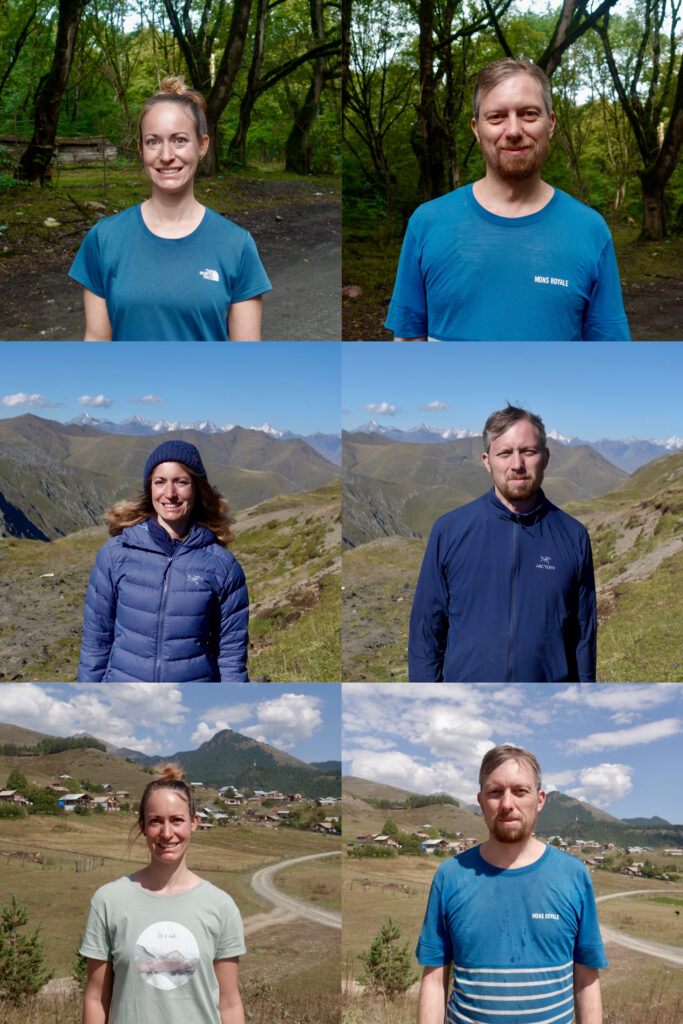
Wonderful reunion in Omalo
Omalo (2050 m) is the administrative center of Tusheti and located on a flat plain. A few dozen houses are scattered here with chickens and horses running around in between. Young men chop wood in the garden, the farmers bring their cows on horseback to pastures, and in the garden the laundry is still washed in the tub. There is a small kiosk with a restaurant that is popular with locals and tourists alike. We sit down and drink our well-deserved beer and next to us are some locals who already had their fair share of beers. And even though they can't really walk anymore, they swing themselves onto their horses with complete confidence and ride off, because riding probably always goes for the people in Tusheti. Welcome to a different world.
The people of Tusheti are traditionally shepherds and live from the production of dairy products such as the strong Tusheti cheese. Some of them have turned the houses of their ancestors into simple guesthouses for the adventurous tourists coming here. And nowadays, there’s even a luxury hotel with a swimming pool that has opened above Omalo. But we secretly hope, that the pass road will not be paved and mass tourism won’t enter this remote and authentic region.
After three days of cycling we are looking forward to our bed in the guesthouse and a hot shower. In the evening we enjoy the view from the spacious terrace and the delicious food directly from the garden. And it gets even better, we get to reunite with our new friends Nicole and Beni (https://kommt-zeit-kommt-rad.ch/en/), who fought their way up to Omalo a few days ago. And together with them we finally open our red wine from Tbilisi to toast to them. Those two got engaged on the top of the Abano Pass and we are thrilled for them, congratulations again! Of course, some homemade Chacha is also on the table and it’s always the same: the first sip burns, the second warms. Gaumarjos!
The Pirikita Valley with the picturesque Dartlo
Tusheti consists of four valleys and according to the weather forecast we only have three nice days ahead of us and then it gets colder and wet. So we are faced with a decision: should we spend one more day in Omalo and then use the rest of the three nice days to cycle over the Abano Pass again; or should we explore more of the Tushetian valleys and then book a Jeep drive up the pass to shorten our return trip? And as you probably guessed already, we decided for the second option.
Even though we like Omalo and especially the pretty upper village Zemo Omalo with the stunning Keselo fortress, we still want to see more of Tusheti. We say goodbye to Nicole and Beni and cycle along lark and birch forests into the Pirikita valley and to the small village of Dartlo.
The extraordinarily picturesque village of Dartlo with its dark defense towers and narrow pebbled streets must be the most beautiful village in Tusheti. There has been much investment in restoring the village’s houses with their traditional stone-slated roofs. A one-hour hike brings us up to the ruins of the small Kvavlo fortress, which offers a magnificent view of Dartlo and the surrounding green valleys. At the top of the hill there is a Tushetian sanctuary, a tower made of slate stone. There are several small stone shrines in Tusheti, often adorned by bells and animal horns. Those holy places serve as a place of prayers and others religious rituals and these Pagan sanctuaries may not be entered by women, because according to the Tushetian worldview, they would otherwise upset the cosmic balance. Of course, we don't want to be responsible for that and respect this rule, although we can’t really understand it.
What impresses us, however, is the deep connection of the Tush people to their homeland and the mountains. They return to Tusheti each summer form all over the world to celebrate the traditional festivals together and every year a different family takes over the hosting role. It must be nice to have such a strong connection to your home, especially for the city dwellers who return to a simpler life up here, far away from the hustle and bustle.
A karma thing at the end of the world
Is there an enhancement of remoteness? We think so and the answer is Girevi. From Dartlo a dirt road leads all the way to the village Girevi, but that’s the end of the road. You have to get a permission there and then you can continue your journey on foot via the Atsunta Pass to the next valley to the lovely village of Shatili. This 5-day-hike is supposed to be one of the best in Georgia and it’s definitely a reason to come back. But even though, we were only able to cycle until Girevi, the route was absolutely stunning.
We constantly have to cross roaring mountain streams and rickety bridges. Usually not a problem for us, but this time it doesn’t work out smoothly and Lisa loses her hiking sandals in the stream while crossing it barefoot and trying to hold on to her bicycles at the same time. Dario starts running along the stream and manages to save one sandal, but the second one is lost in the current. We spend half an hour looking for it and then give up, the current is just too strong. Lisa is angry and changes into her flip-flops, not the ideal footwear for the mountains. We keep the remaining sandal so that we can dispose it later in the valley.
The beautiful landscape doesn’t help to improve Lisa’s mood and then it also starts raining. Fortunately, we are in front of a small kiosk and out of frustration we order something to eat while waiting out the rain. A jeep arrives and a man comes towards us carrying a wet sandal in his hand. Things like that only happen in movies, right?
Lisa's sandal was apparently washed into the river and a group of tourists must have had the presence of mind to retrieve it from the flowing river and asked who it could belong to. Someone knew we had lost a shoe when he saw us looking for it by the stream and instructed someone else to drive further into the valley and bring the sandal to those two cyclists on the route. And so now this man stands in front of us smiling and telling us this story as if it would be the most normal thing in the world. We look at each other and can hardly believe it, we would definitely not have expected this. Maybe a good thing, we didn’t disturb the cosmic balance this morning.
The trip to Girevi seems like a journey to a distant past. We cycle along villages with medieval defense towers, holy shrines and we even see horses transporting wood up to the village of Pasma. And then we arrive in Girevi, the perceived end of the world. The hikers spend the night here before crossing the pass and we pitch our tent by the river, surrounded by an impressive mountain scenery and marvel at the starts at night. We spend two days in this area and enjoy the breathtaking nature and the beautiful weather.
After that, it's back to Dartlo for us, where the jeep is already waiting to take us up the pass. And even if we would have liked to cycle all the way, we are glad that we could use the few sunny days to see more of Tusheti's nature and visit the magnificent Pirikita Valley.
Reaching the Abano Pass by jeep only takes three hours, almost a bit too fast for our liking. We would have preferred to stay longer in Tusheti, as this pristine mountain region has deeply impressed us and we would have liked to see more of it. On the way back, we notice that autumn has already arrived quickly, the trees have shades of bronze and chestnut and the hills have a honey-coloured glow. Only 1.5 weeks later, a weather change made the road to Tusheti impassable and numerous locals and tourists had to be evacuated by helicopter. We still make it down to the valley in time and head off to our next destination, the Vashlovani National Park, which we will explore together with Nicole & Beni. More about that adventure in our next blog.

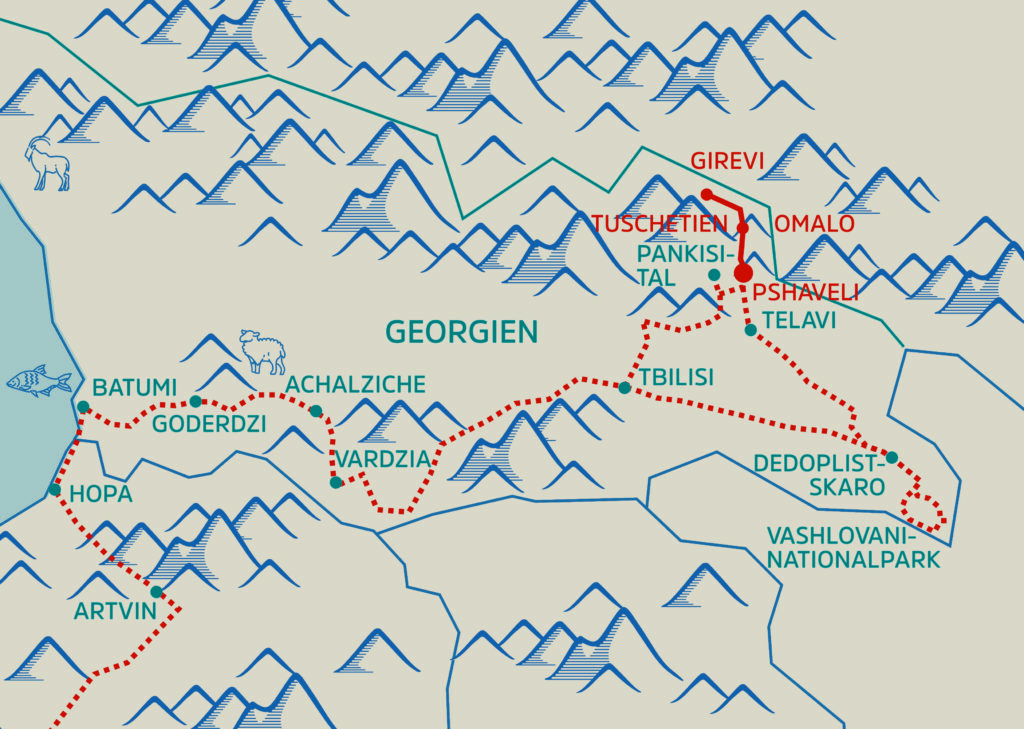
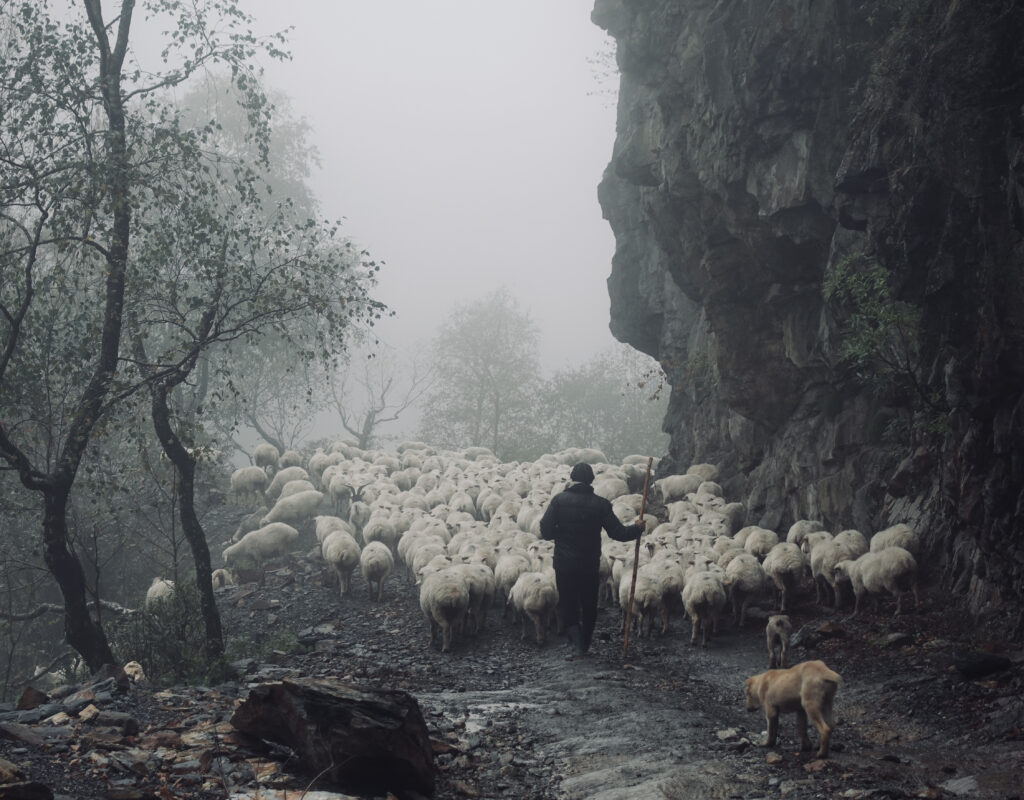
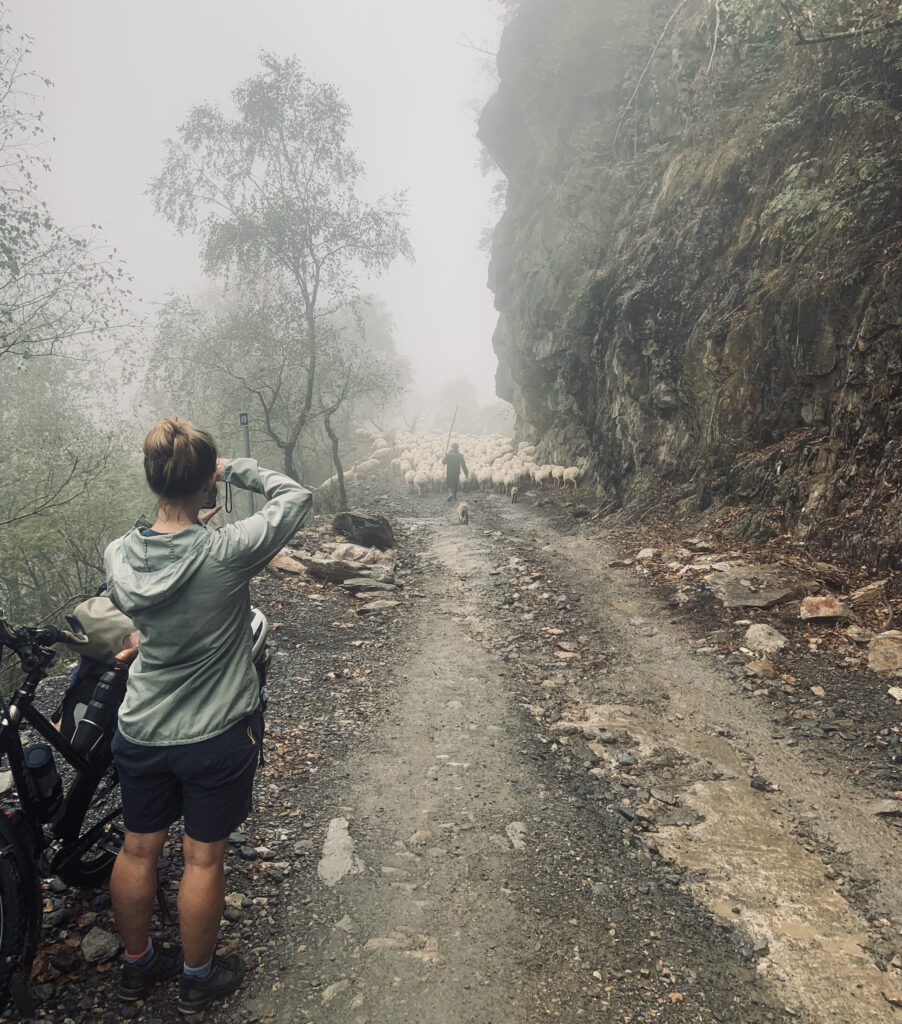
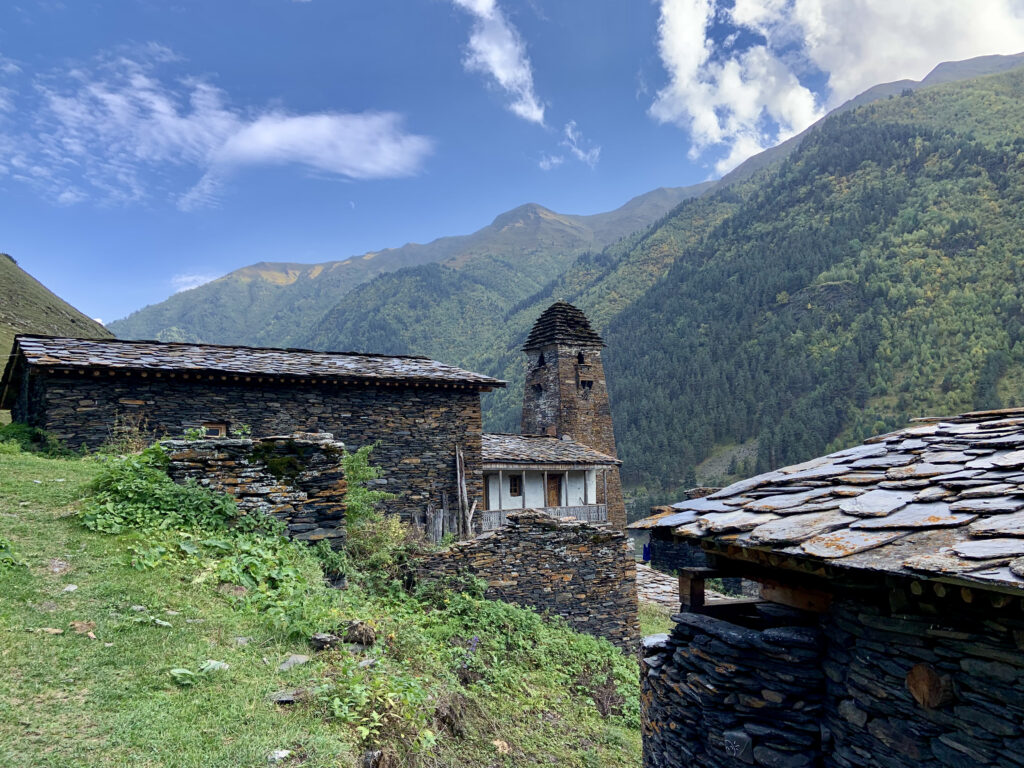
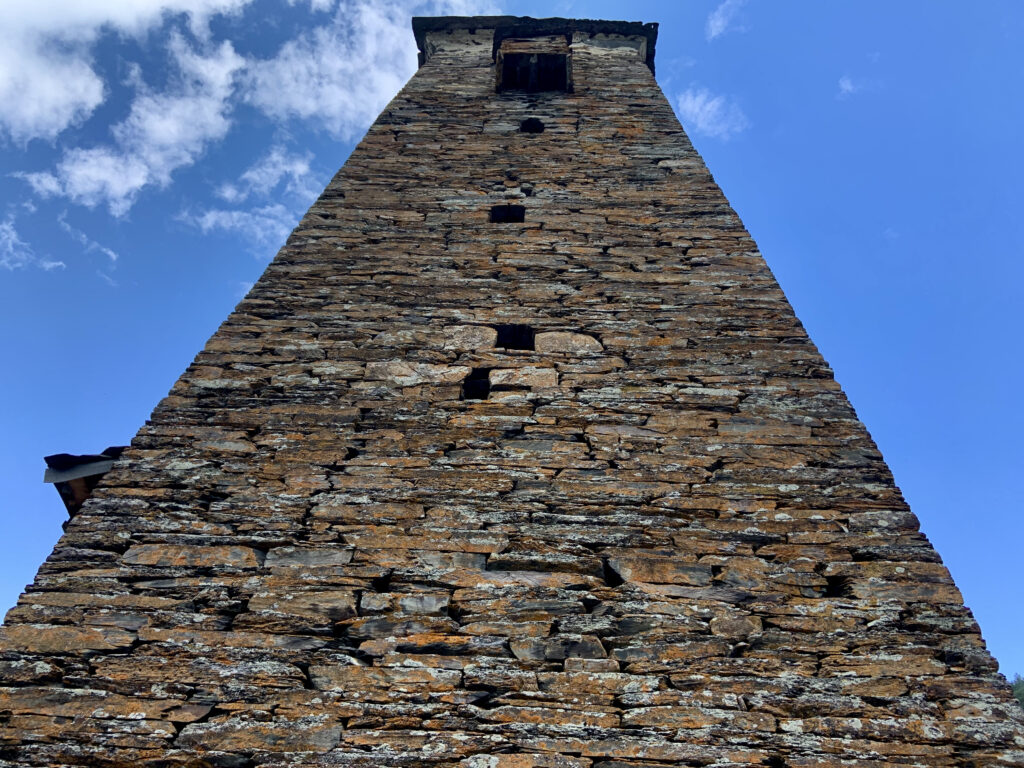
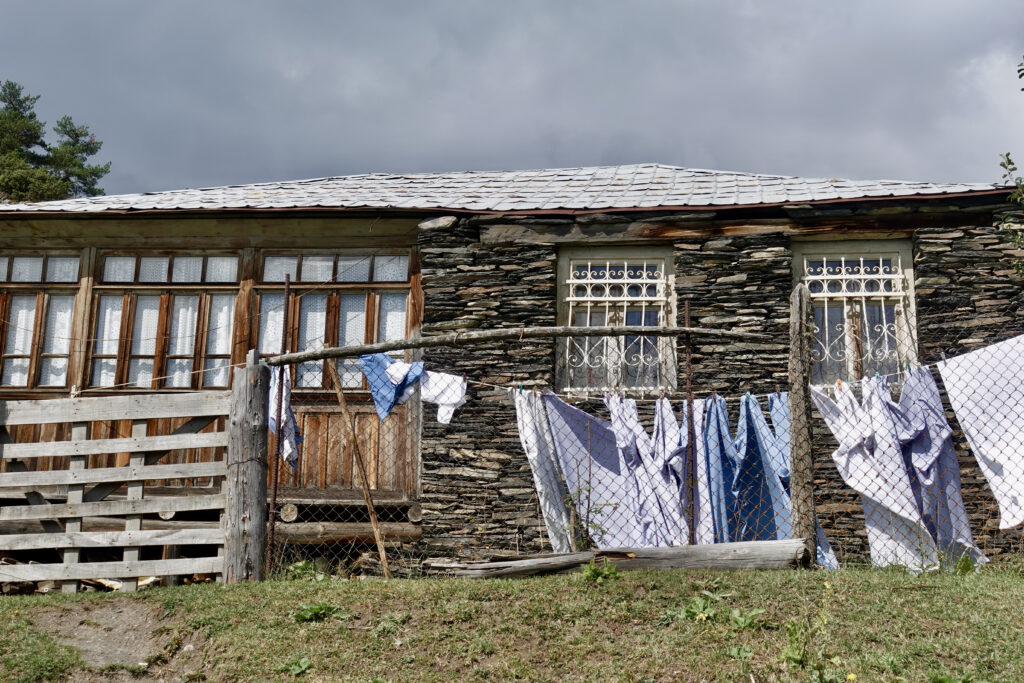
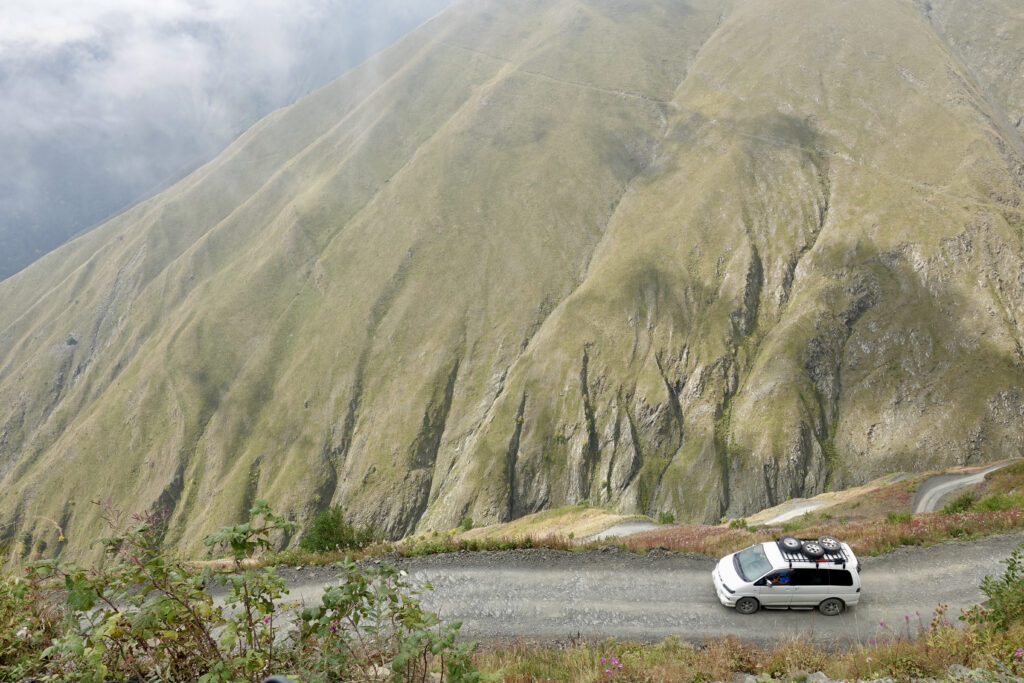
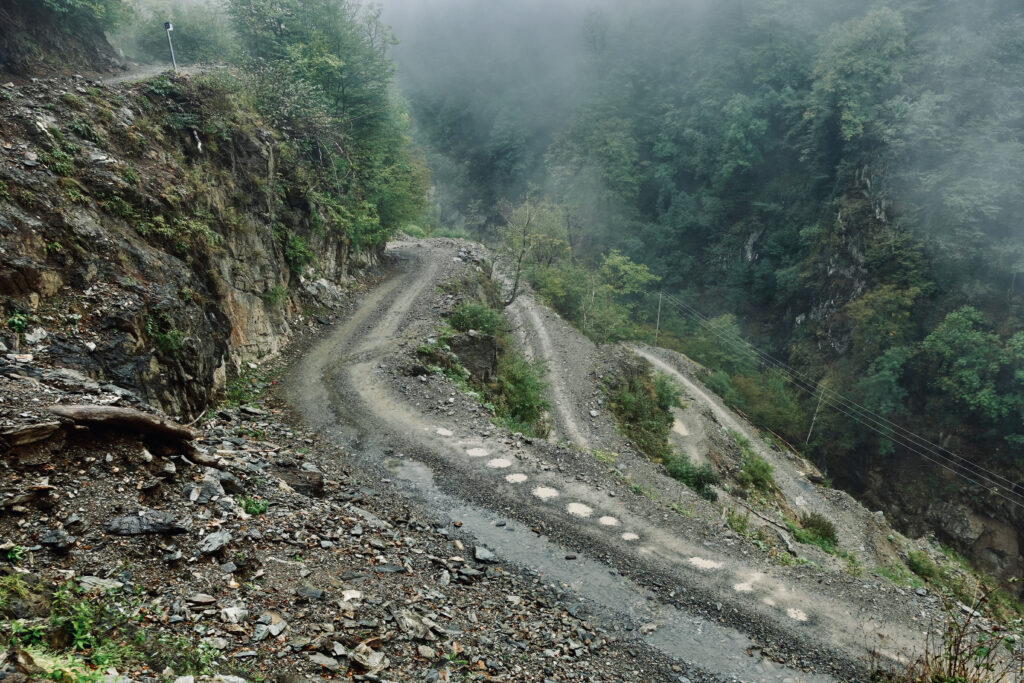
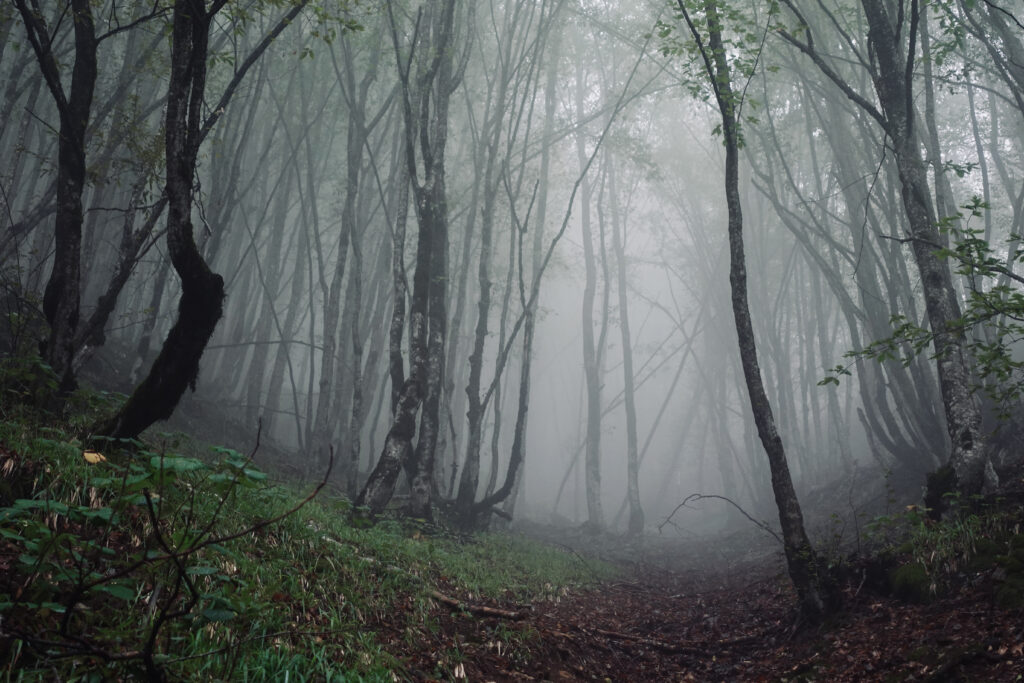
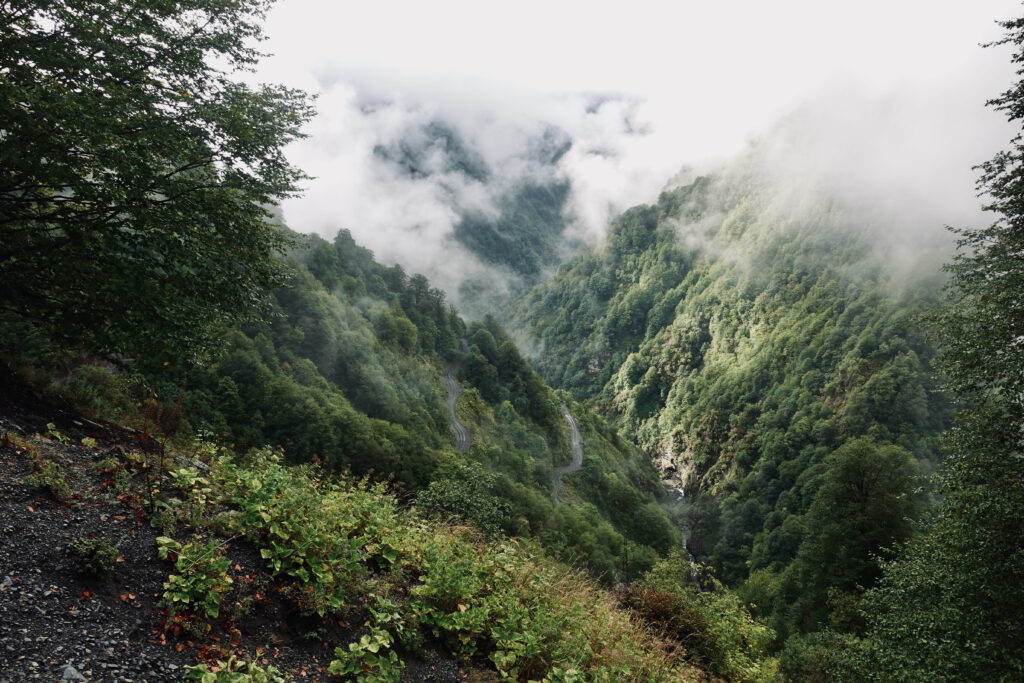
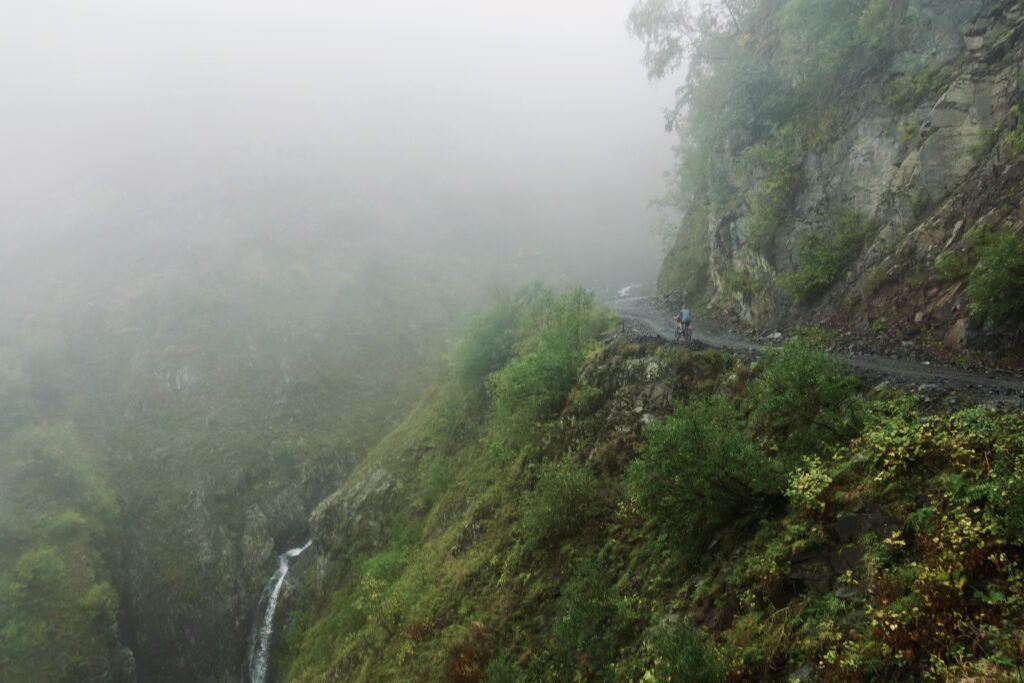

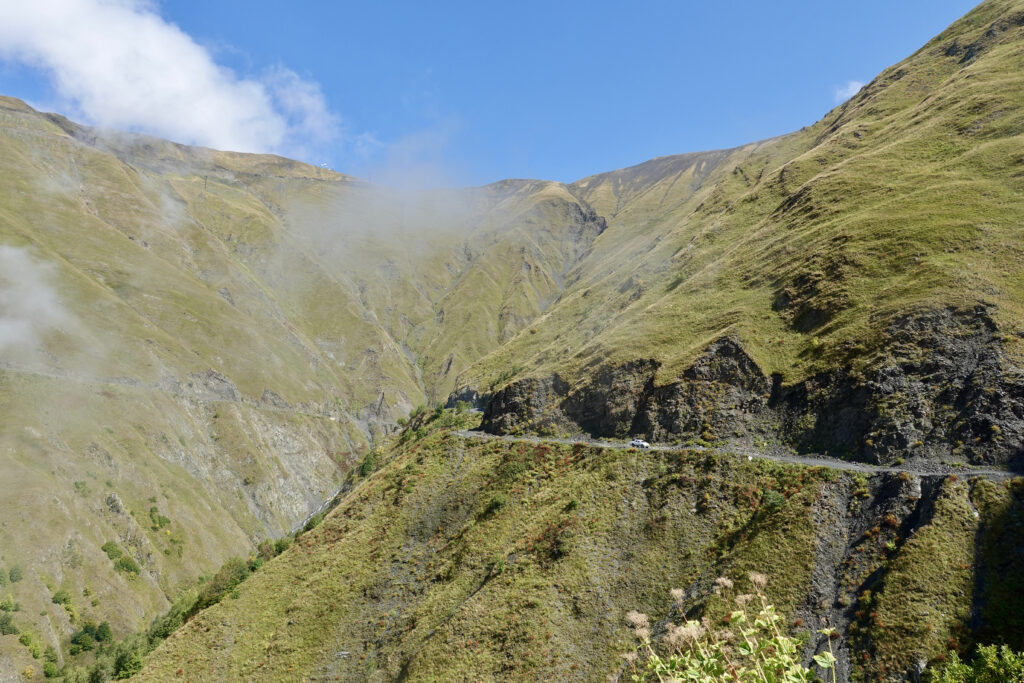
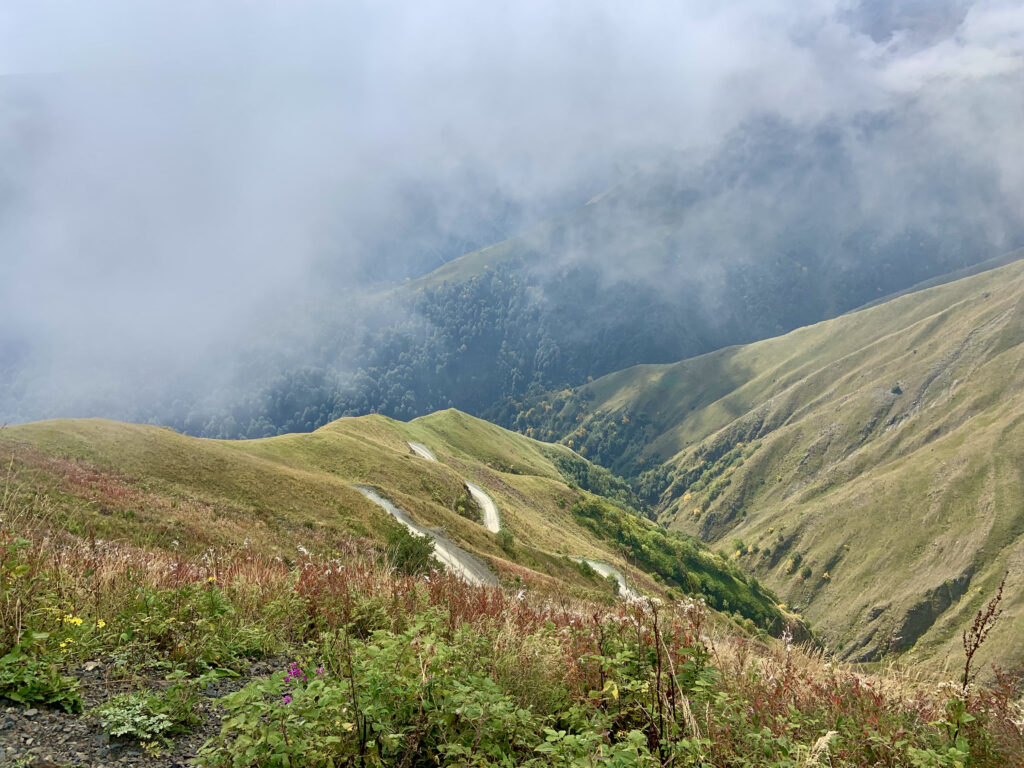
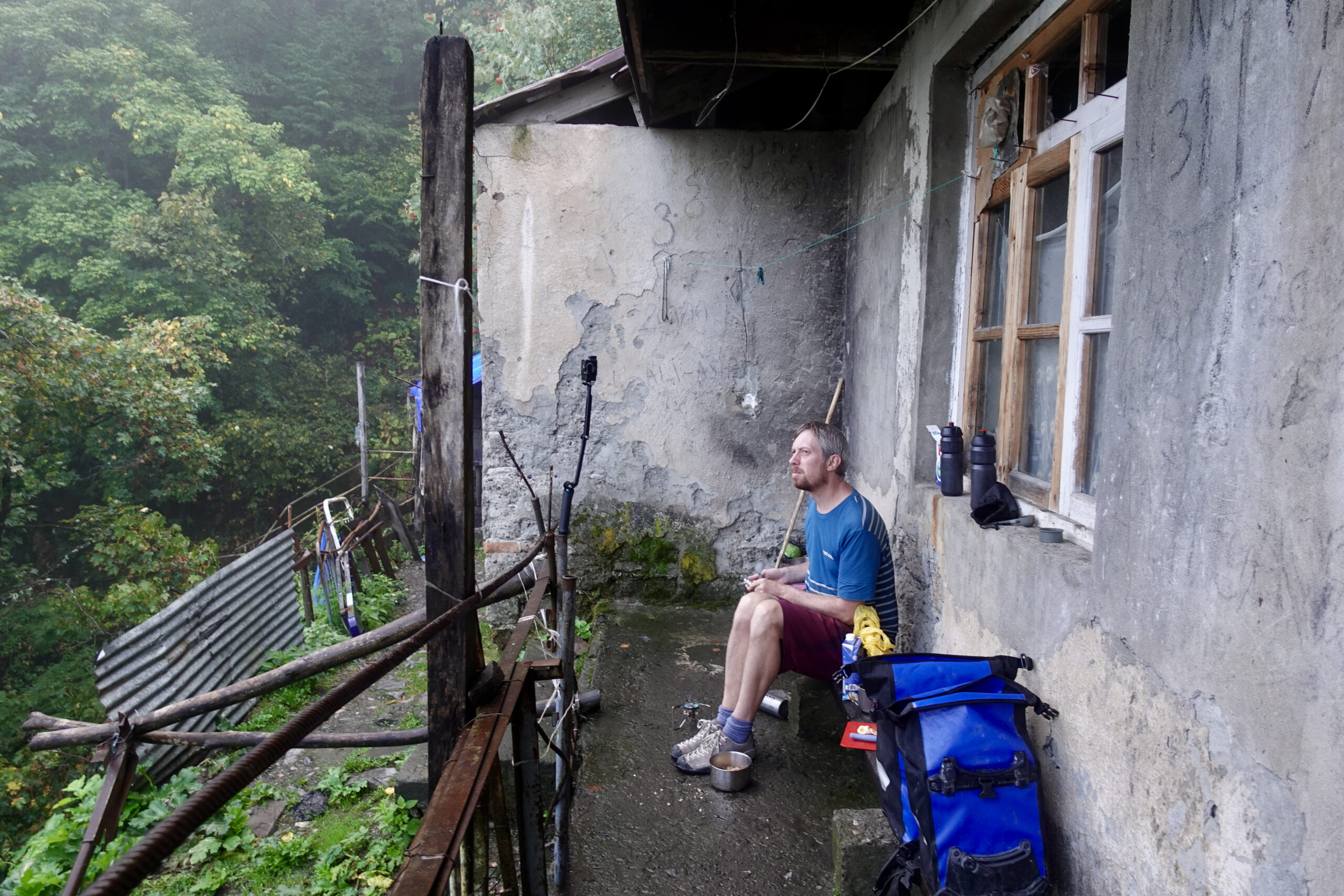
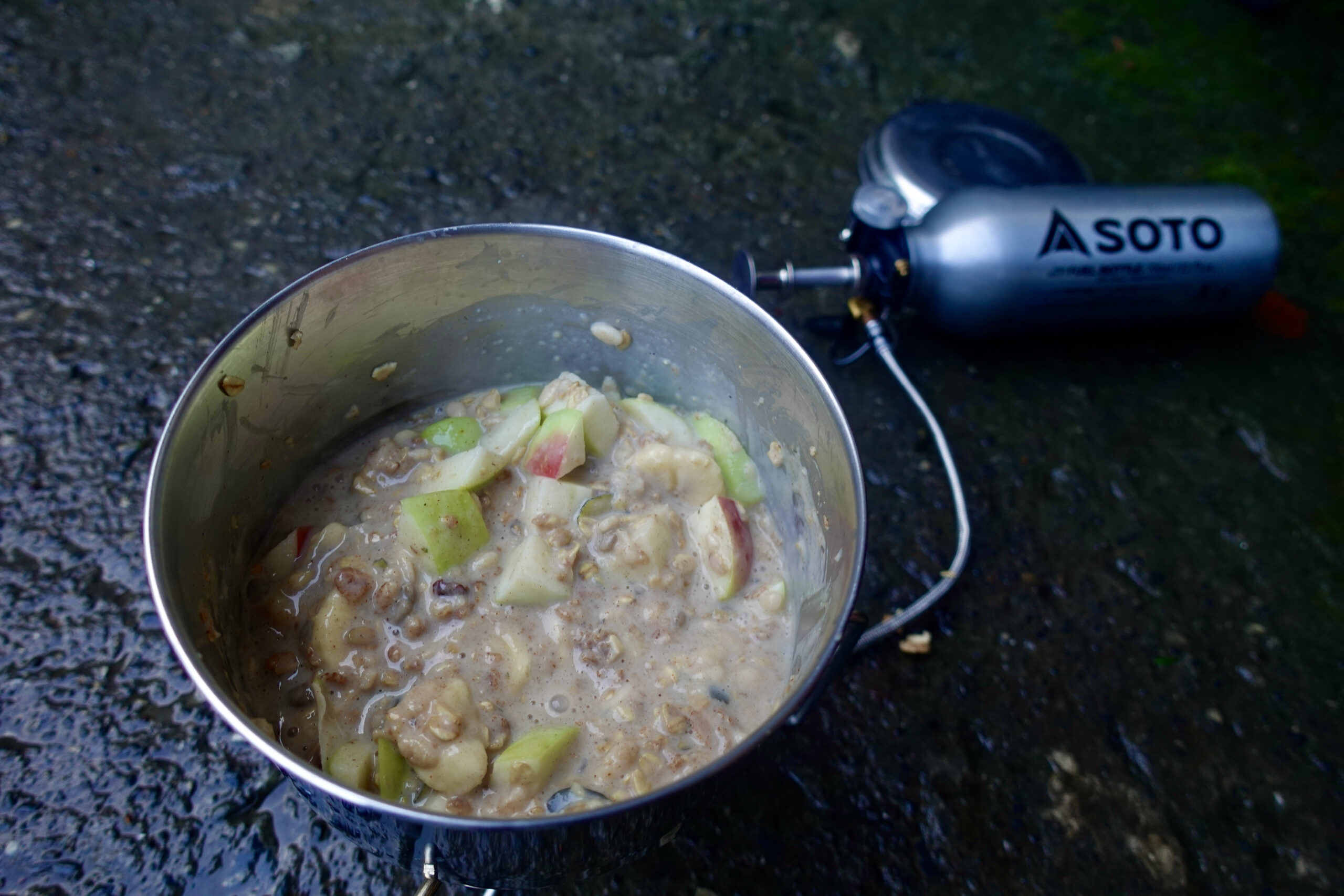
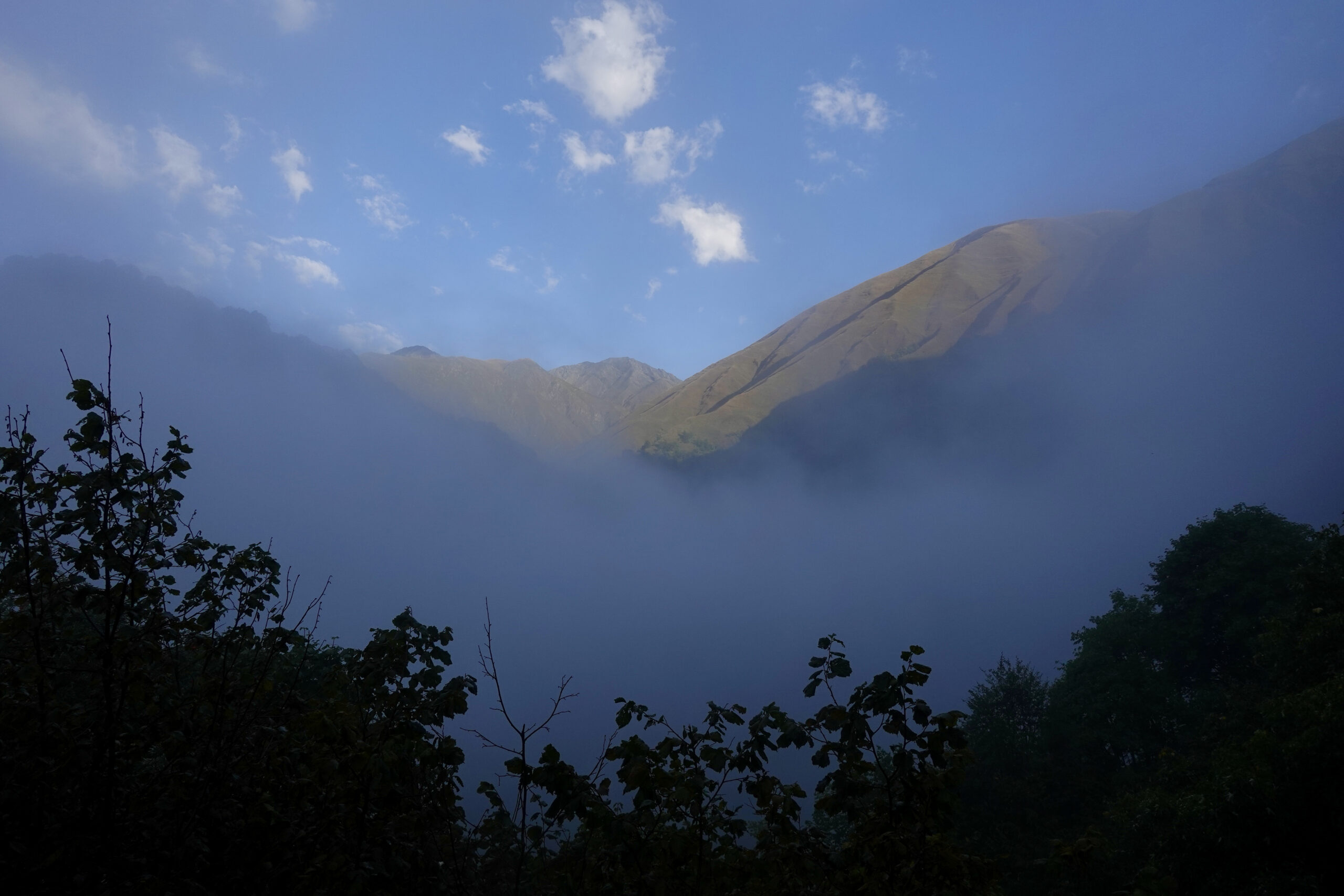
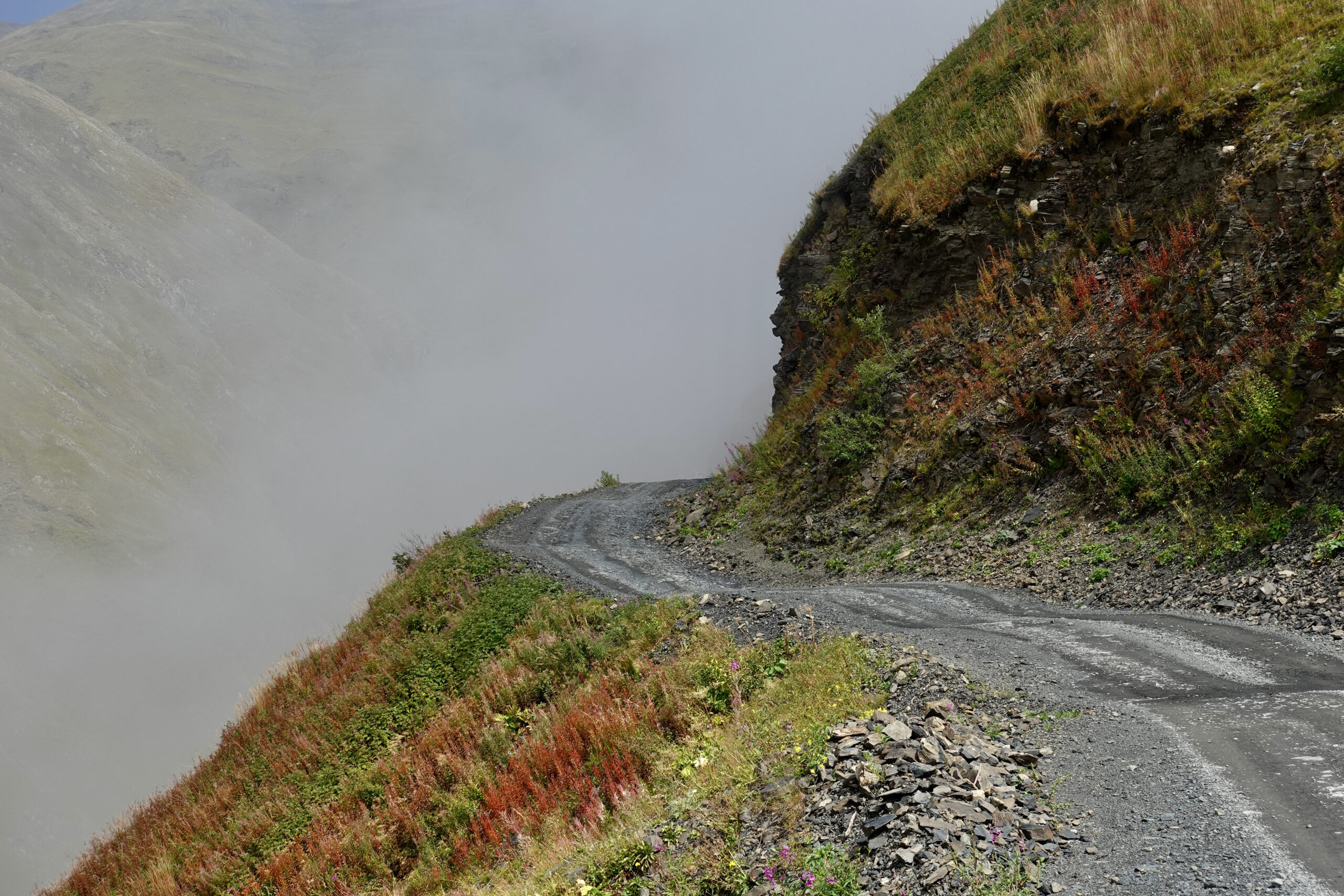
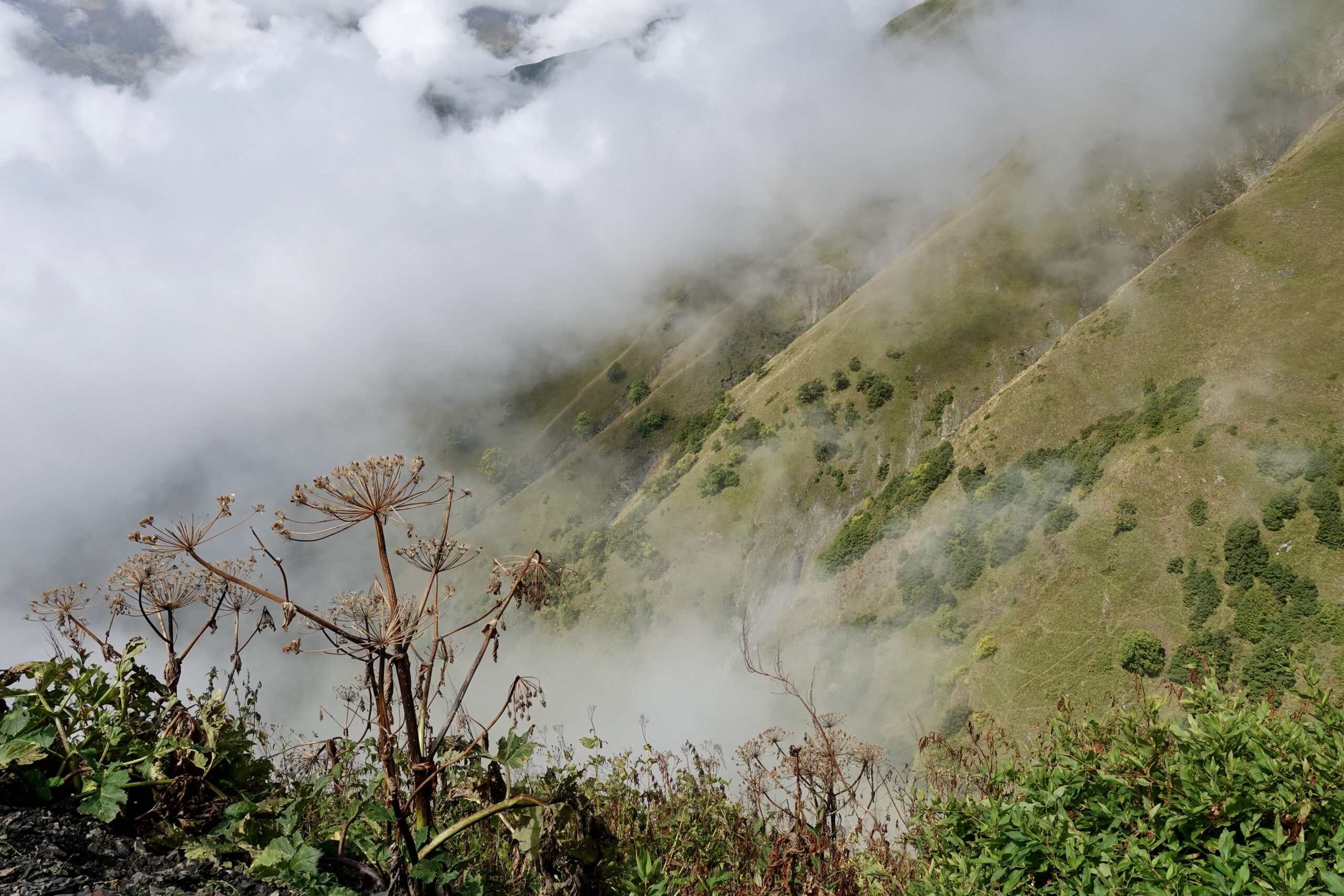
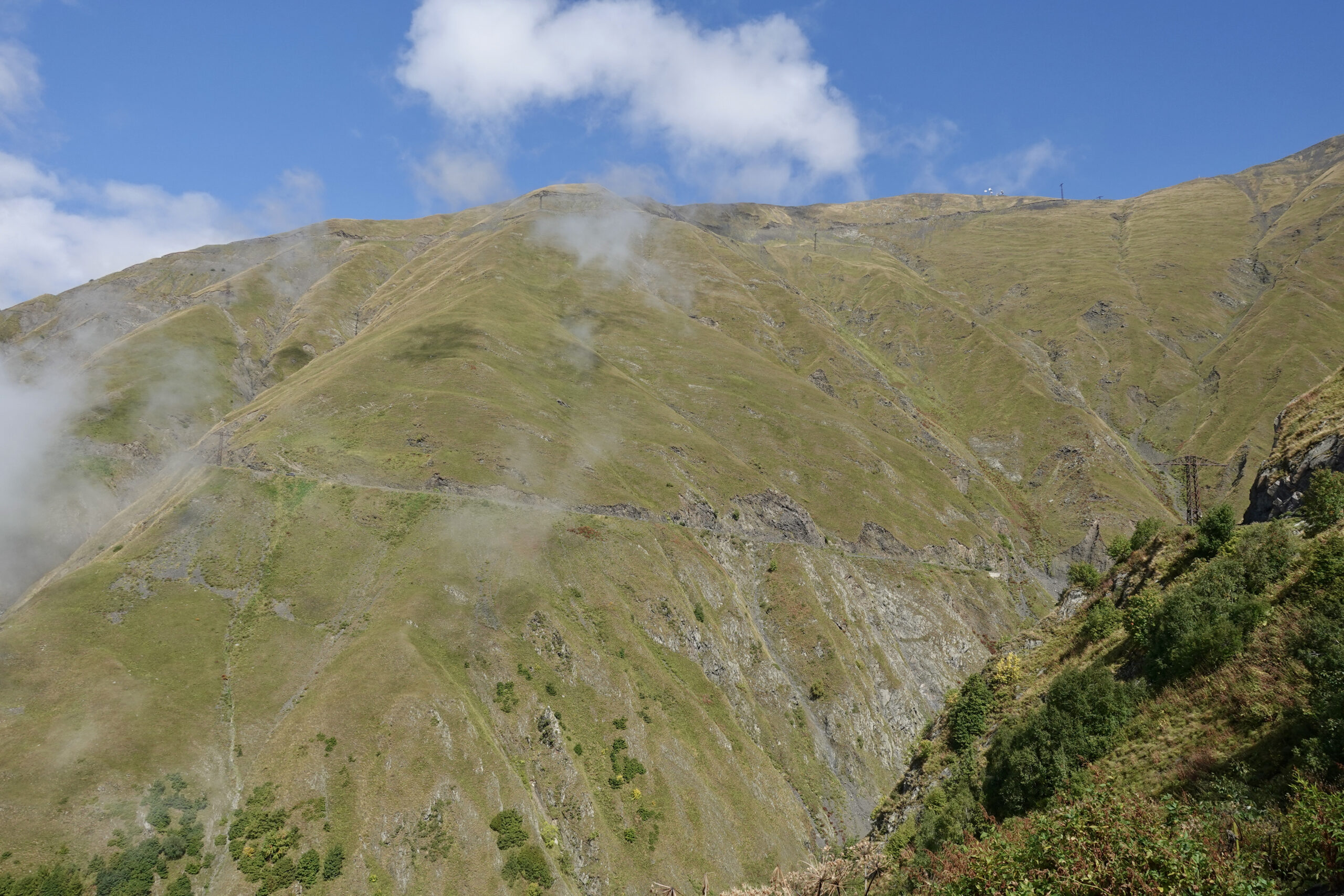
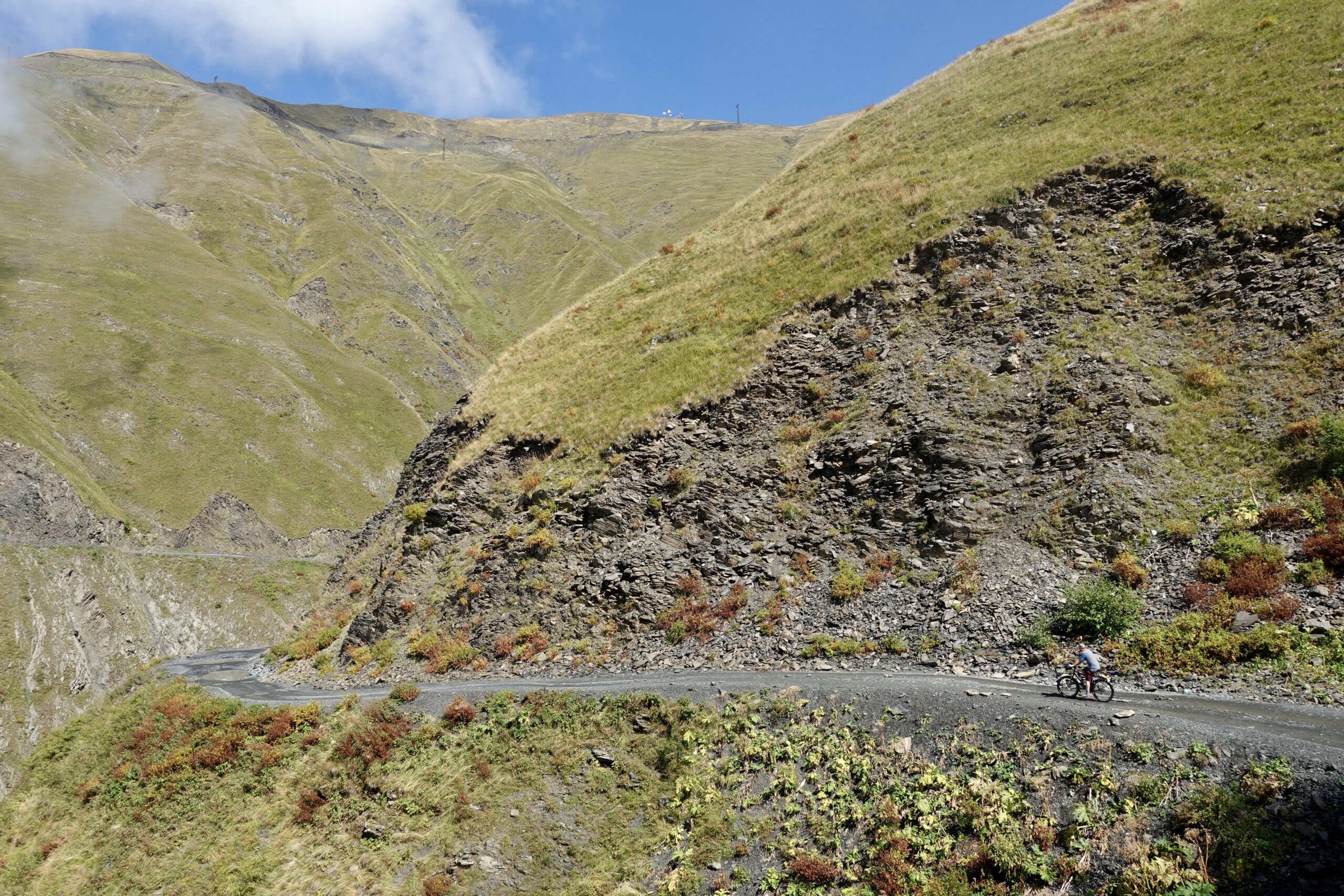
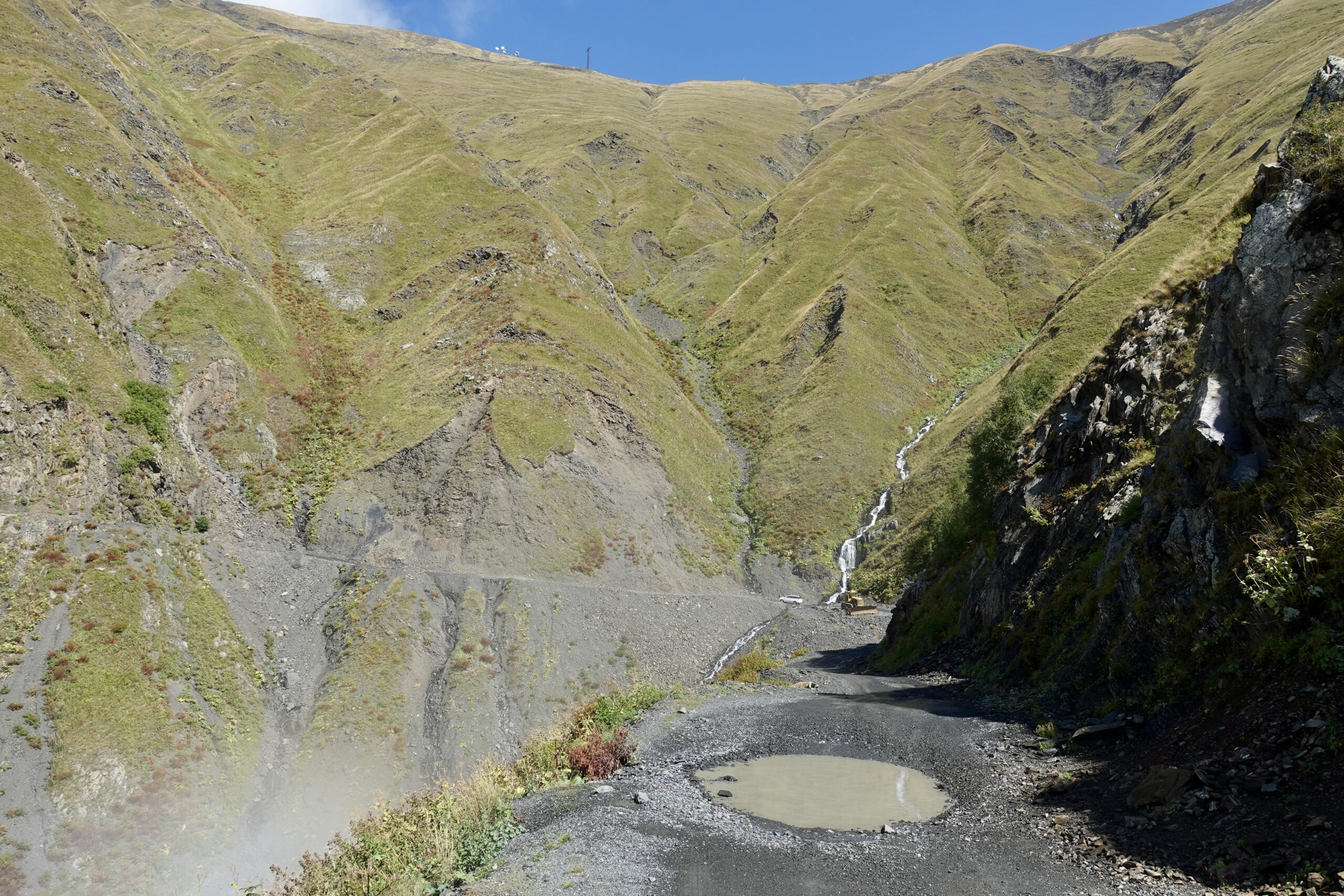
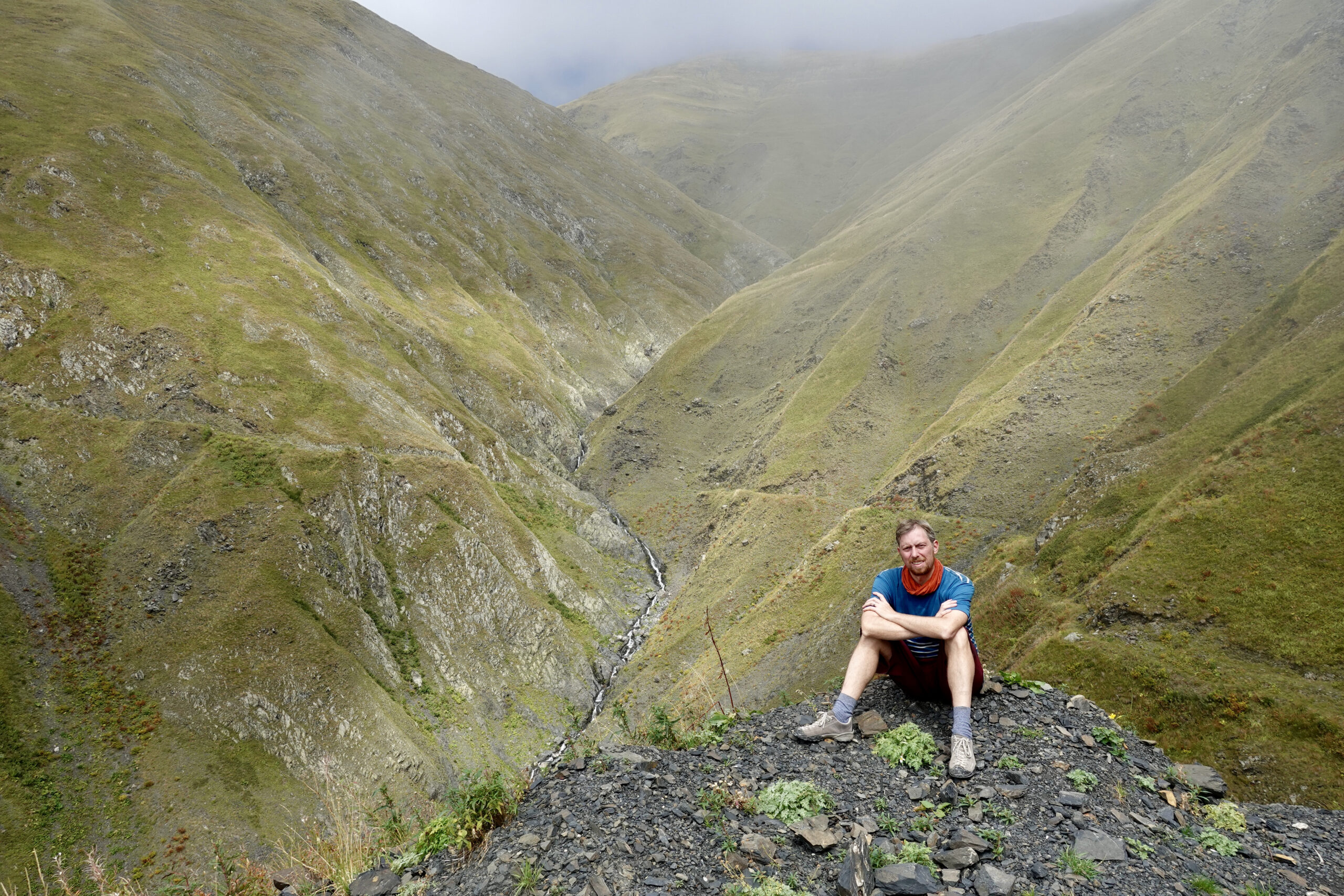
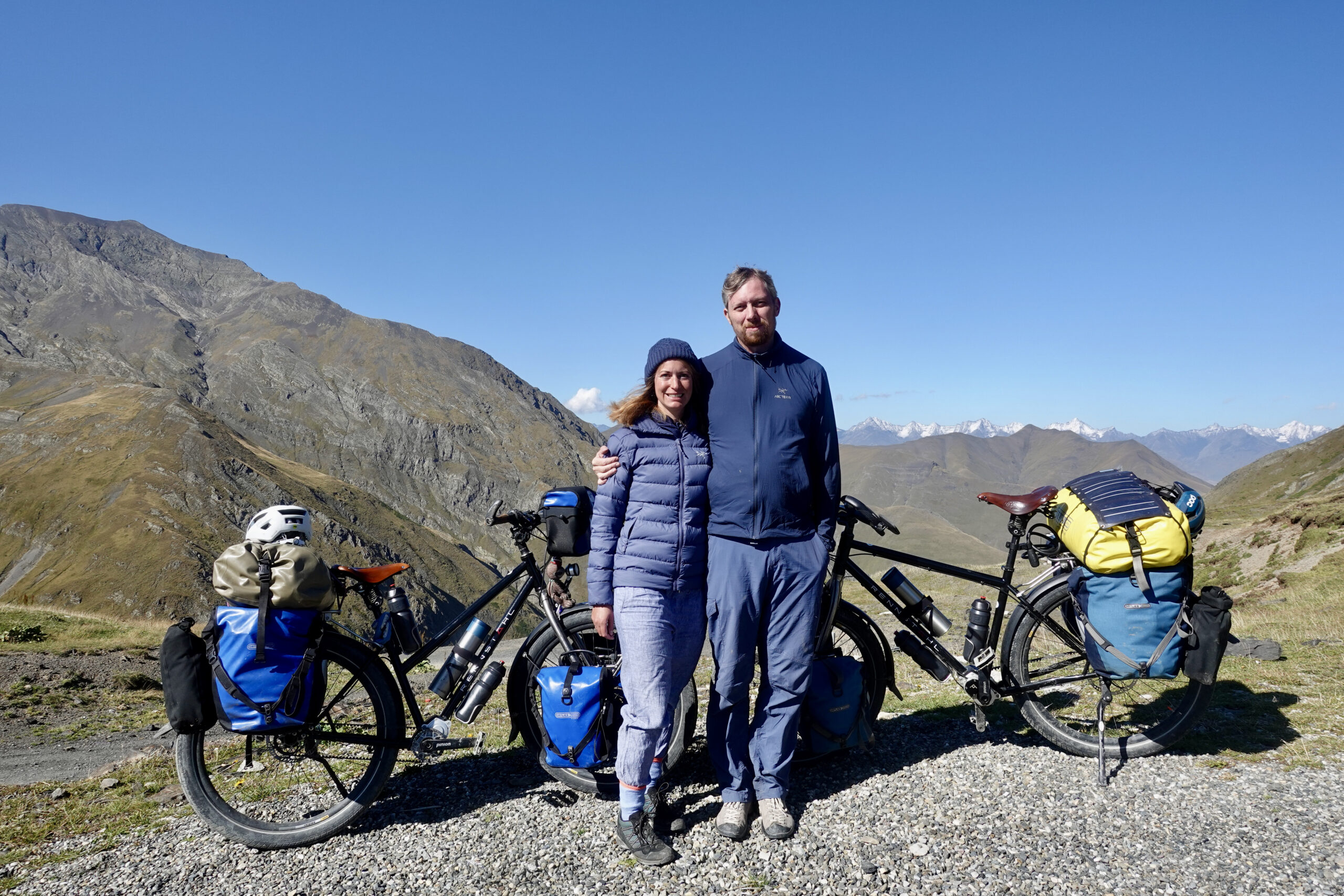
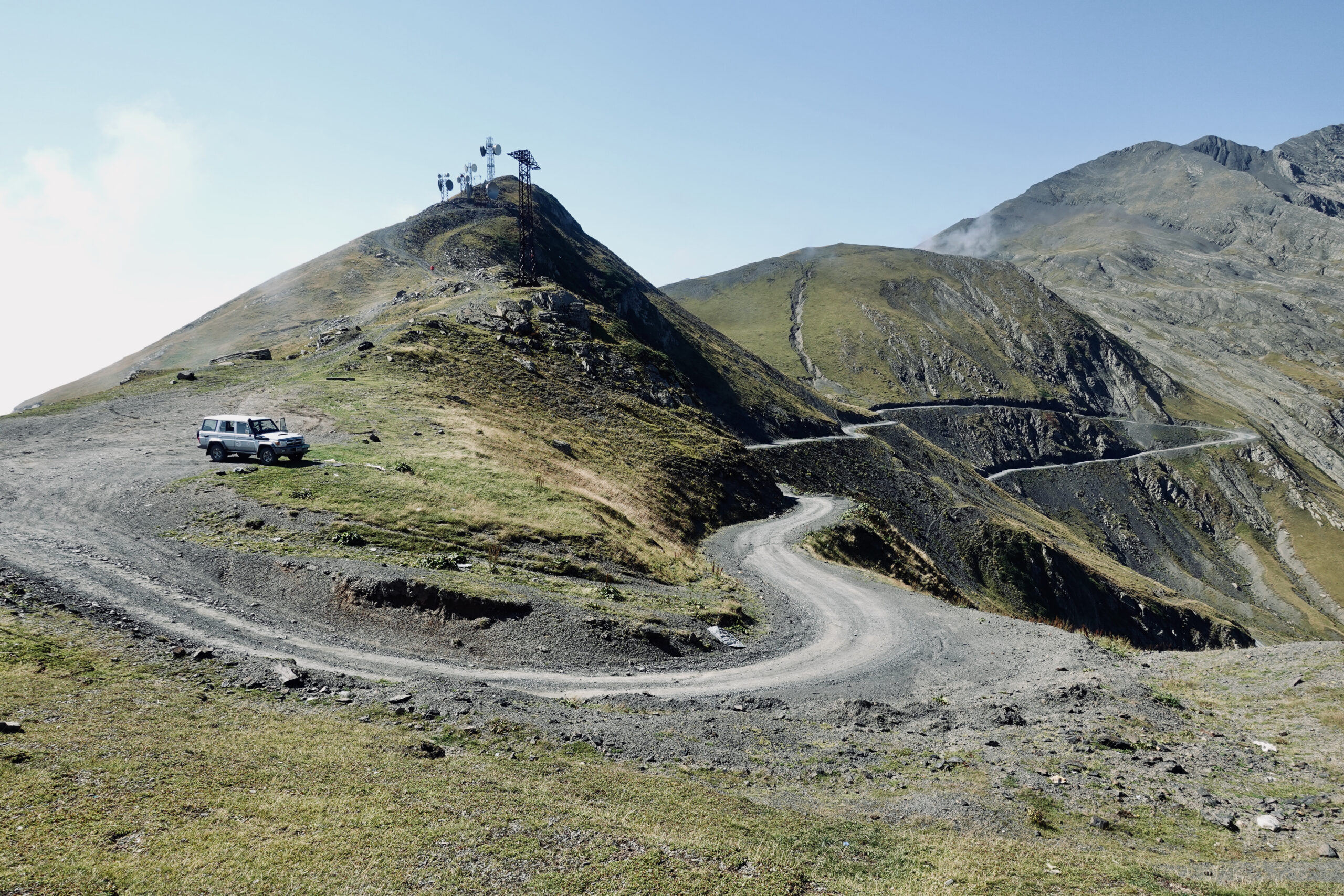
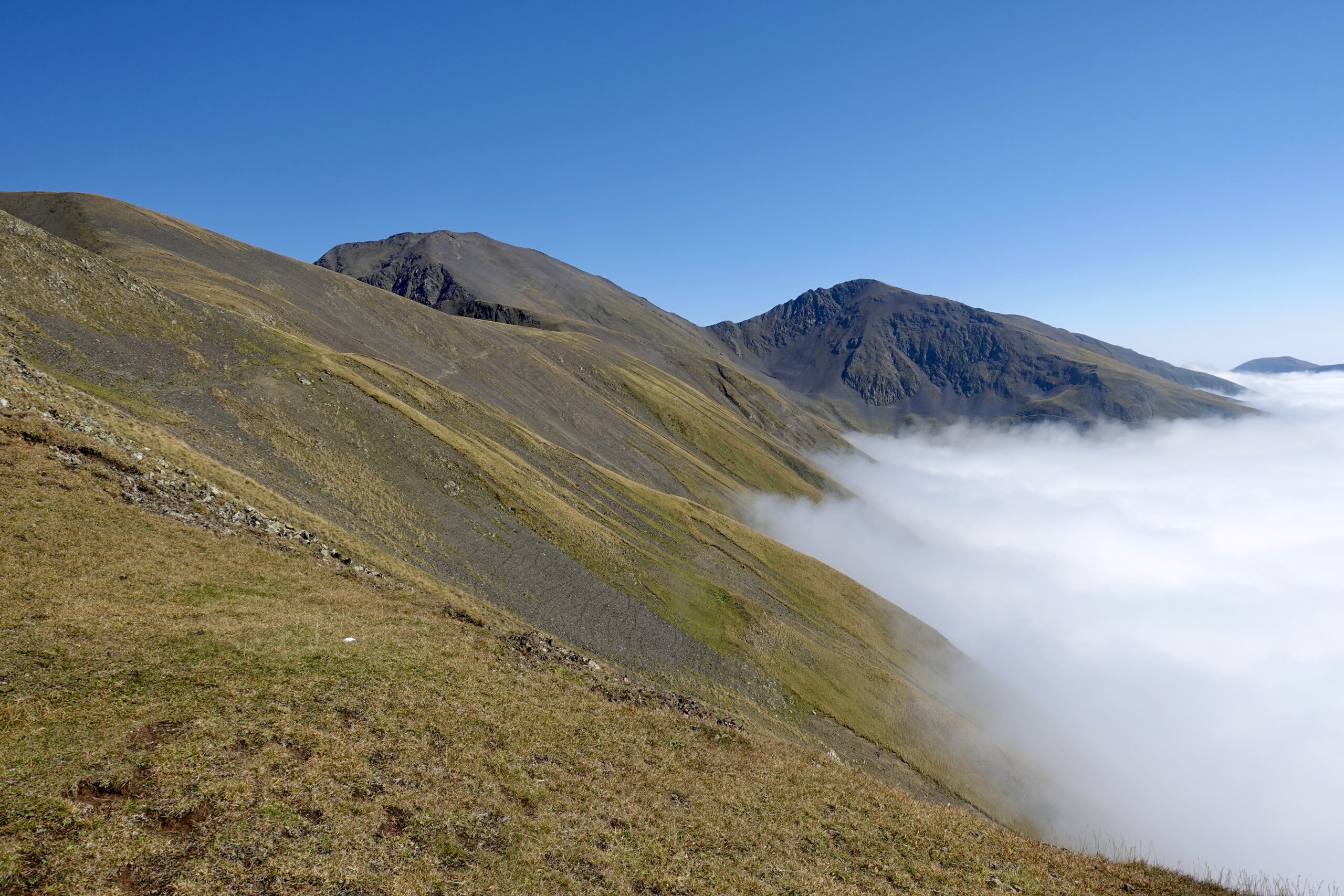
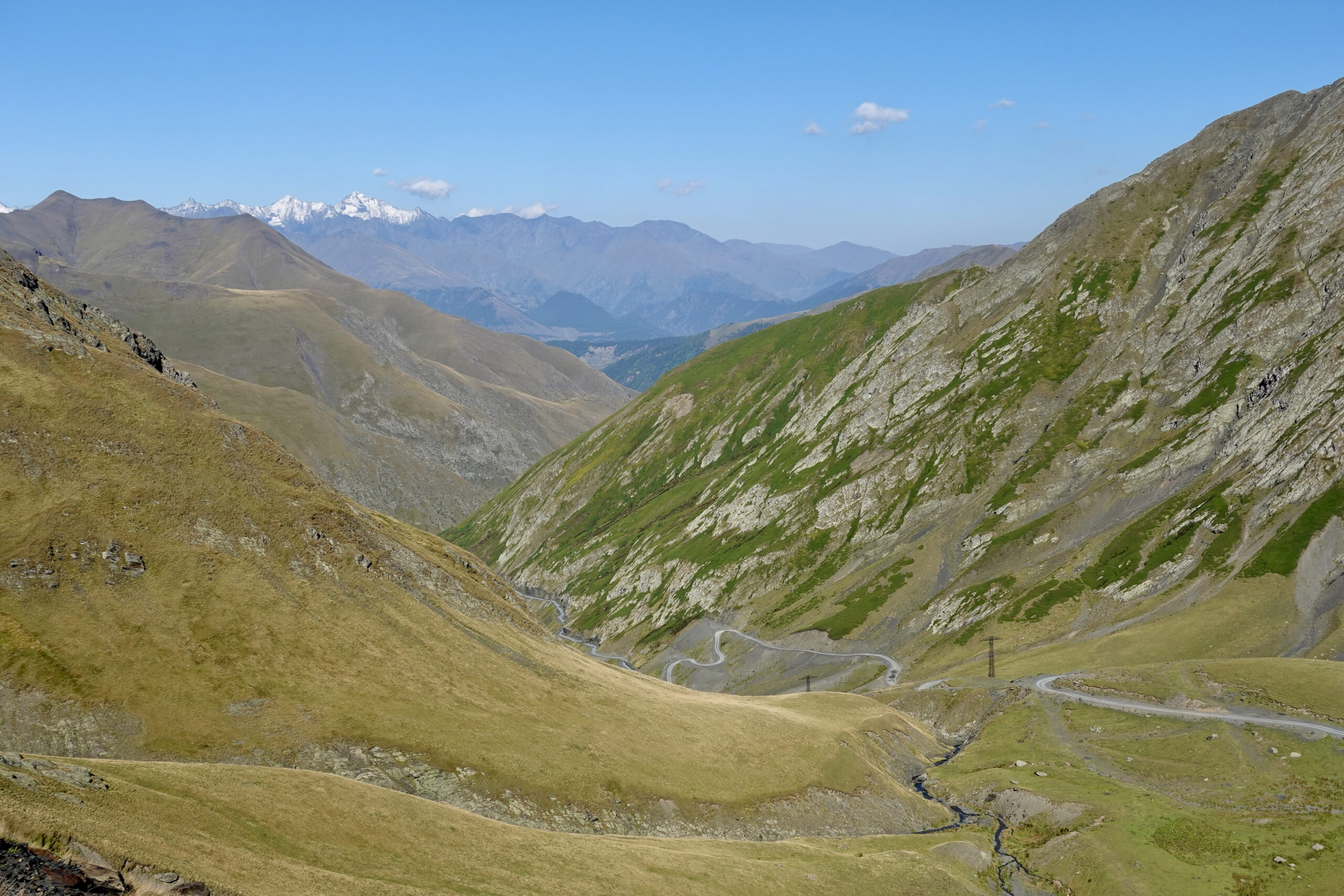
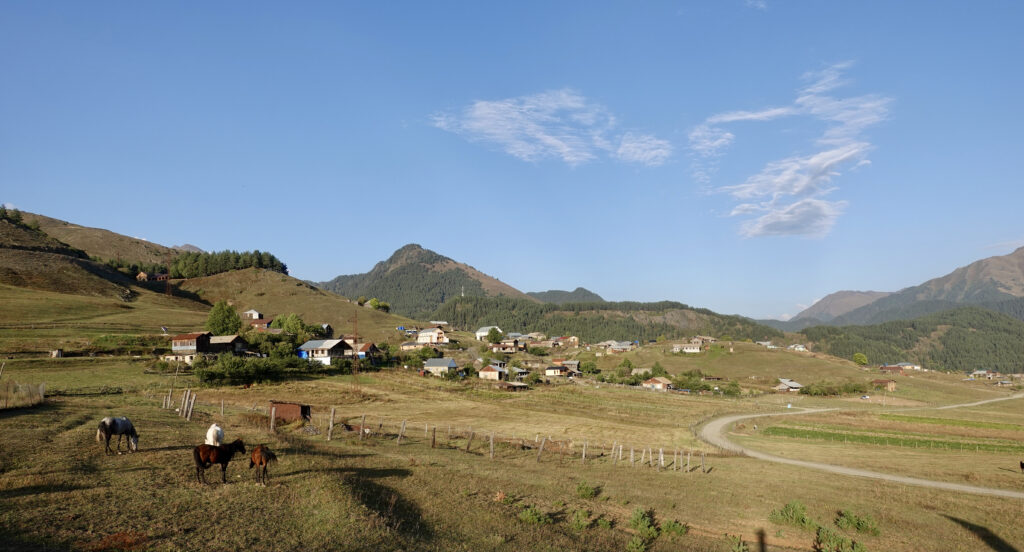
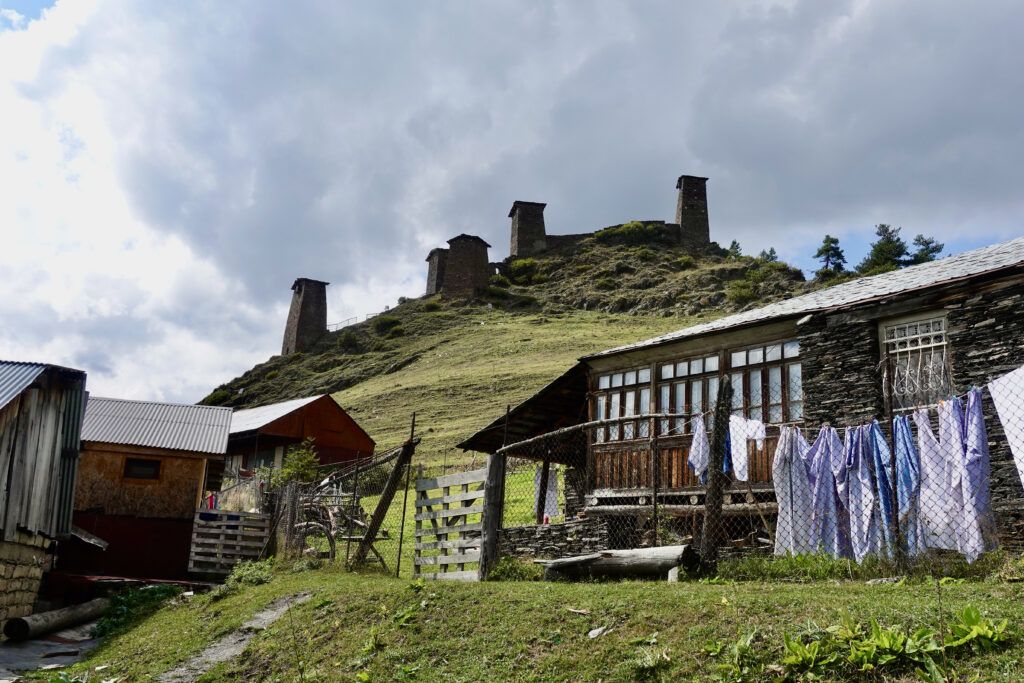
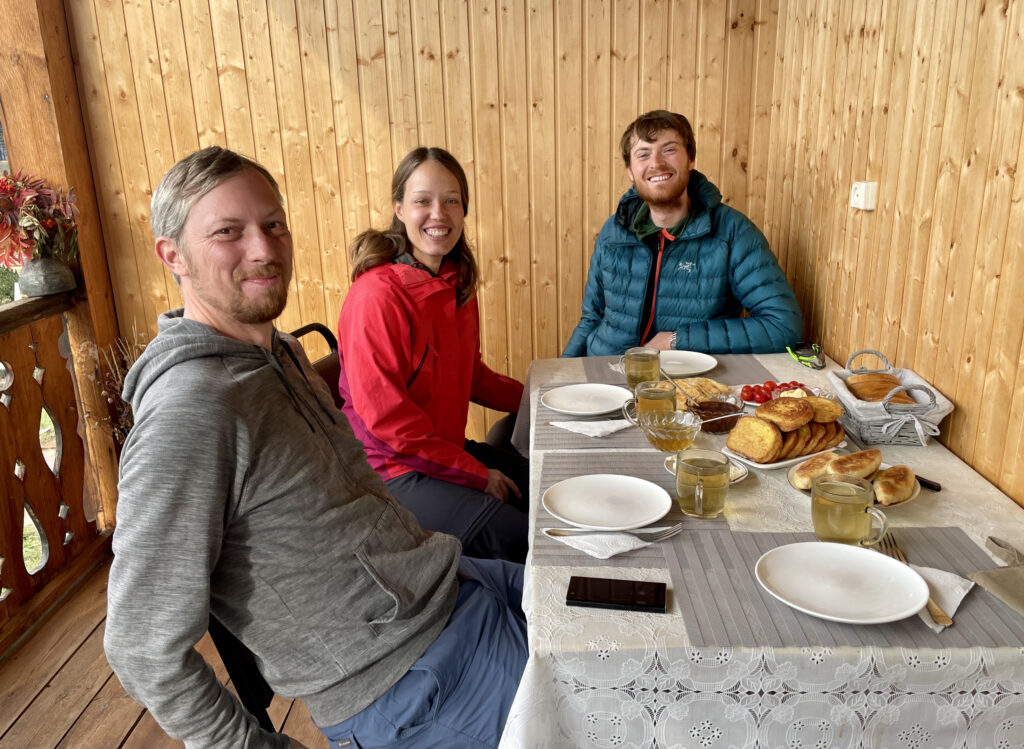
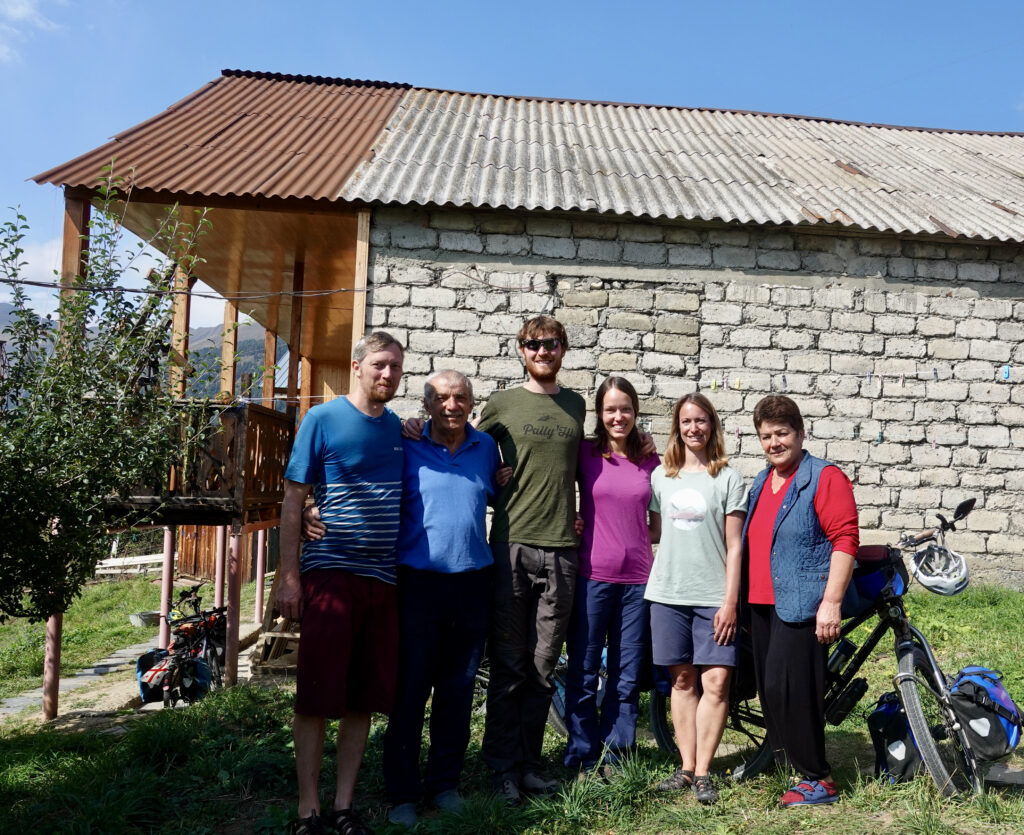
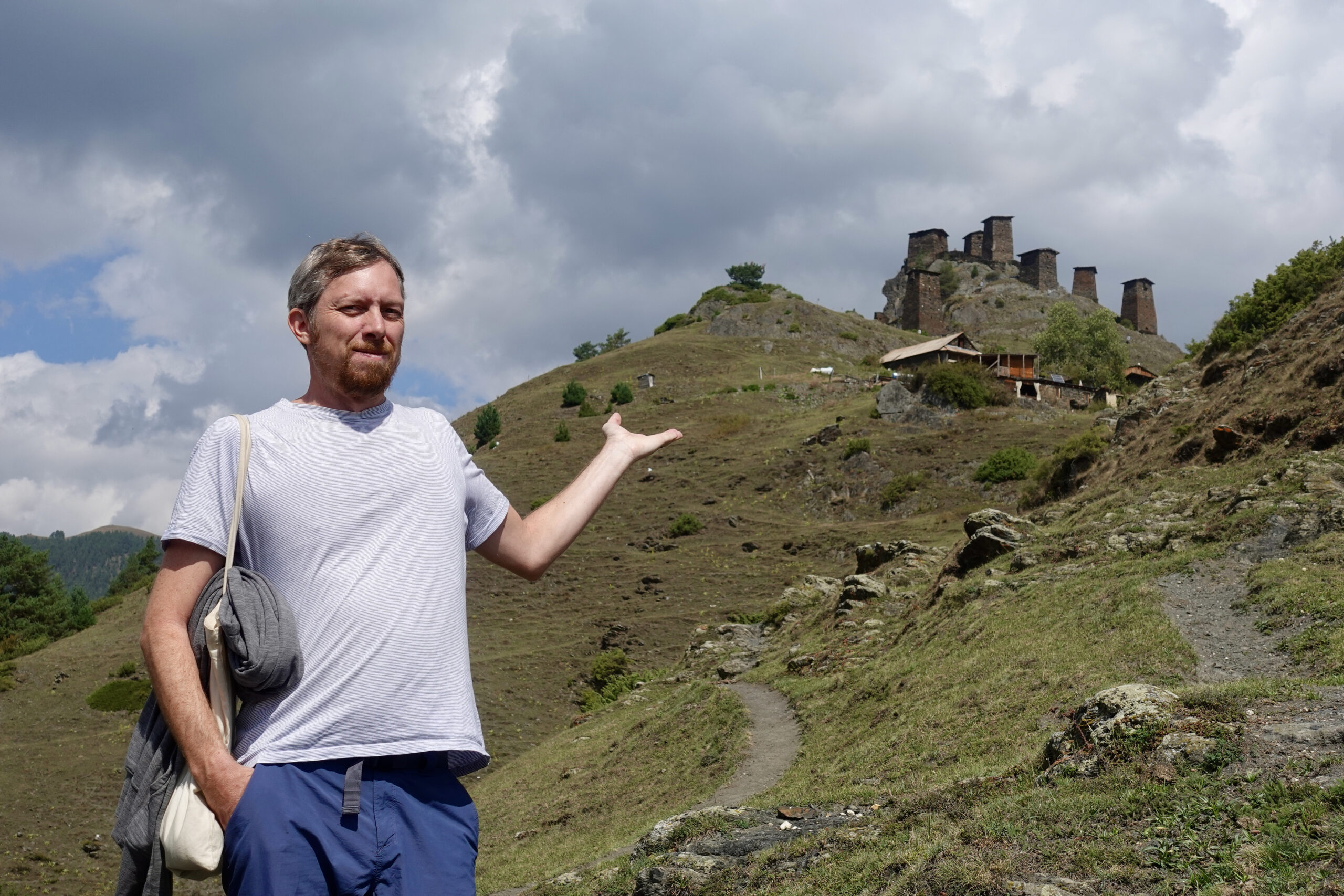
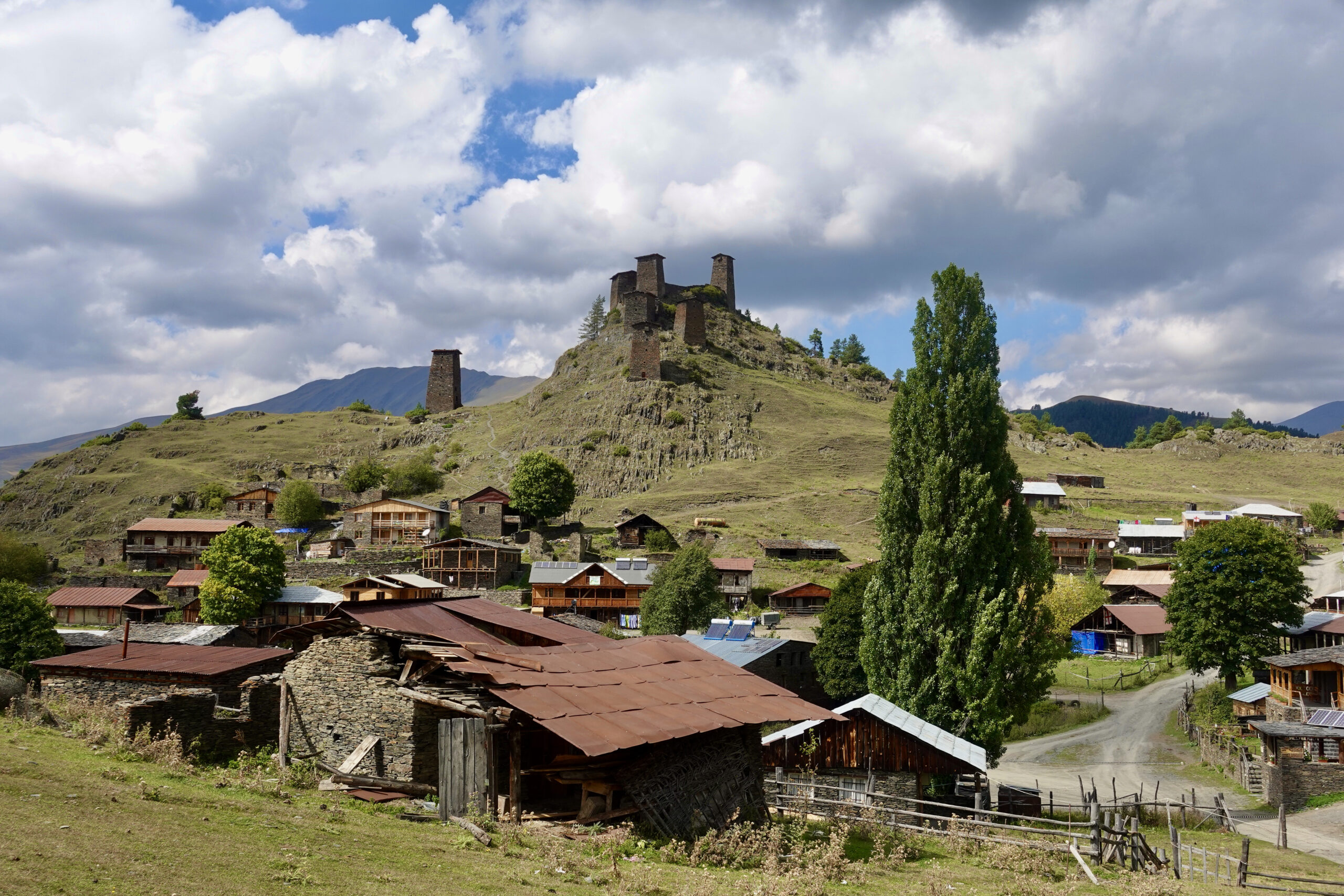
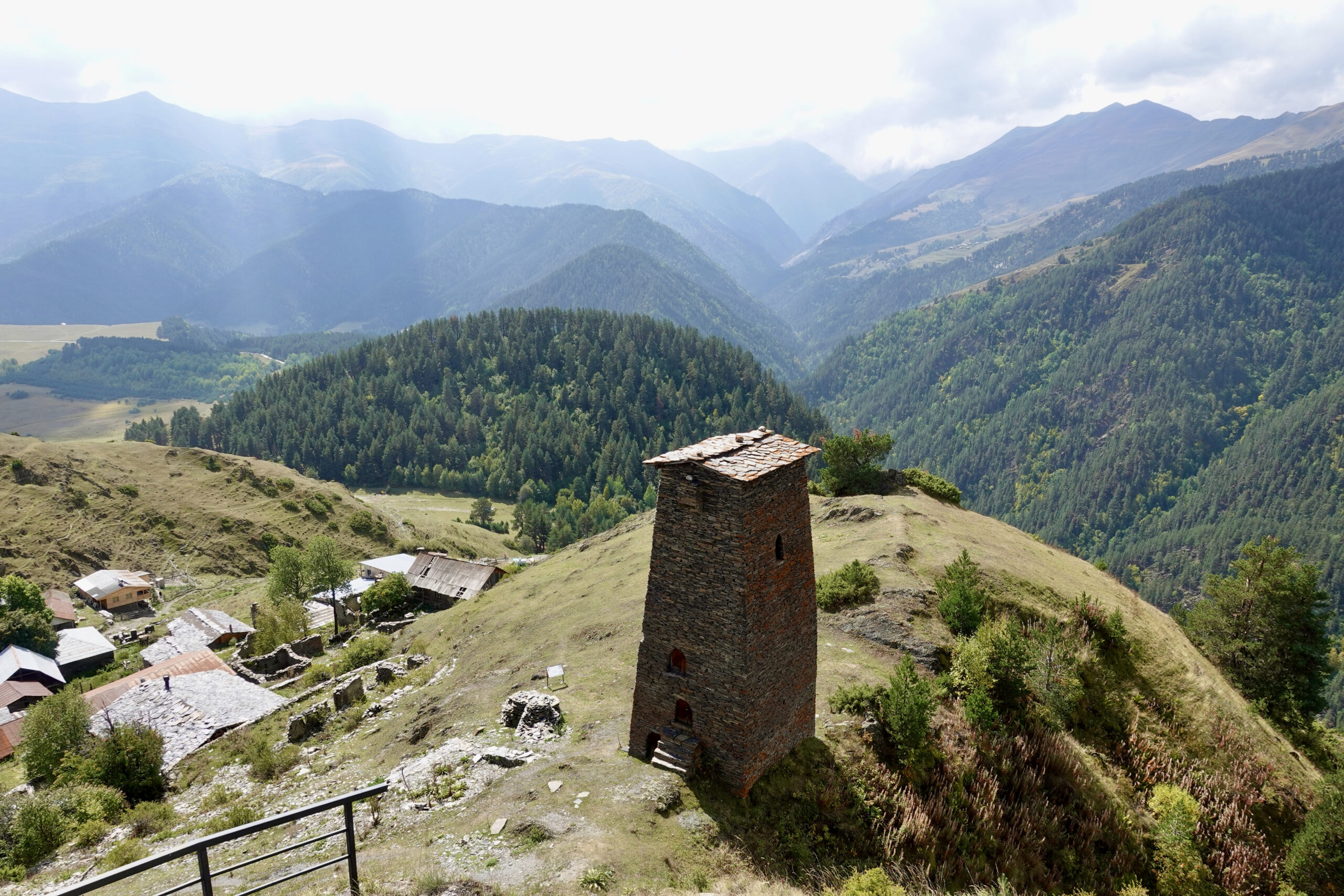
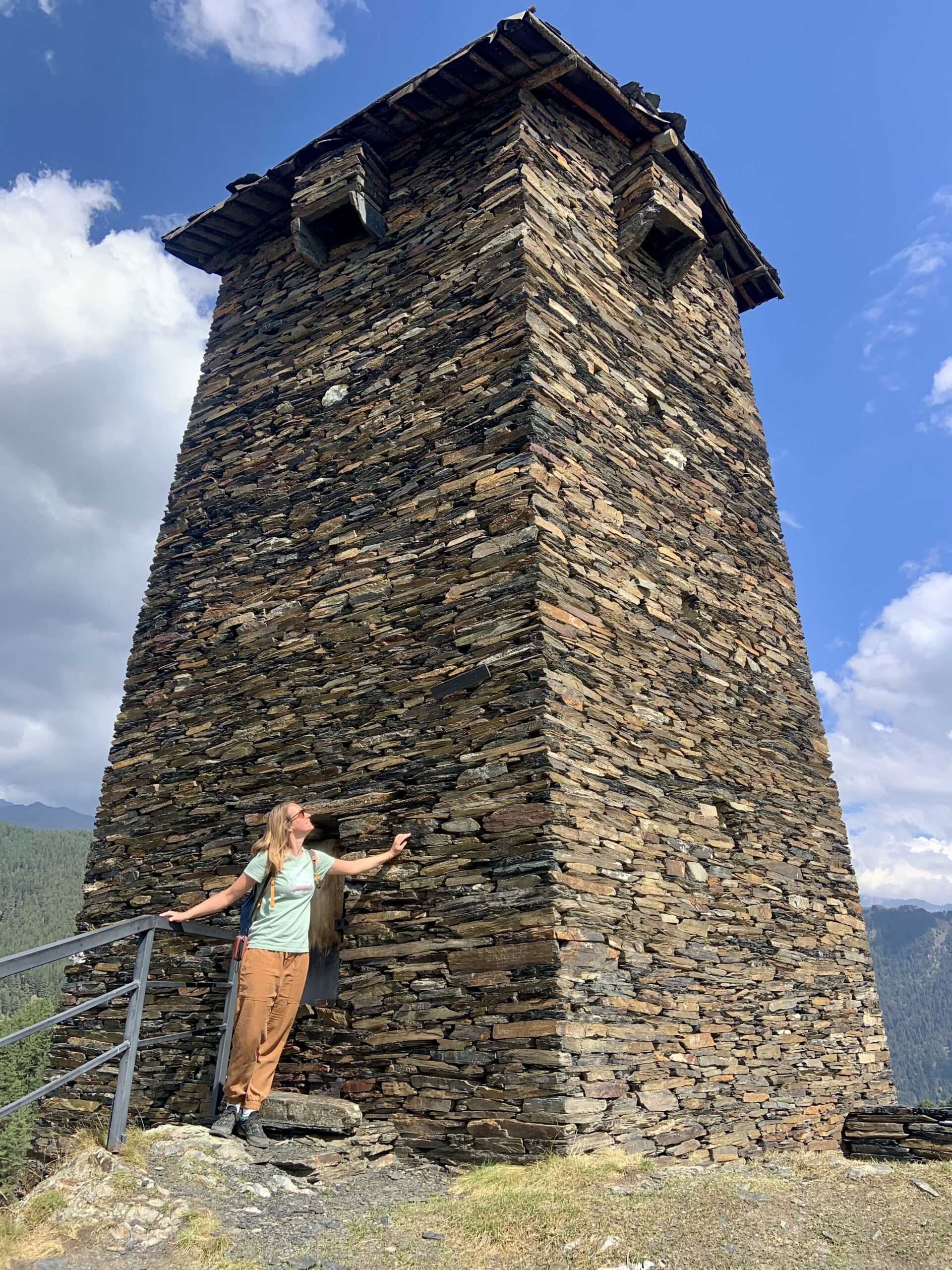
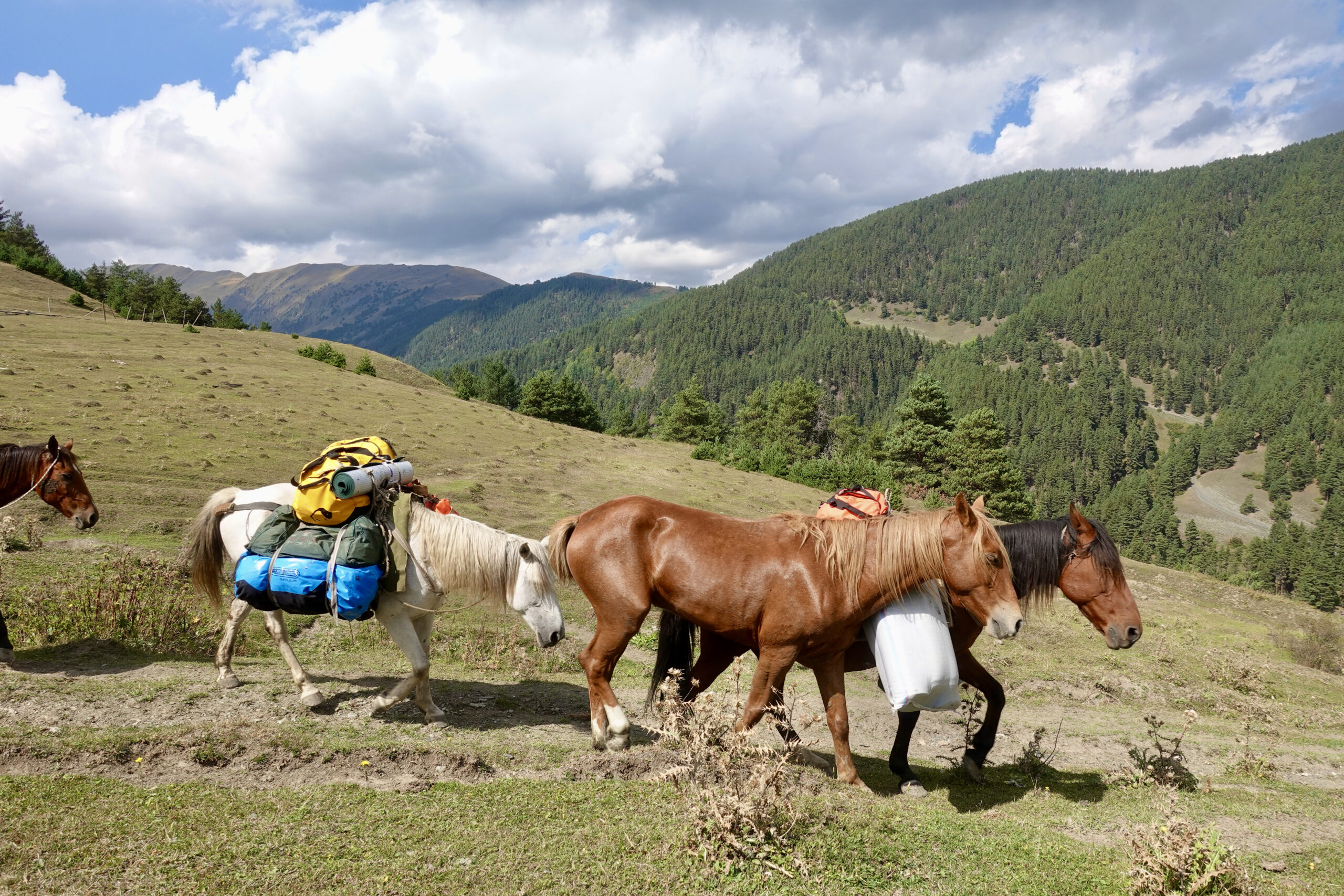
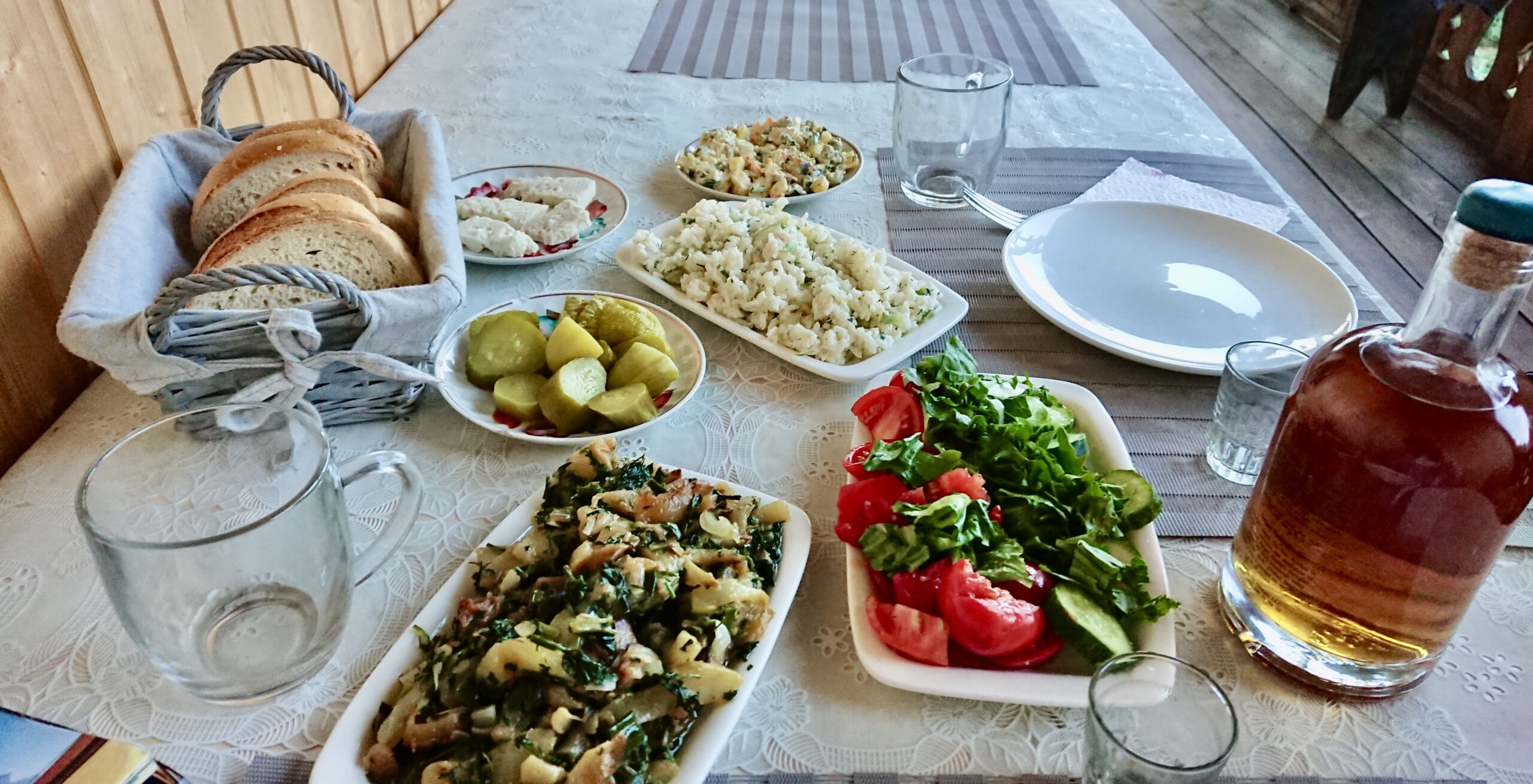
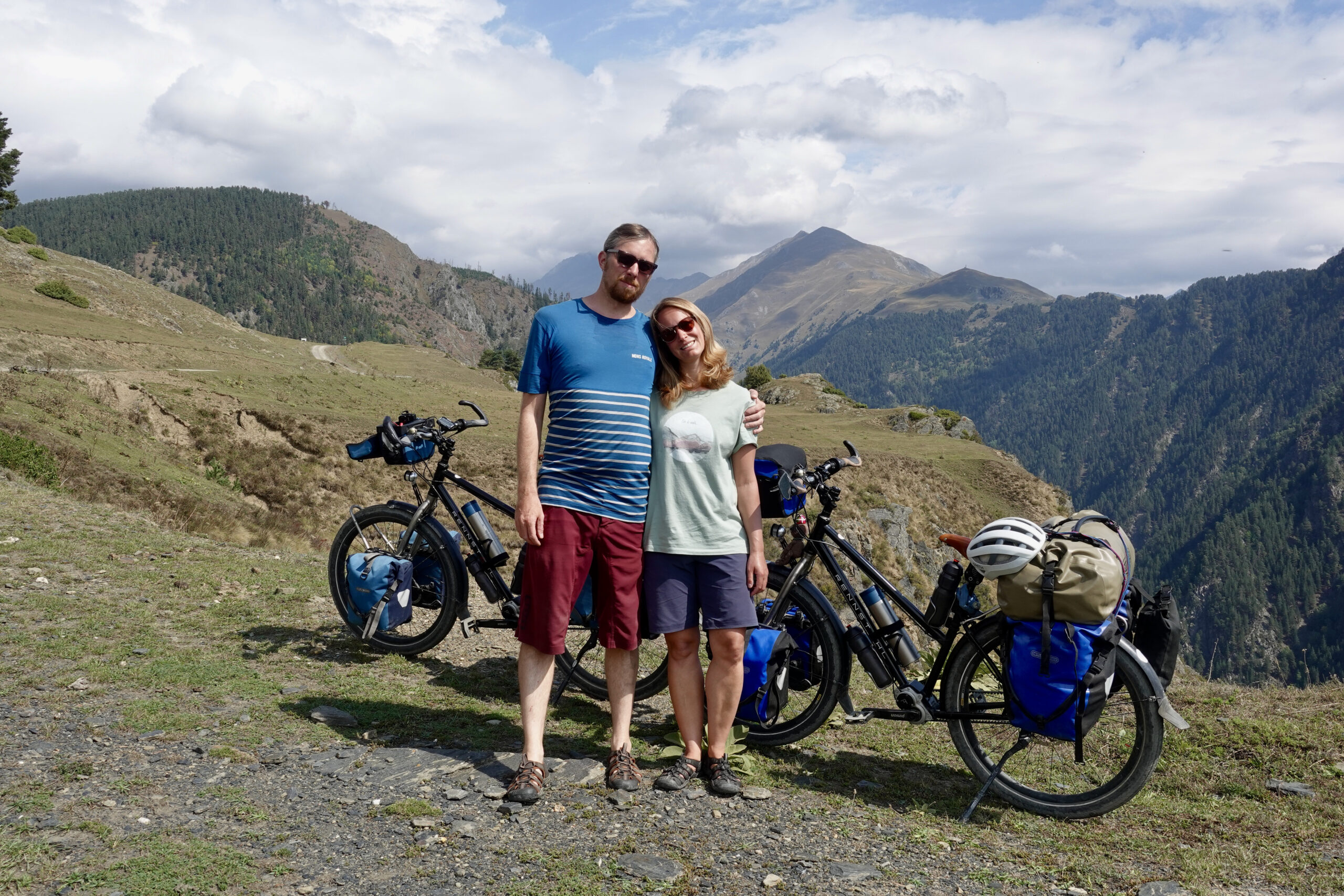
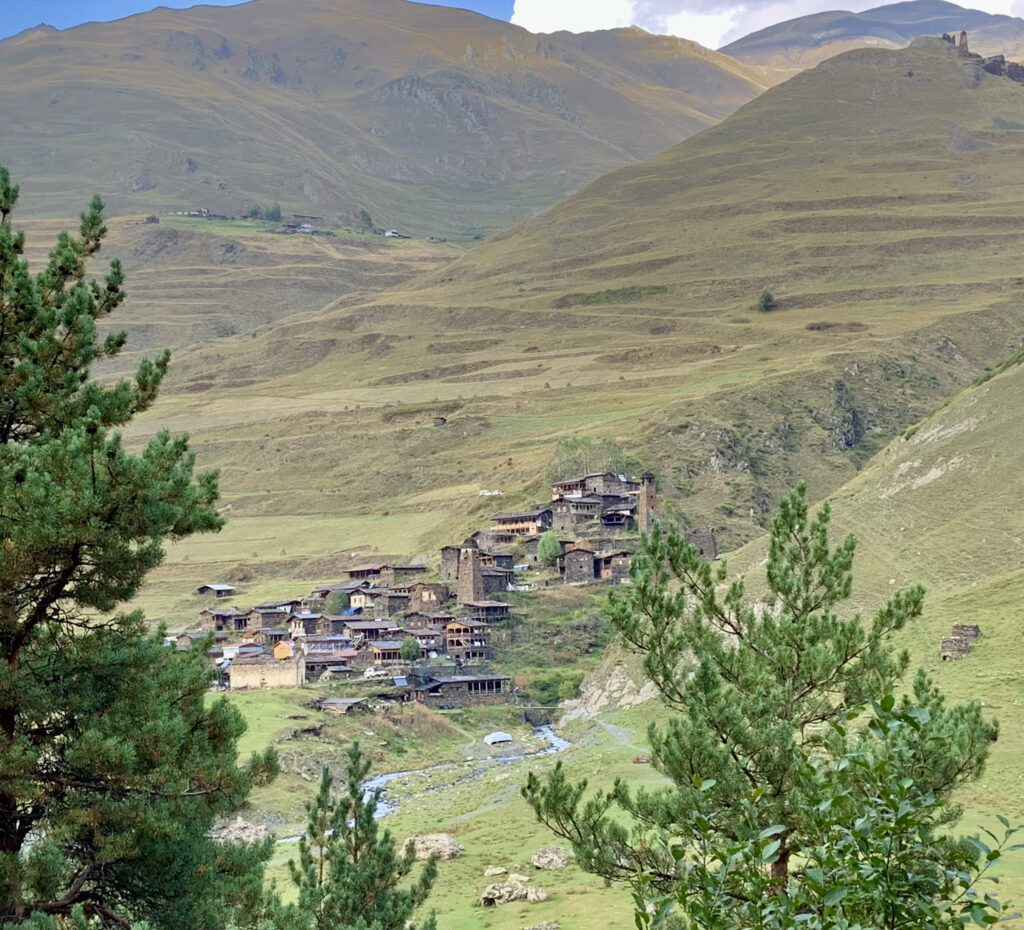
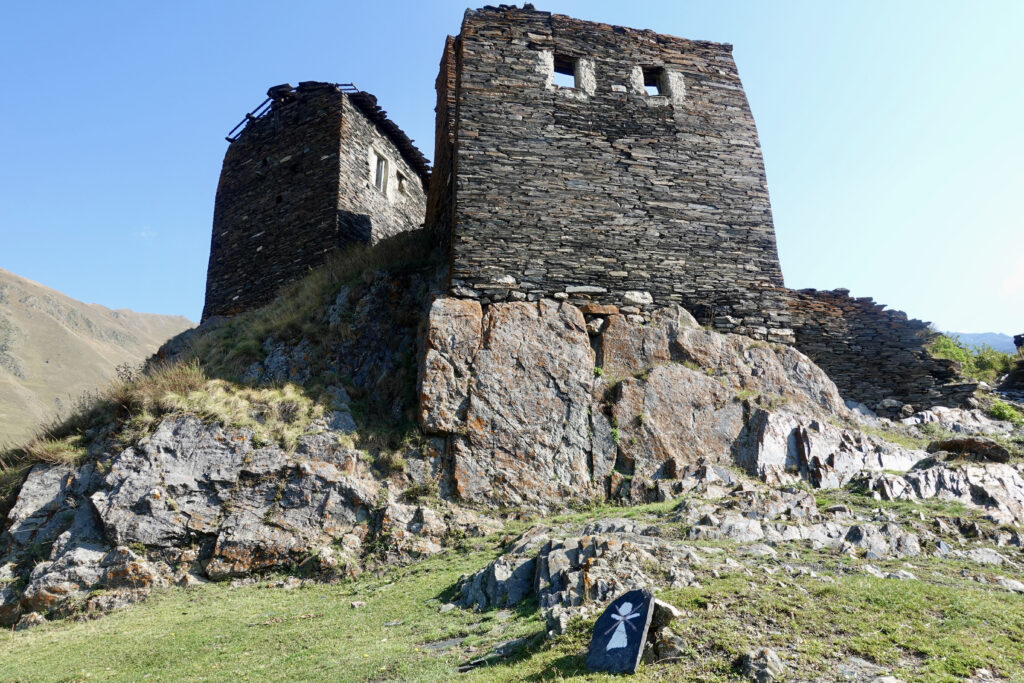
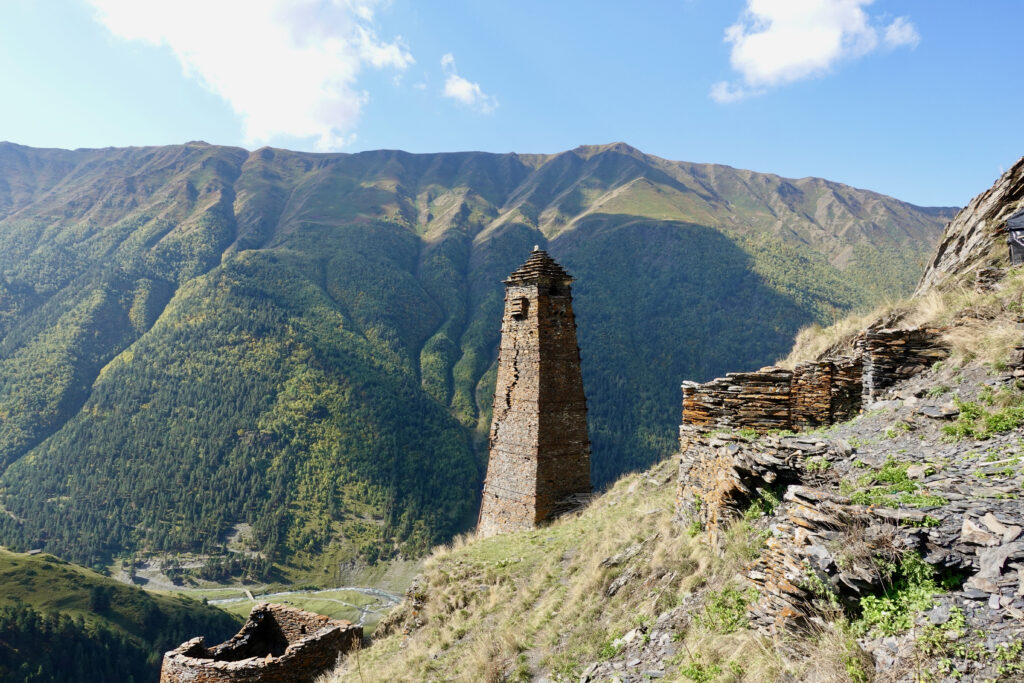
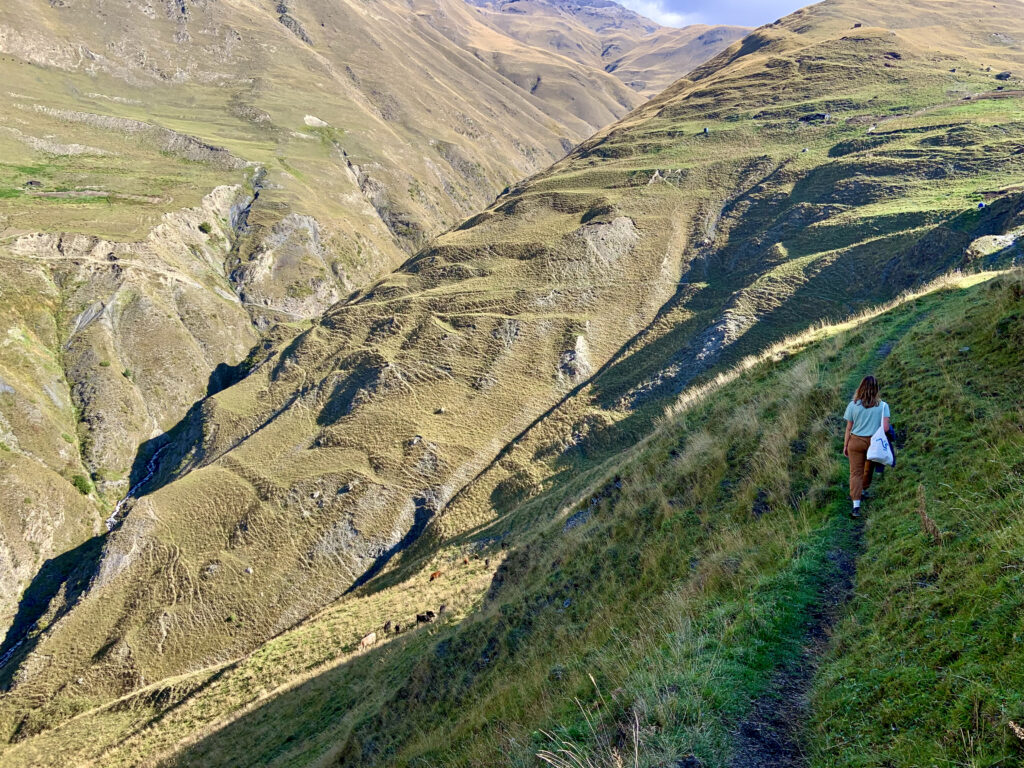
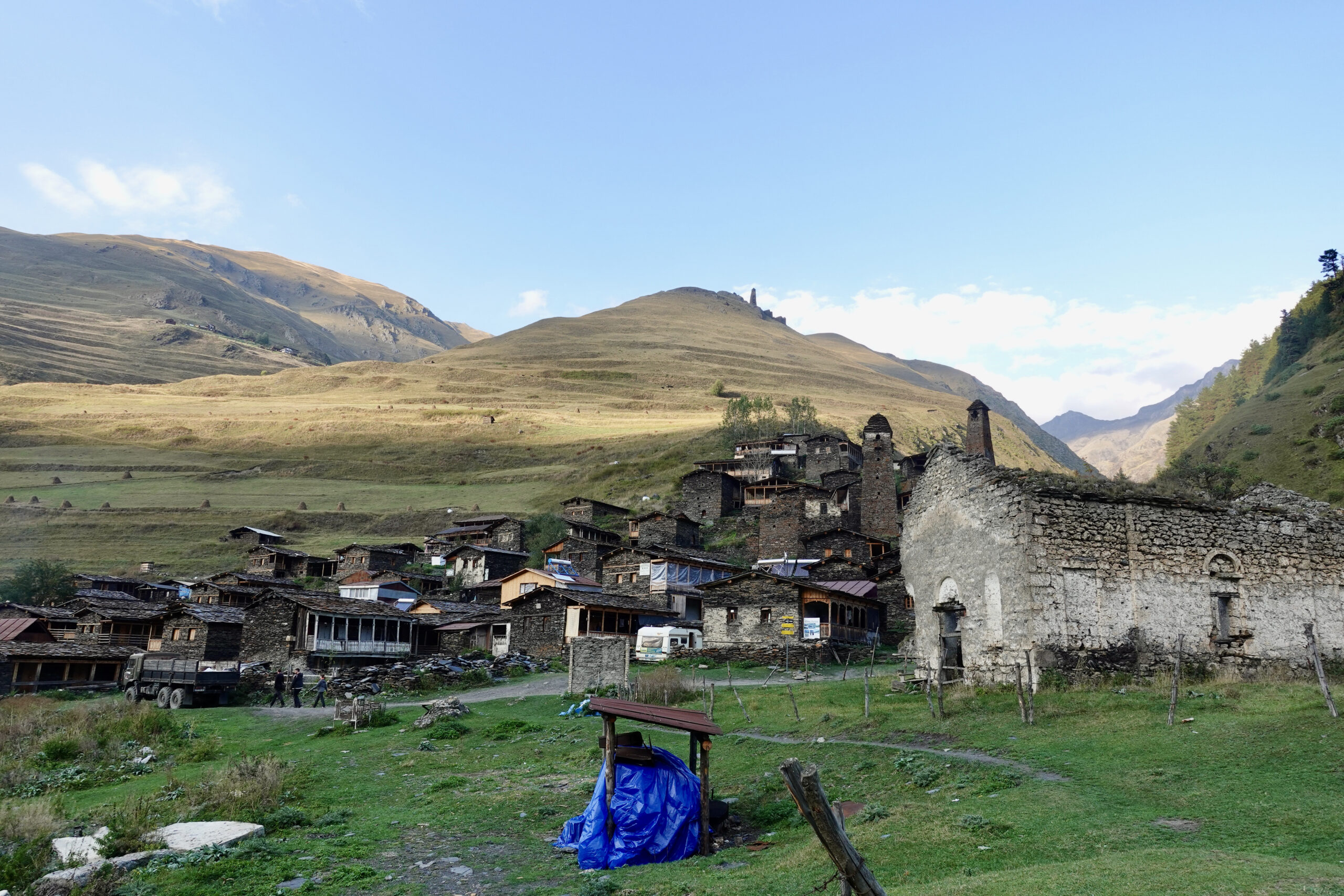
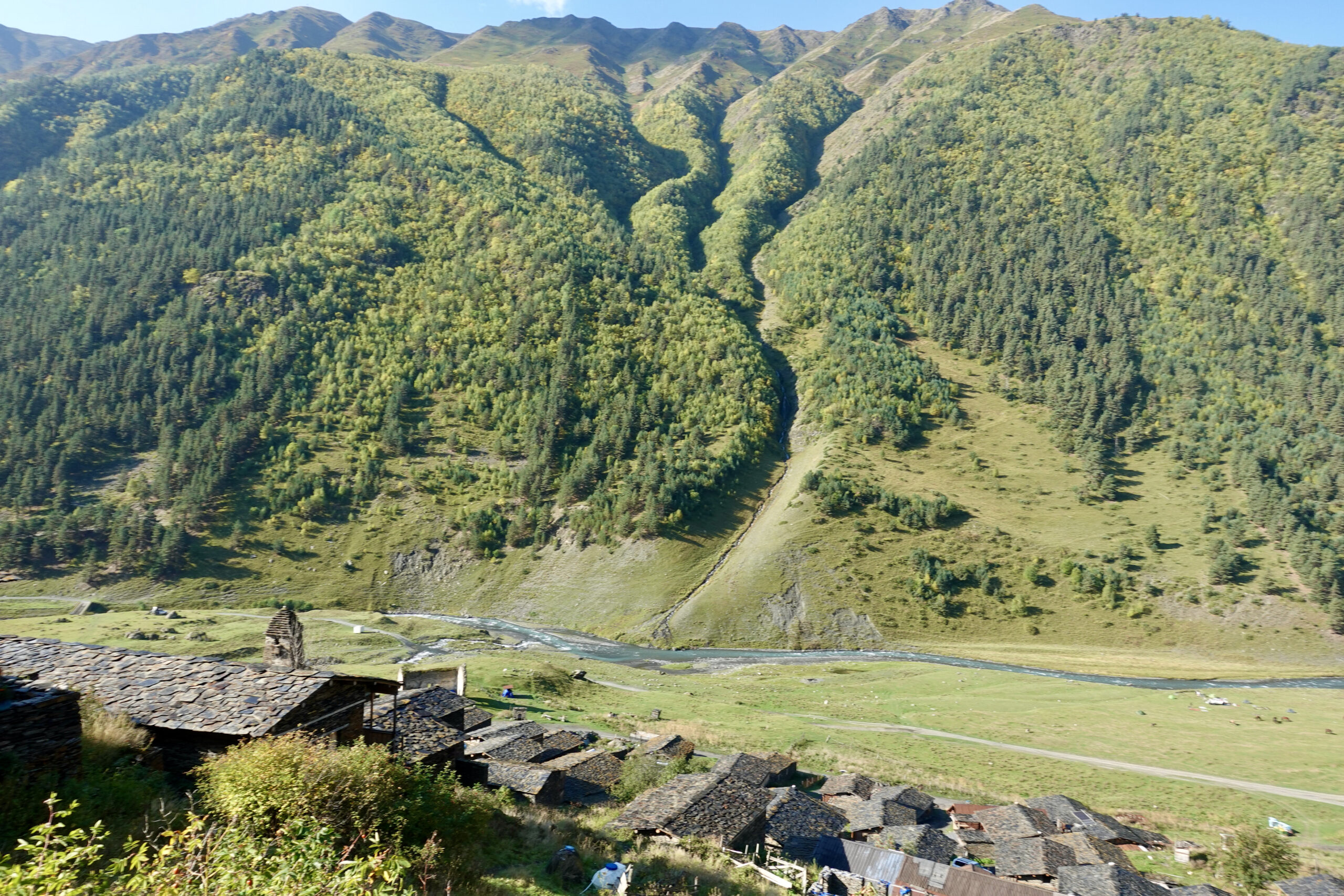
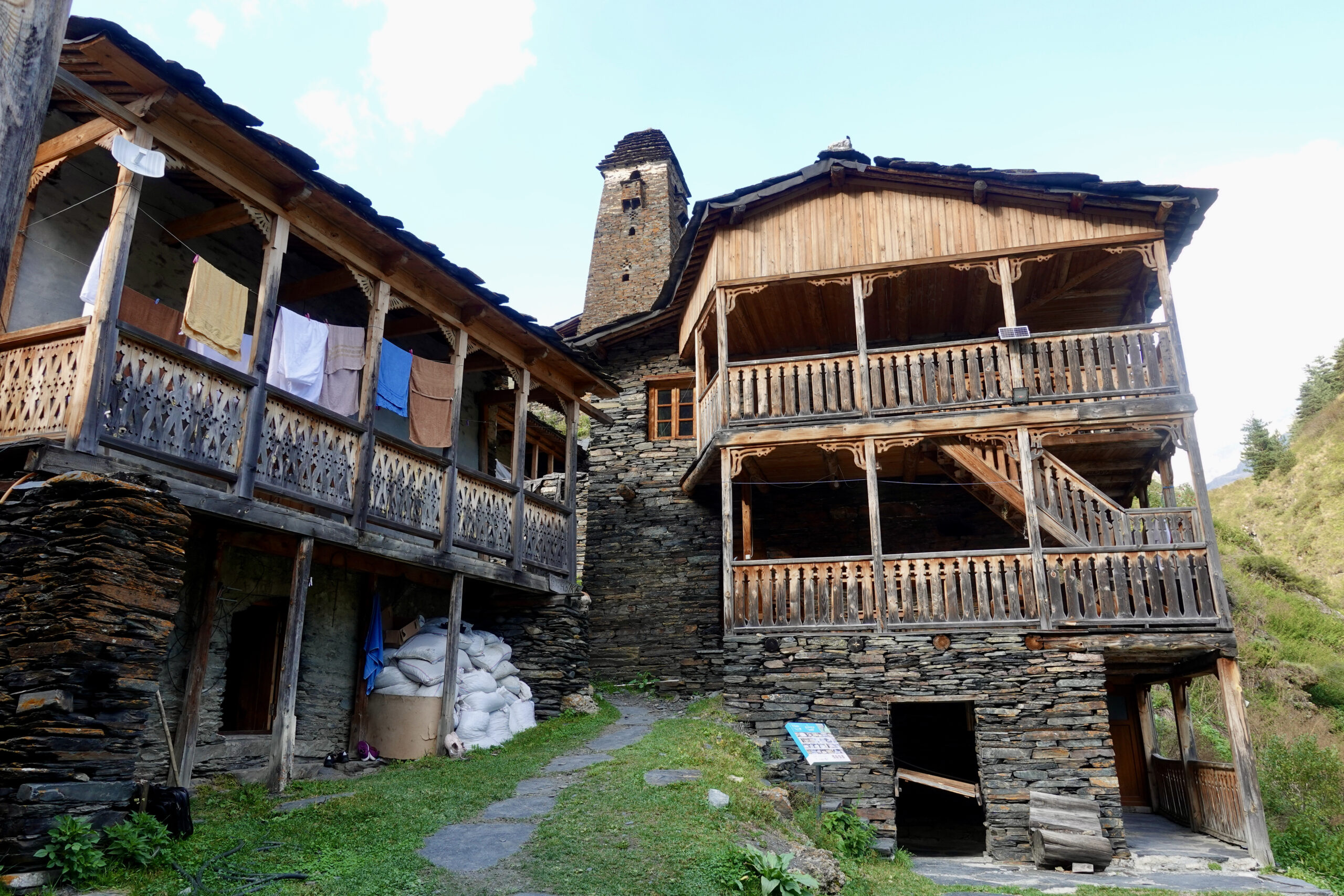
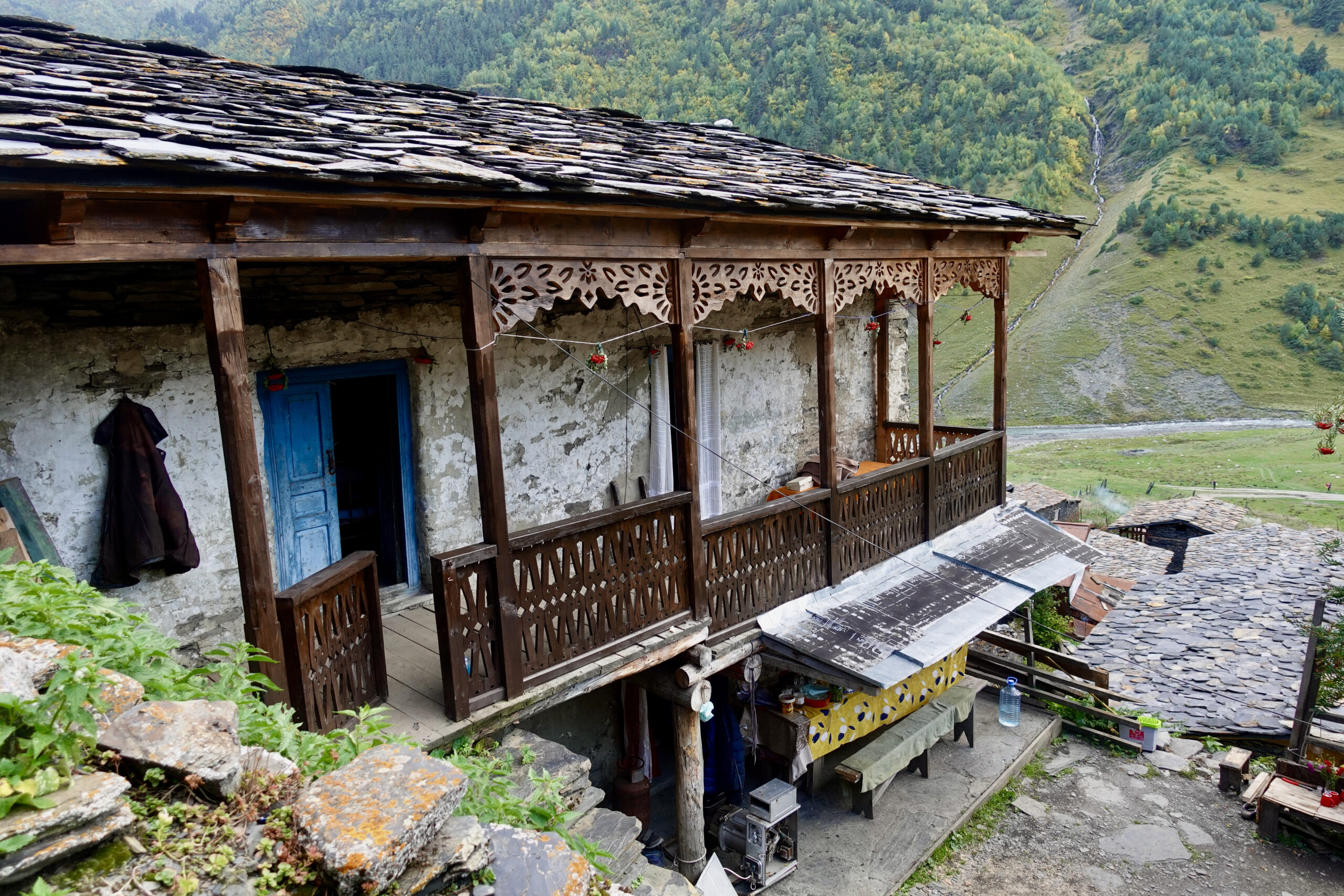
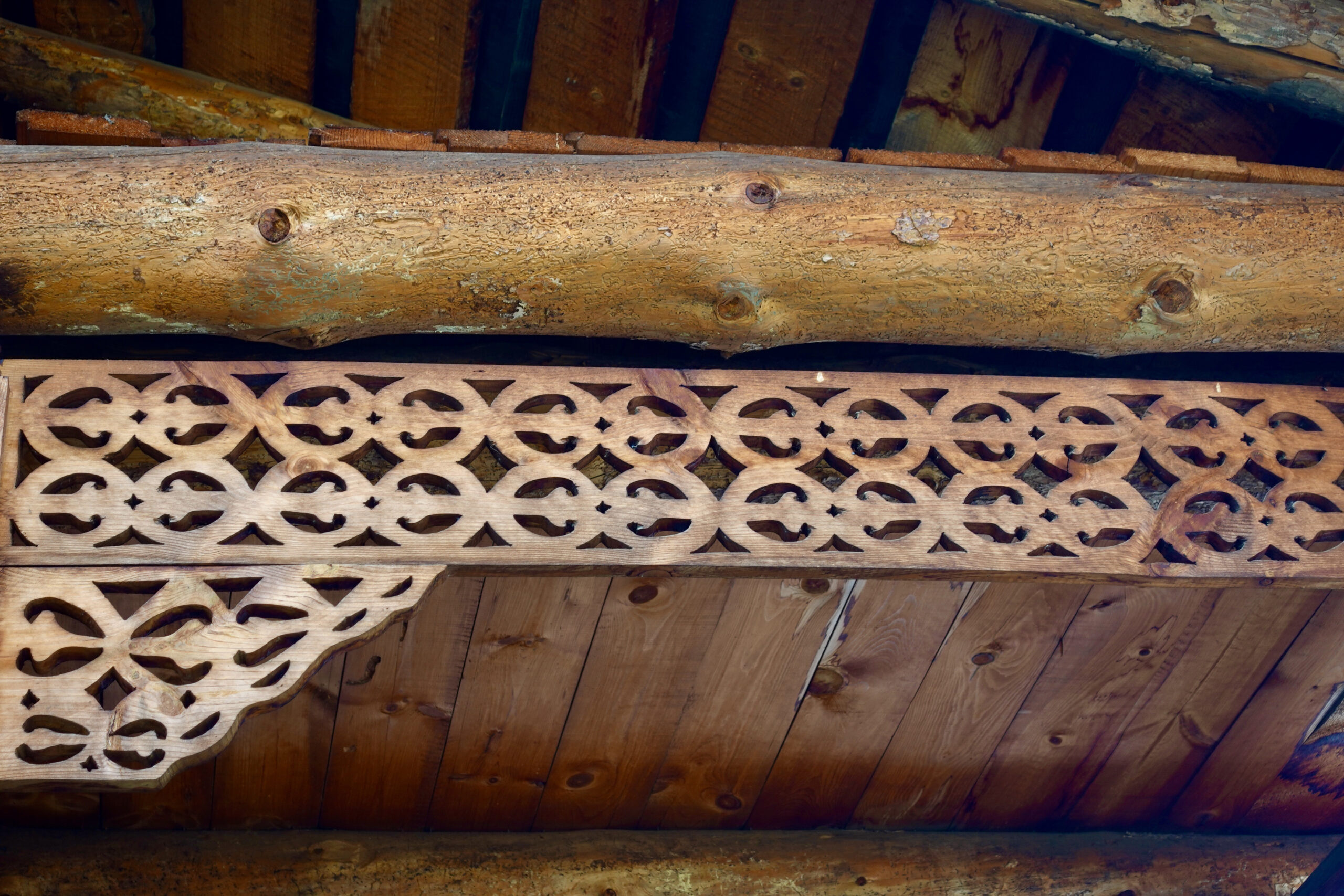
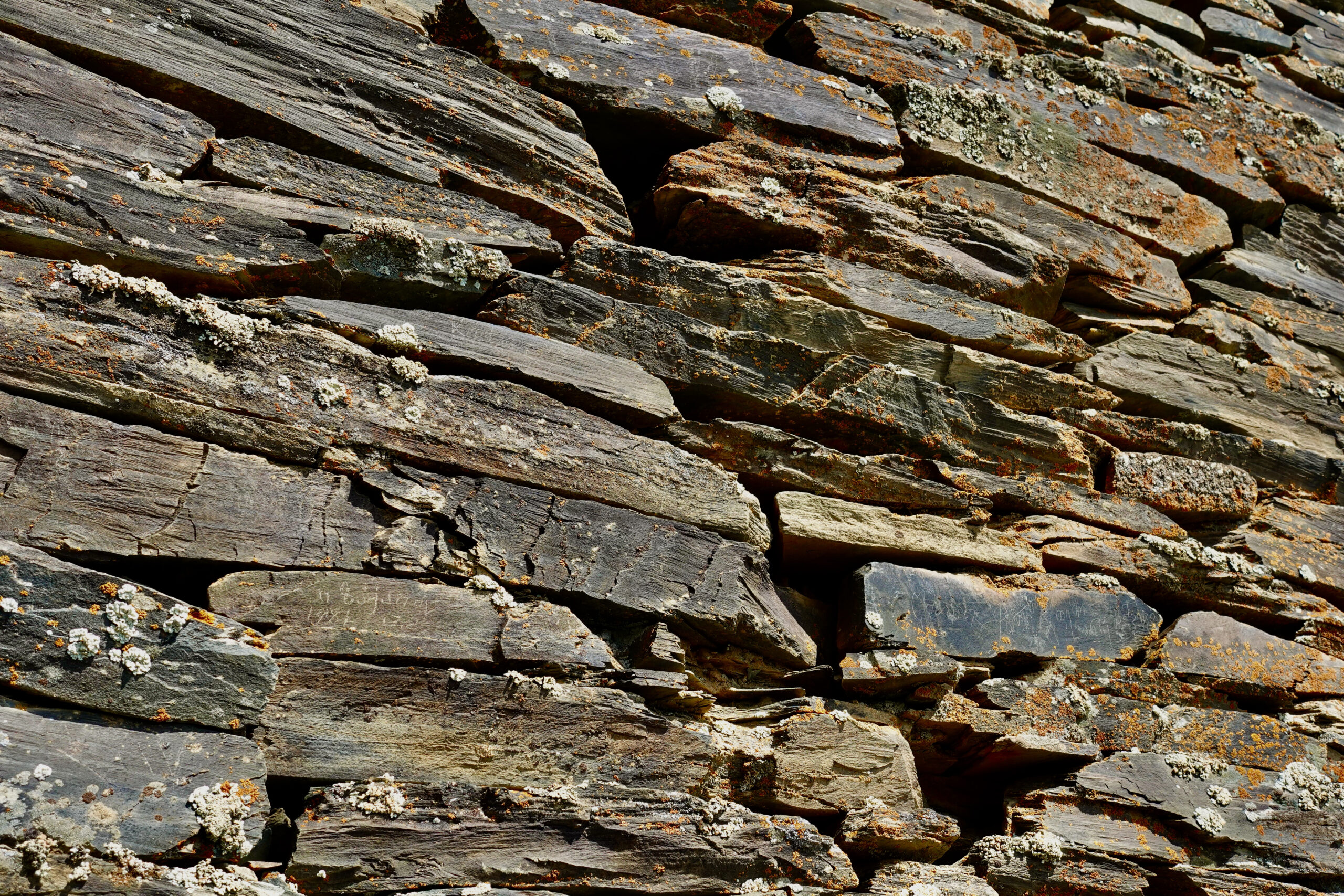
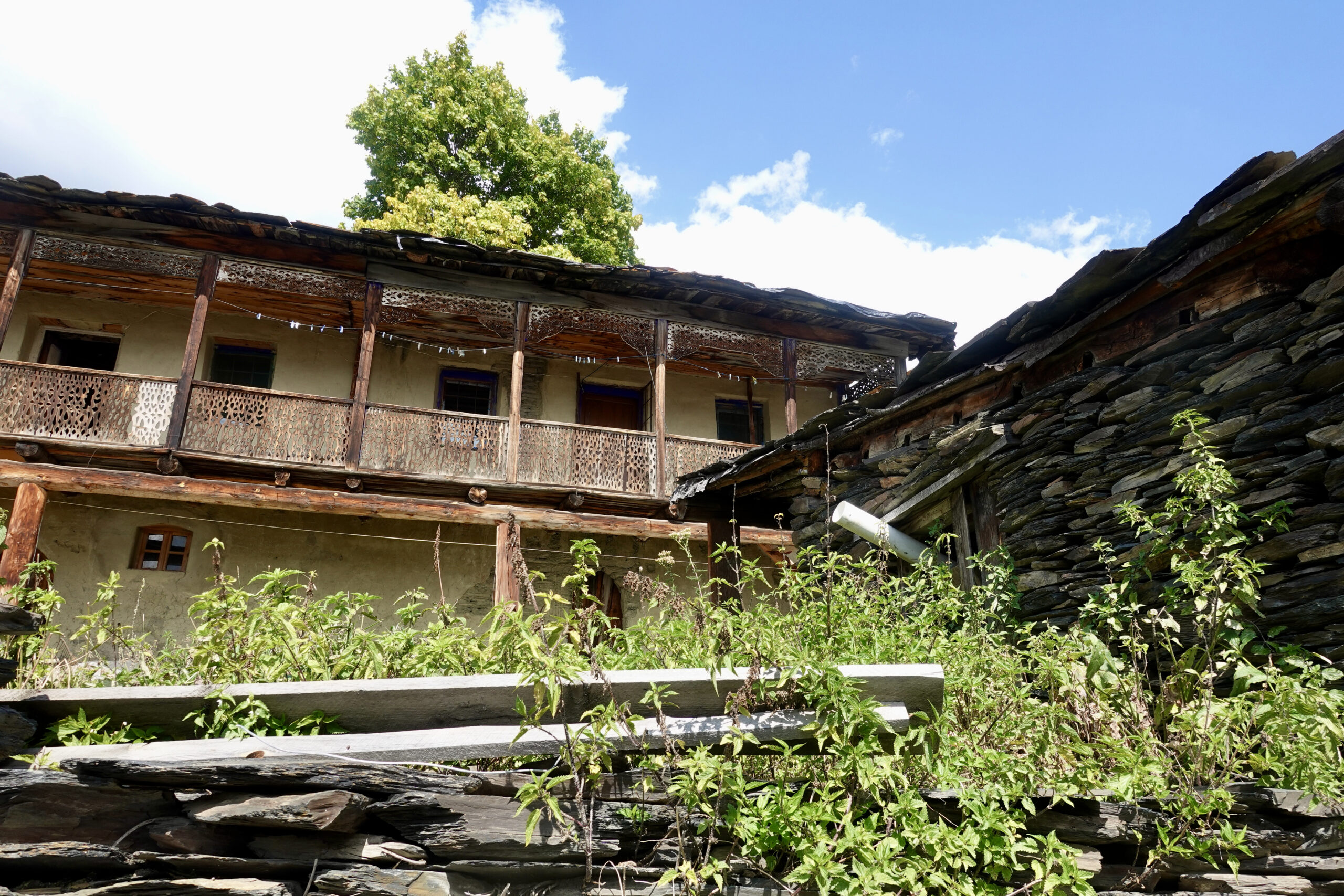
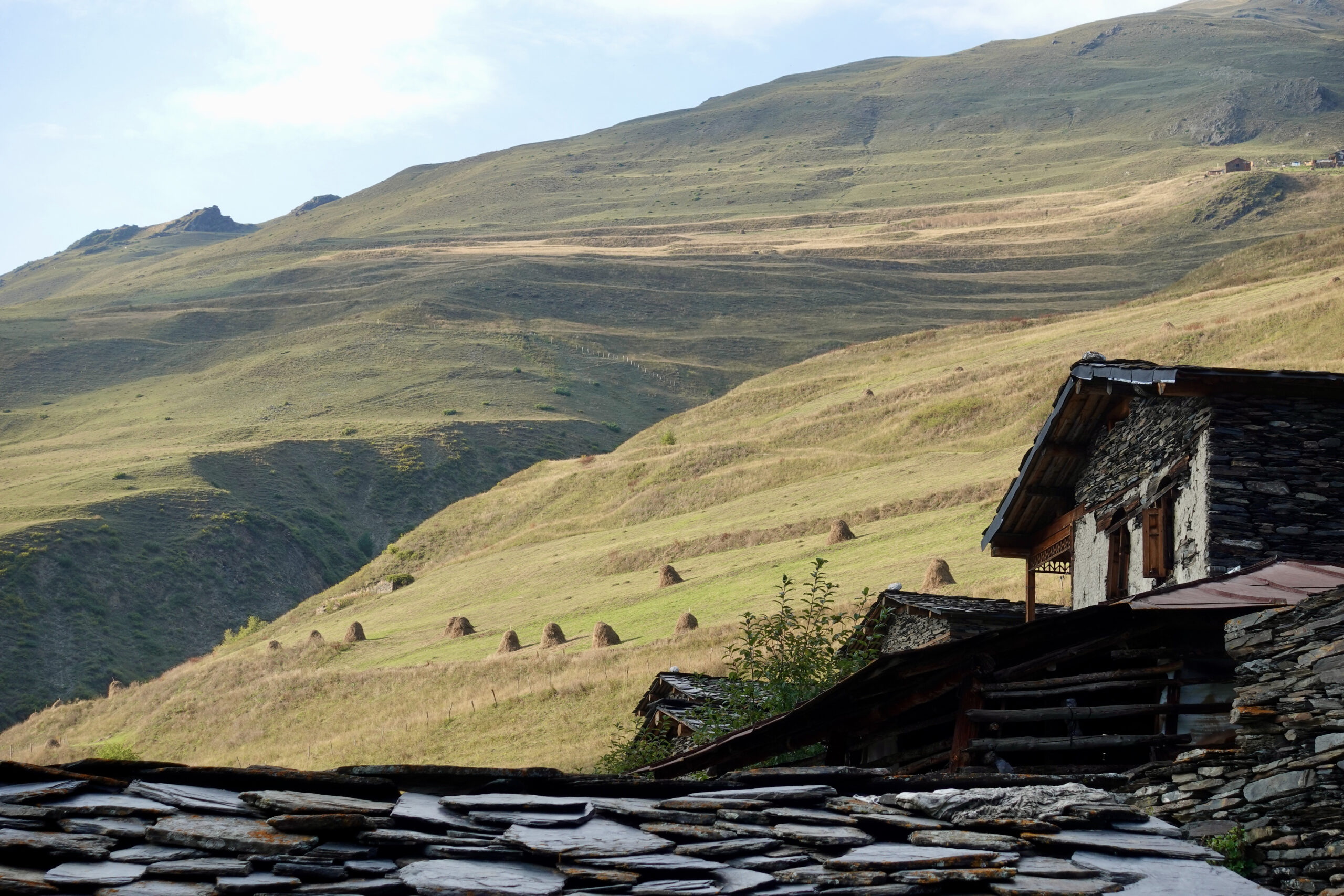
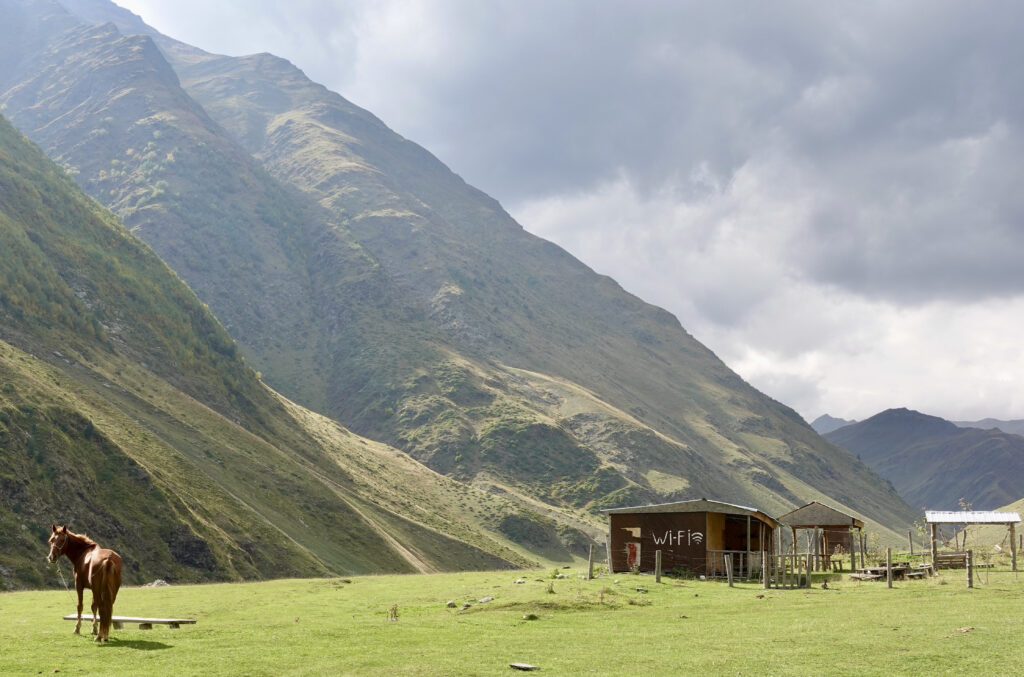
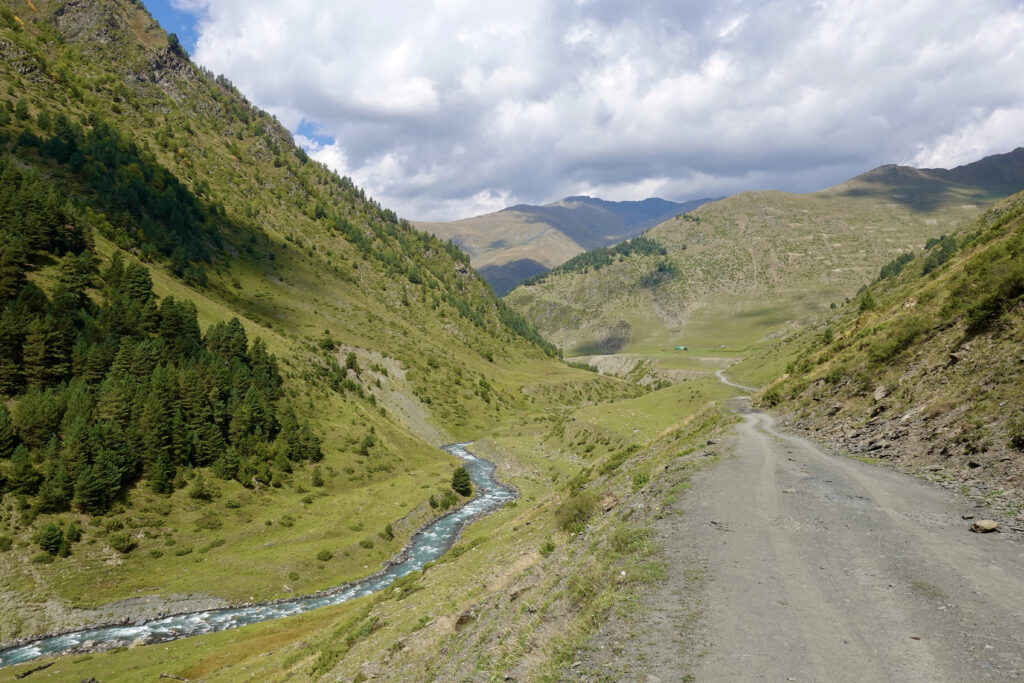
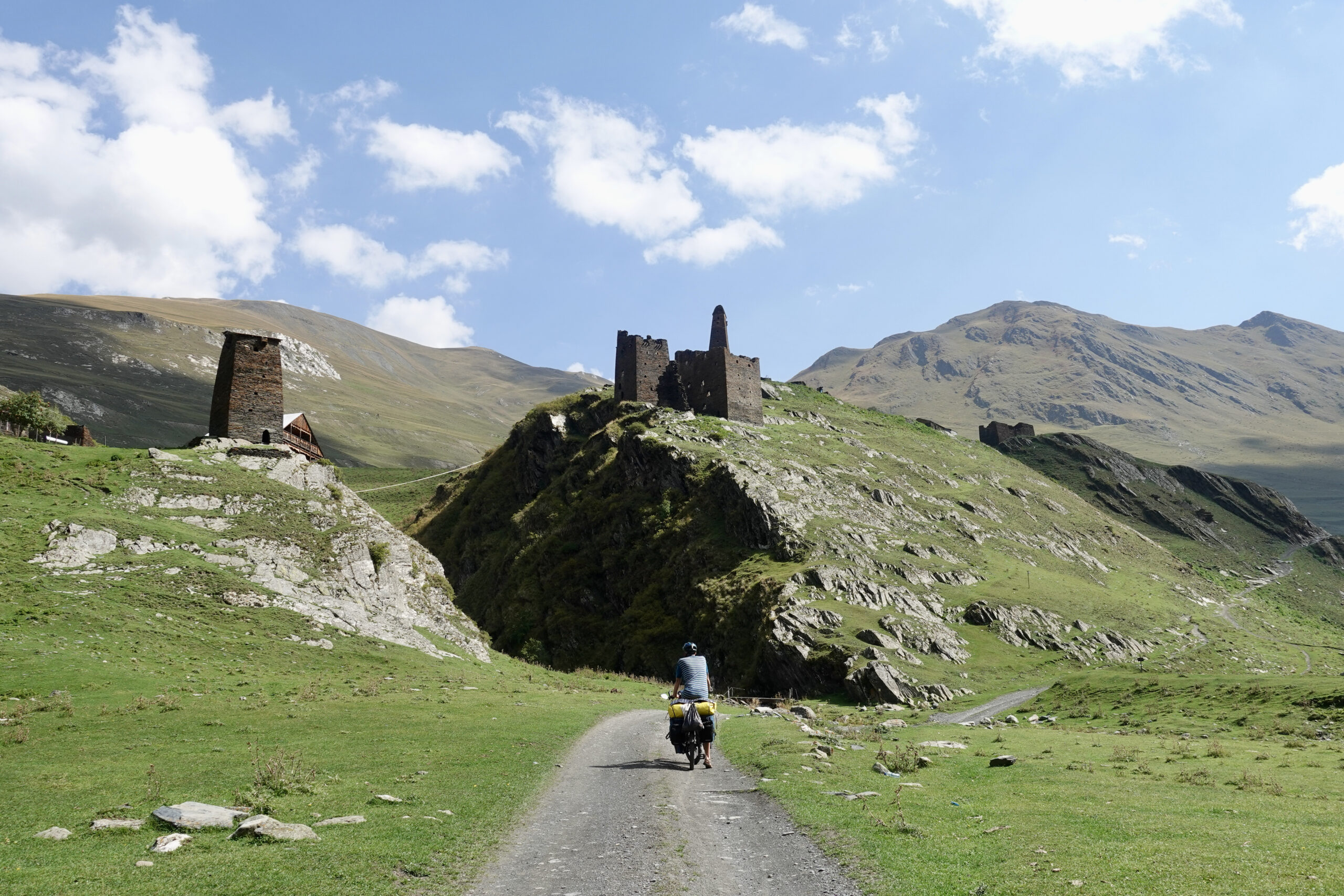
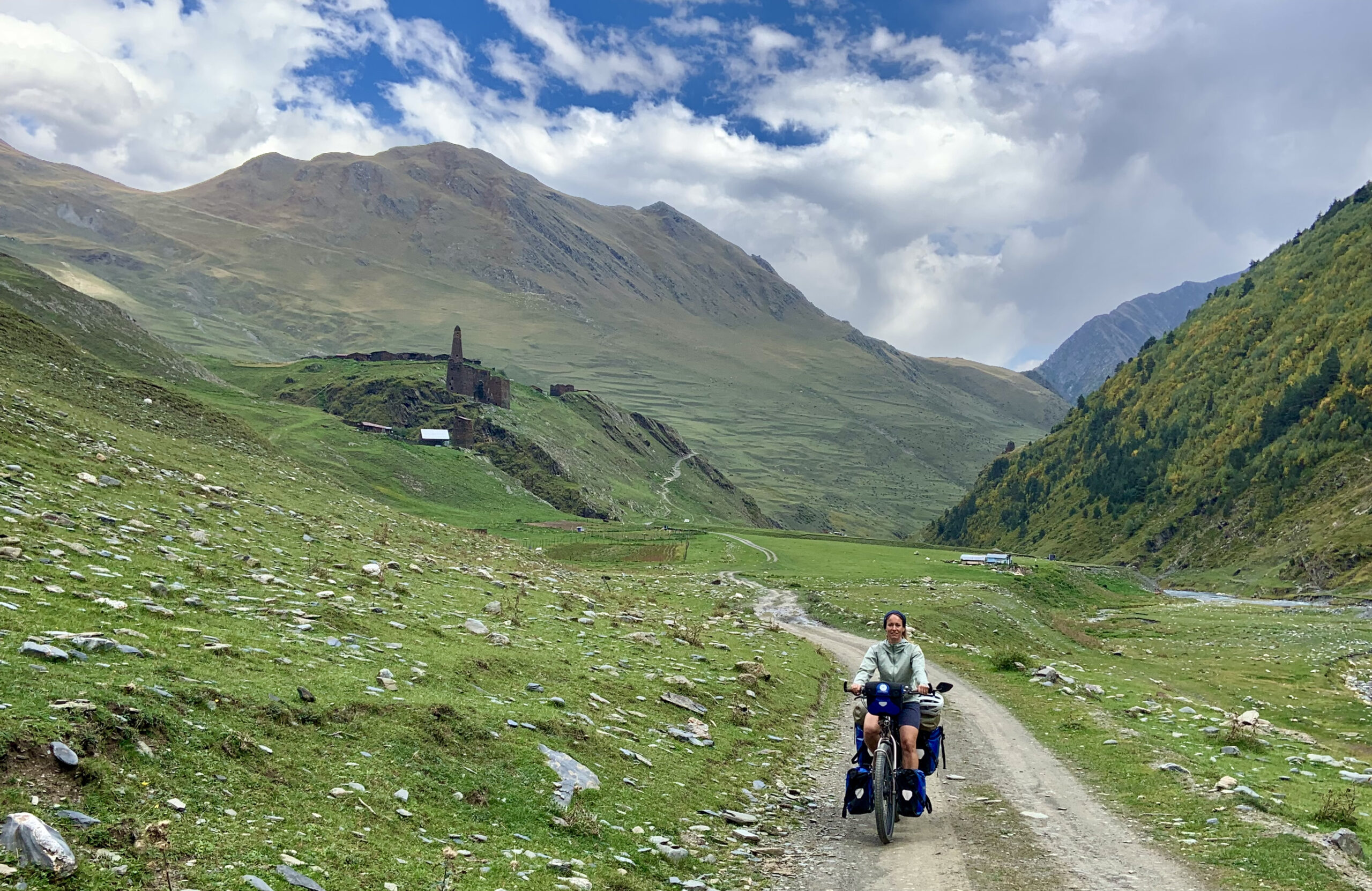
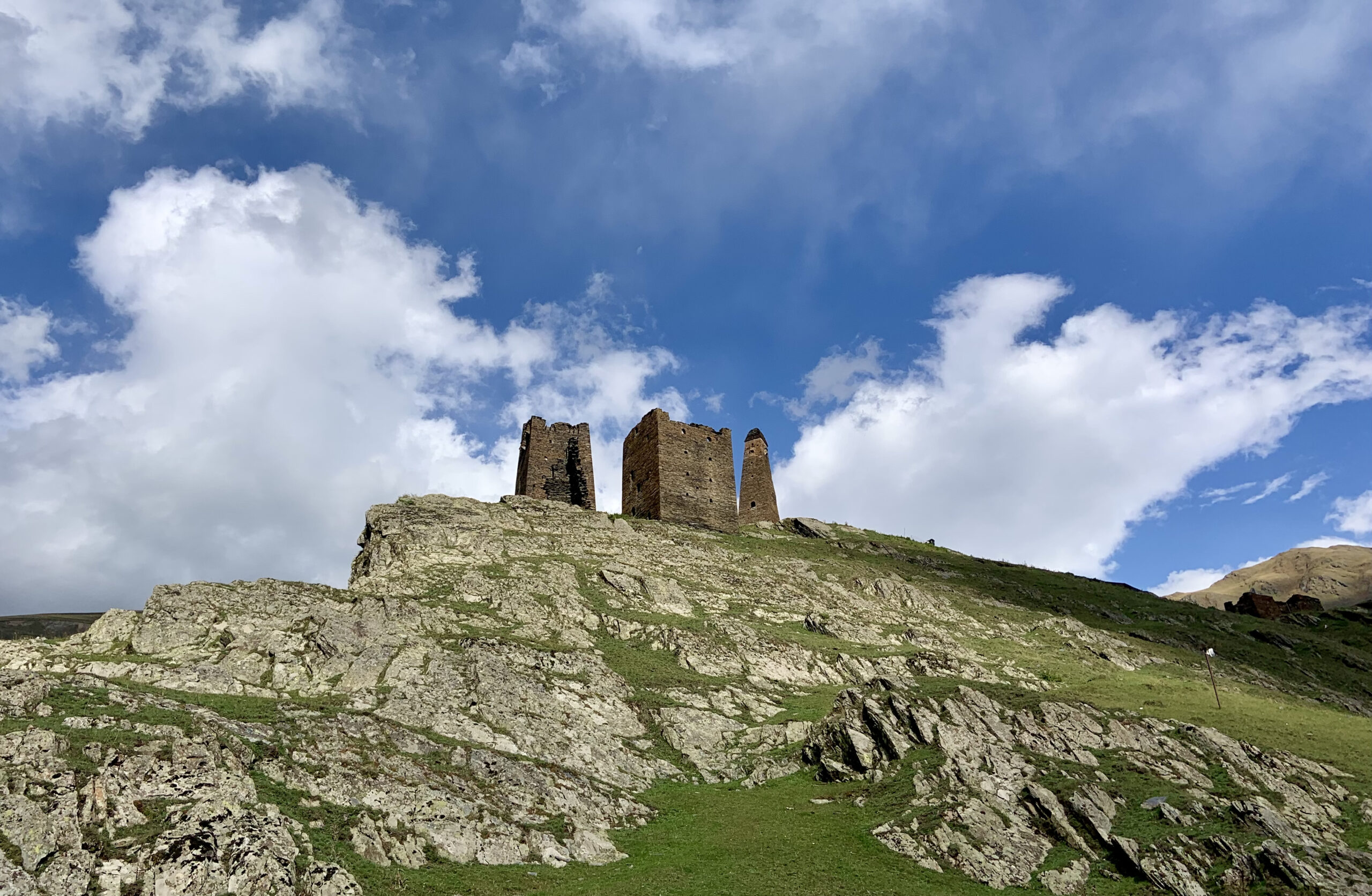
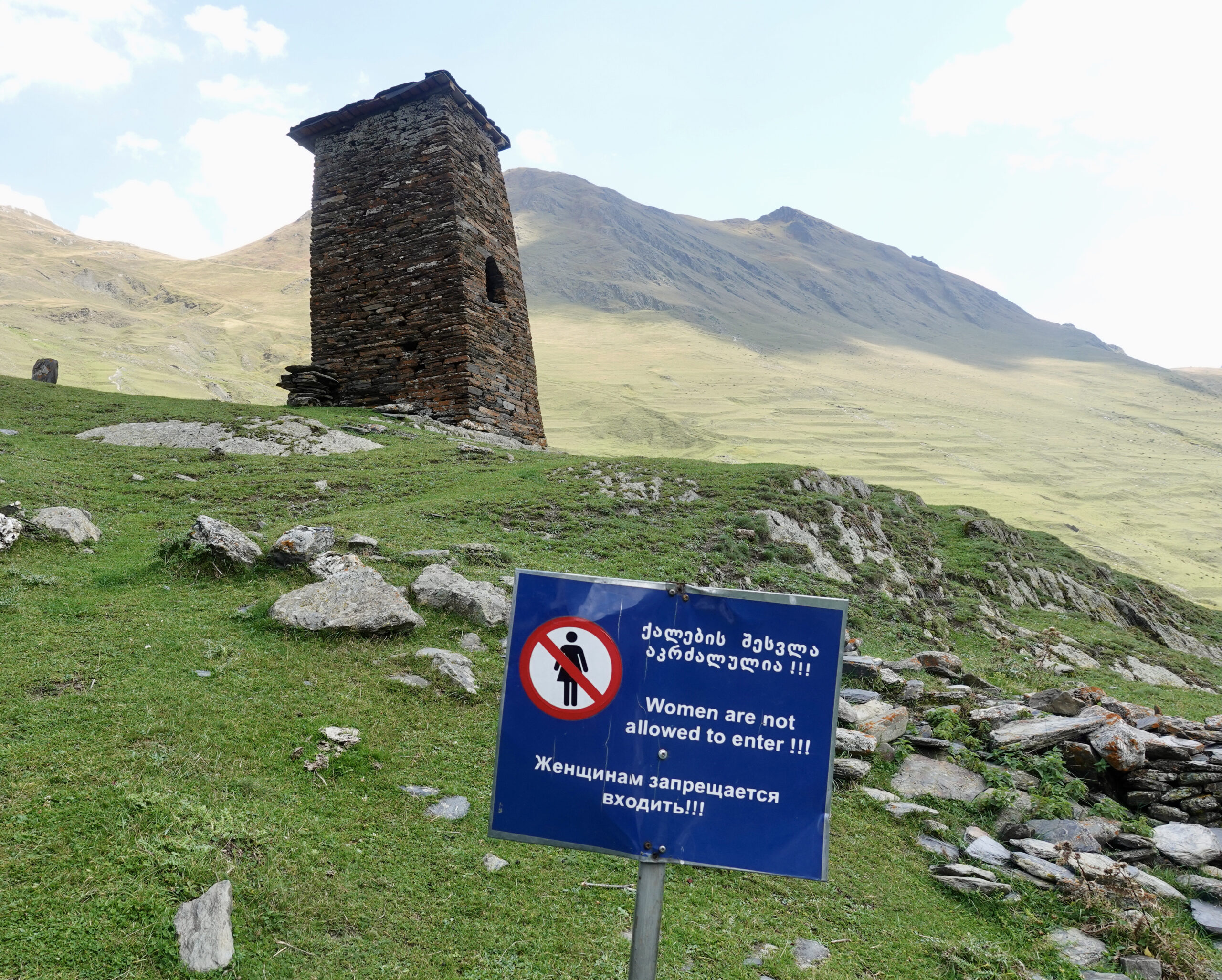
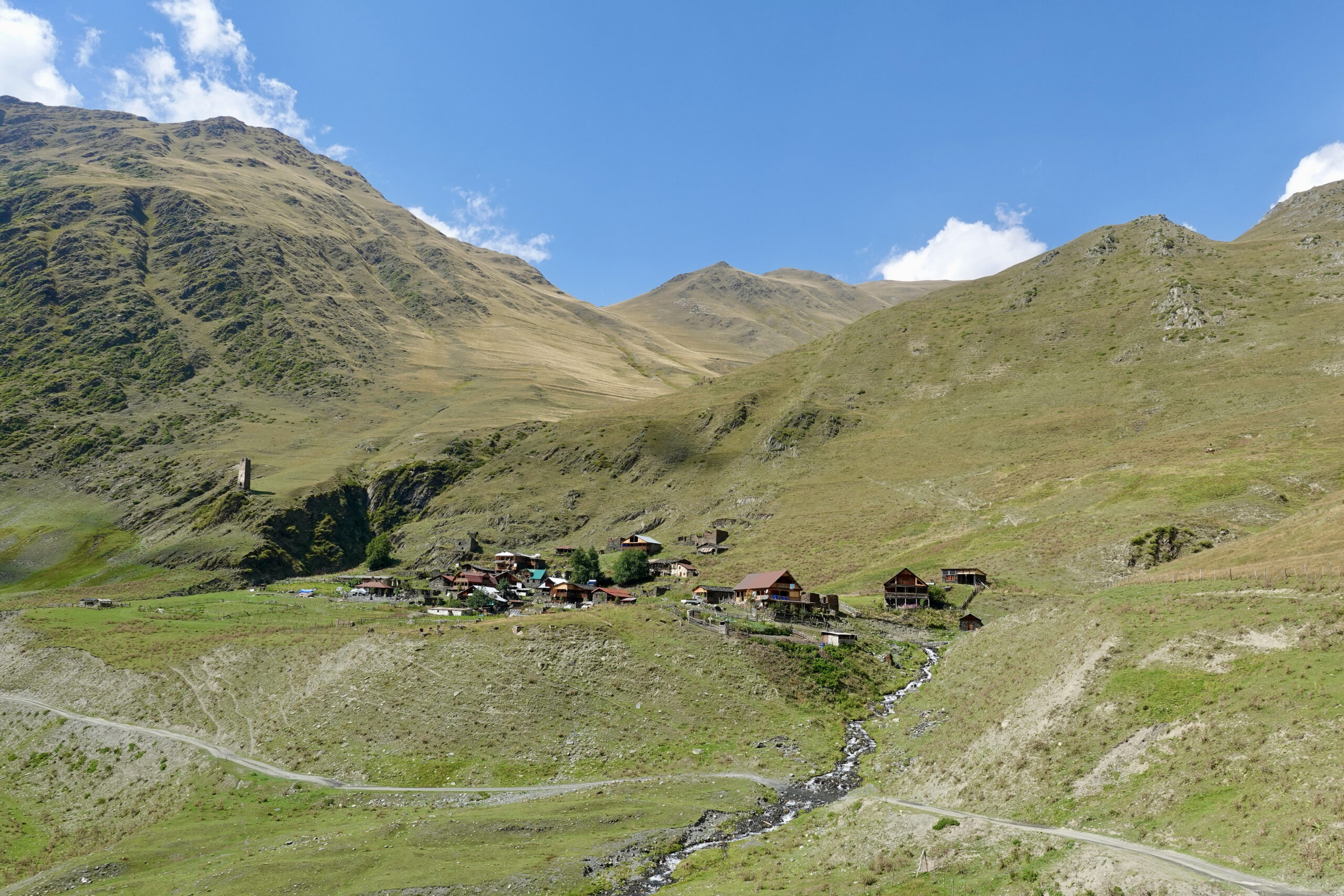

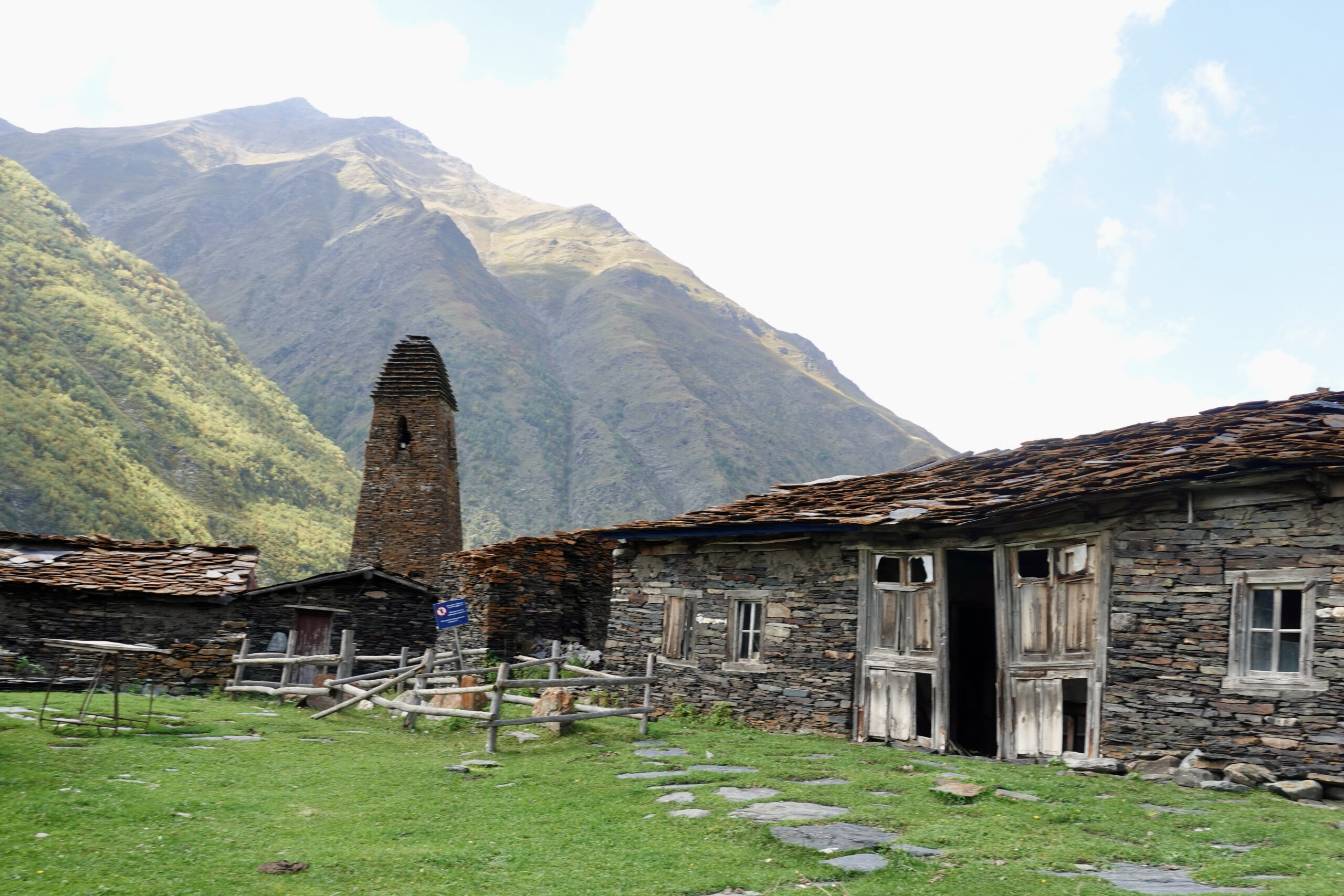

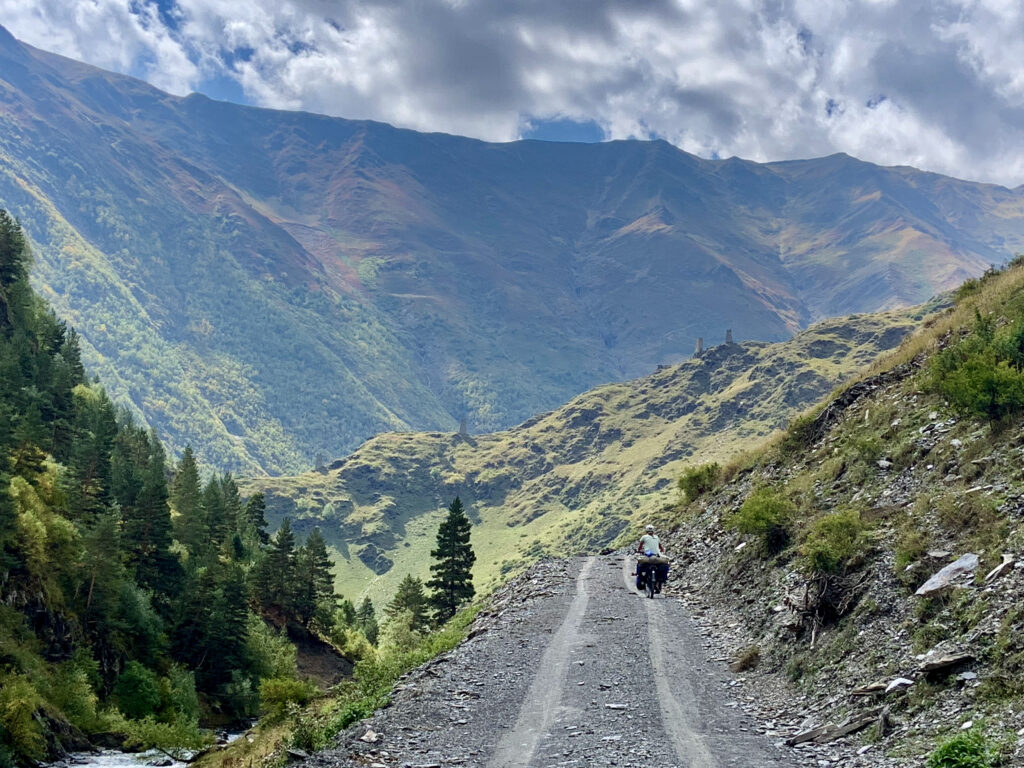
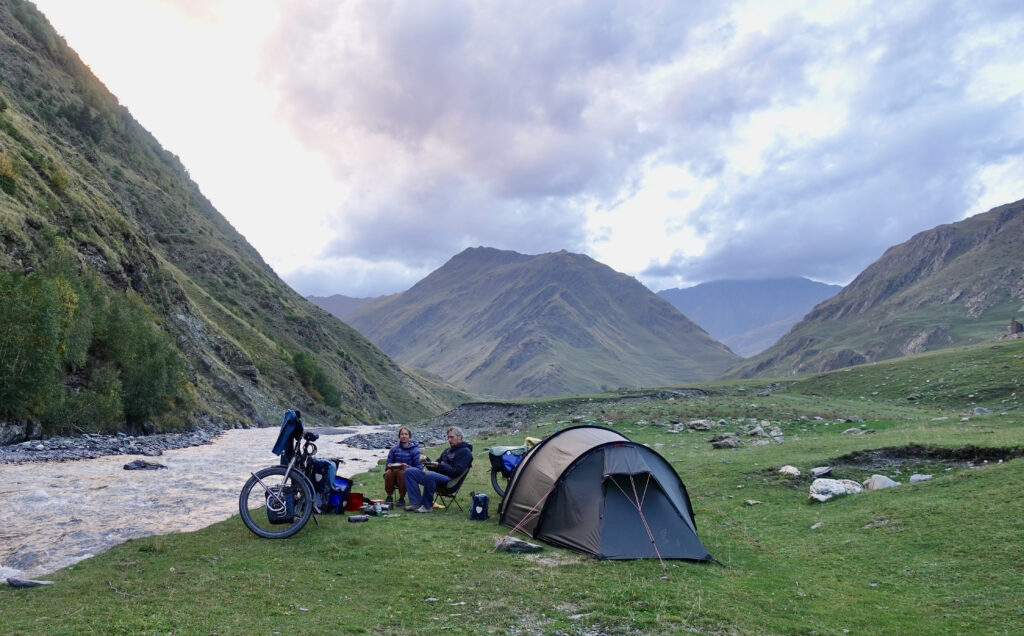
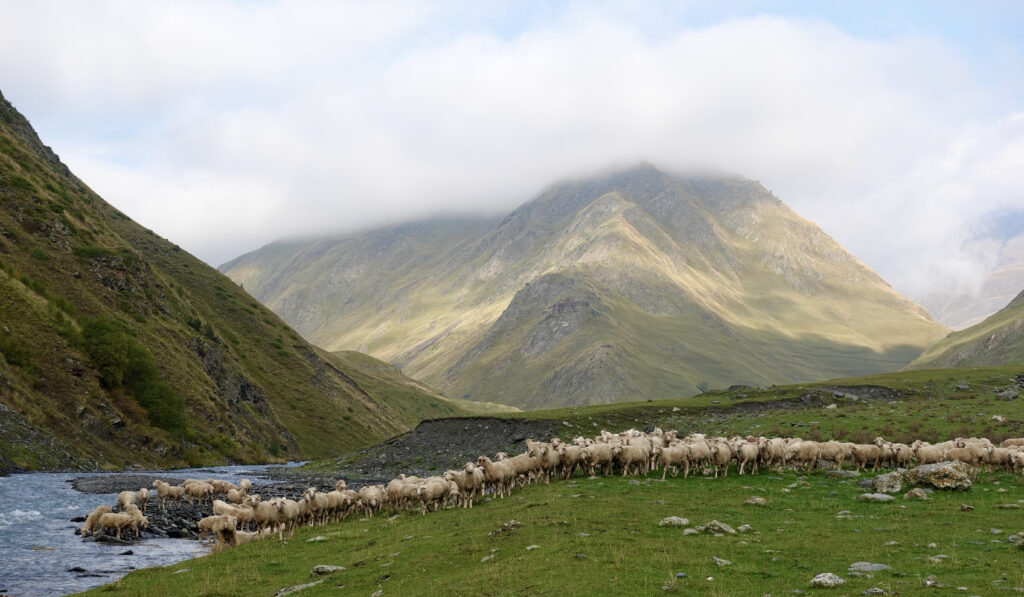
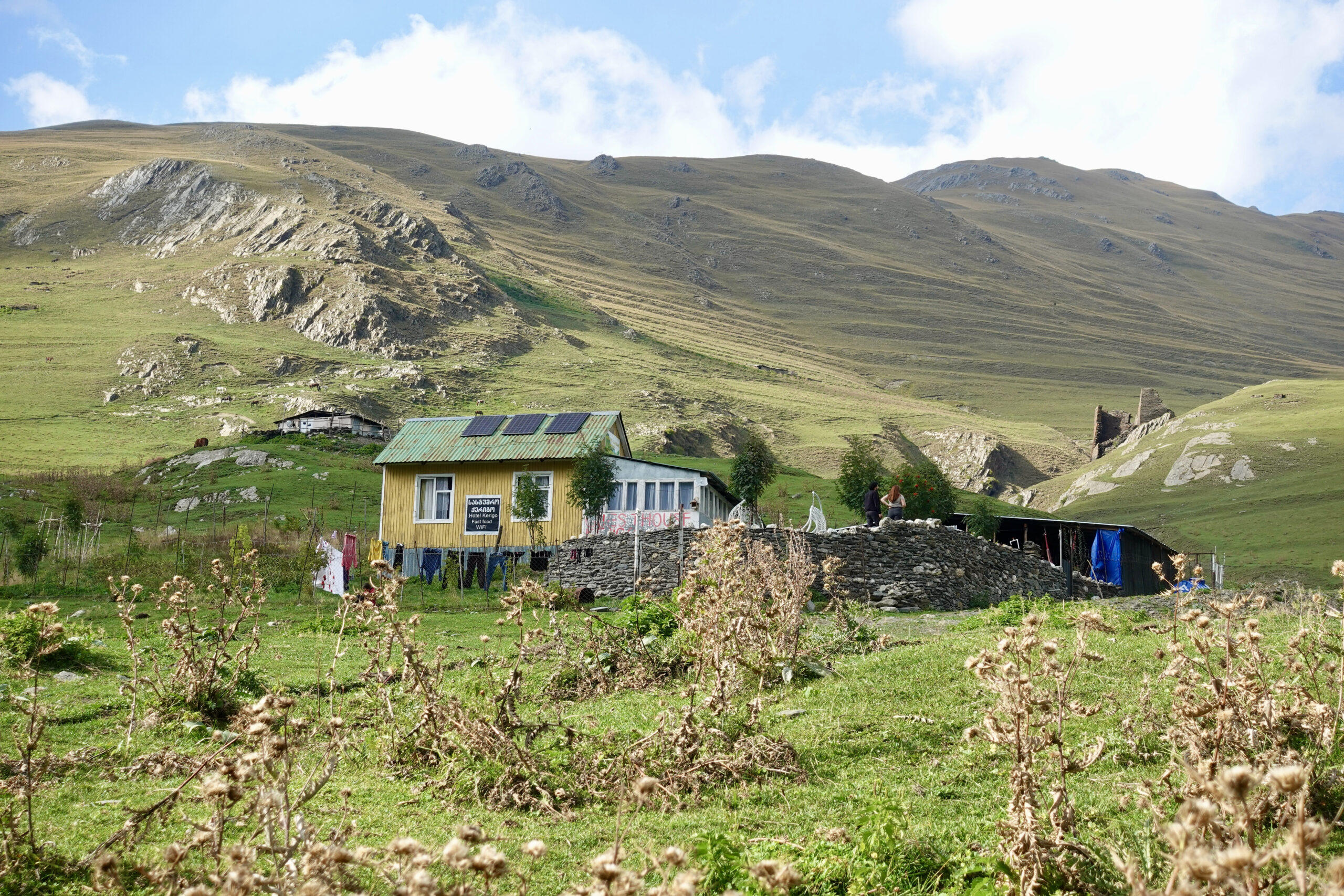
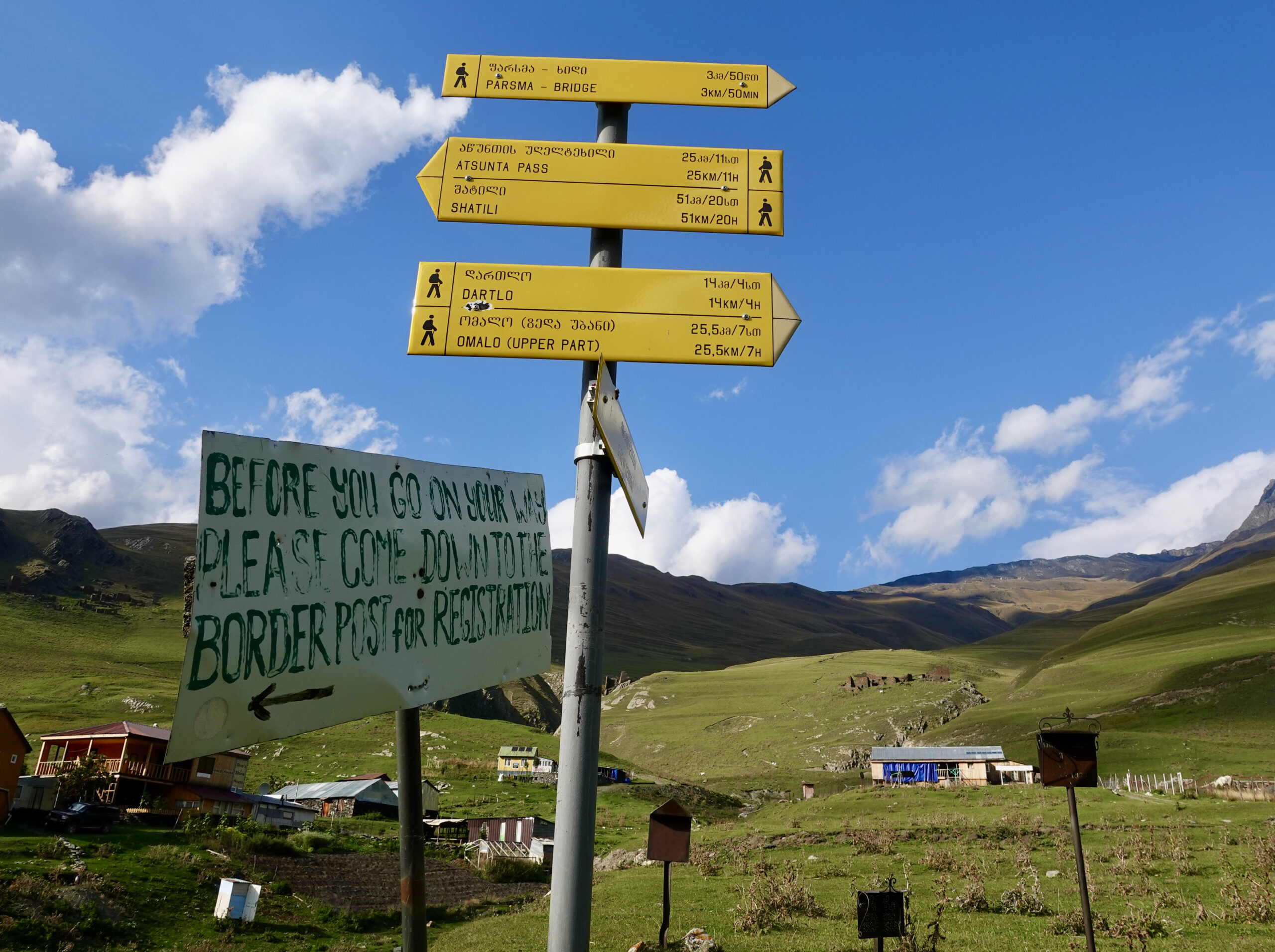
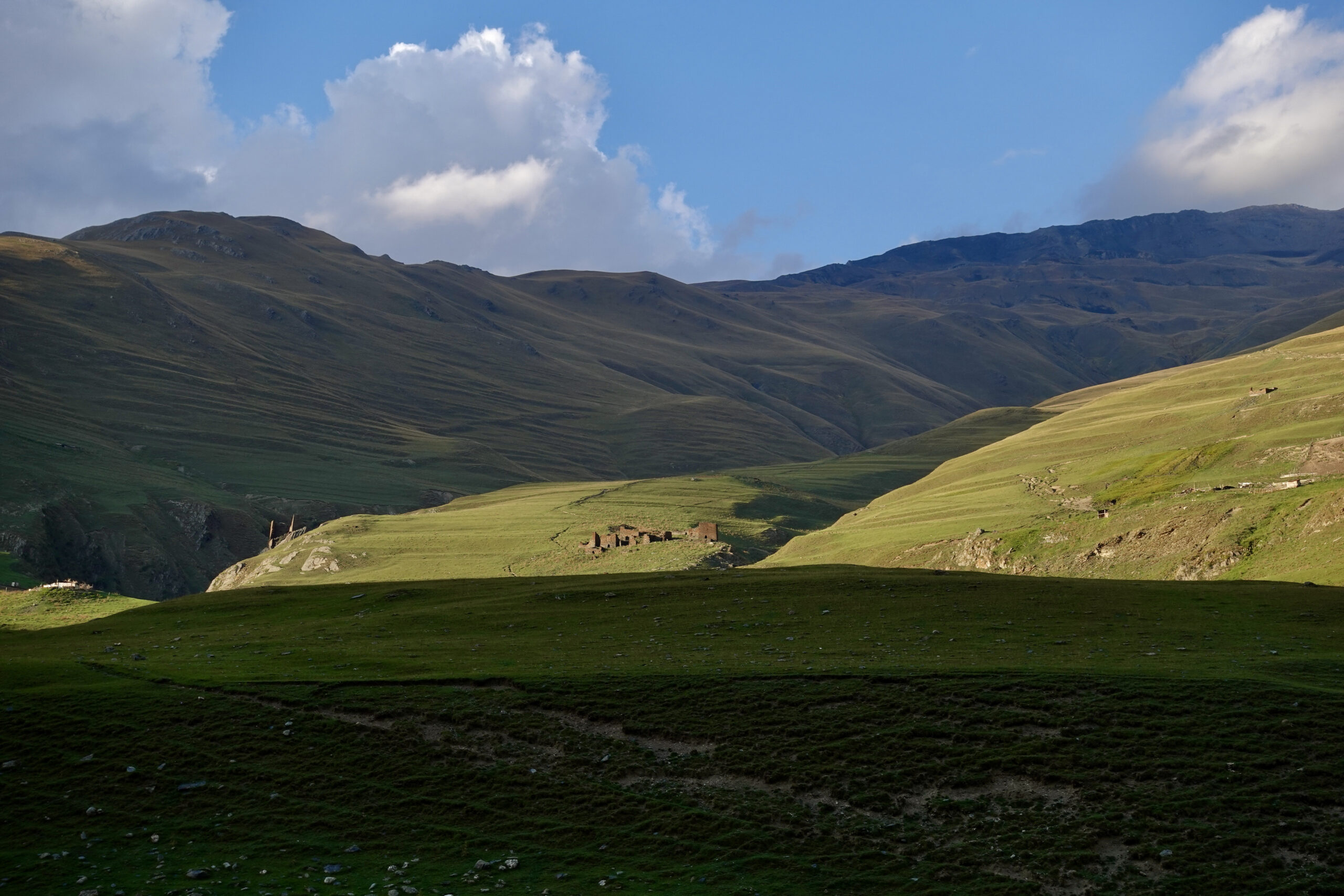
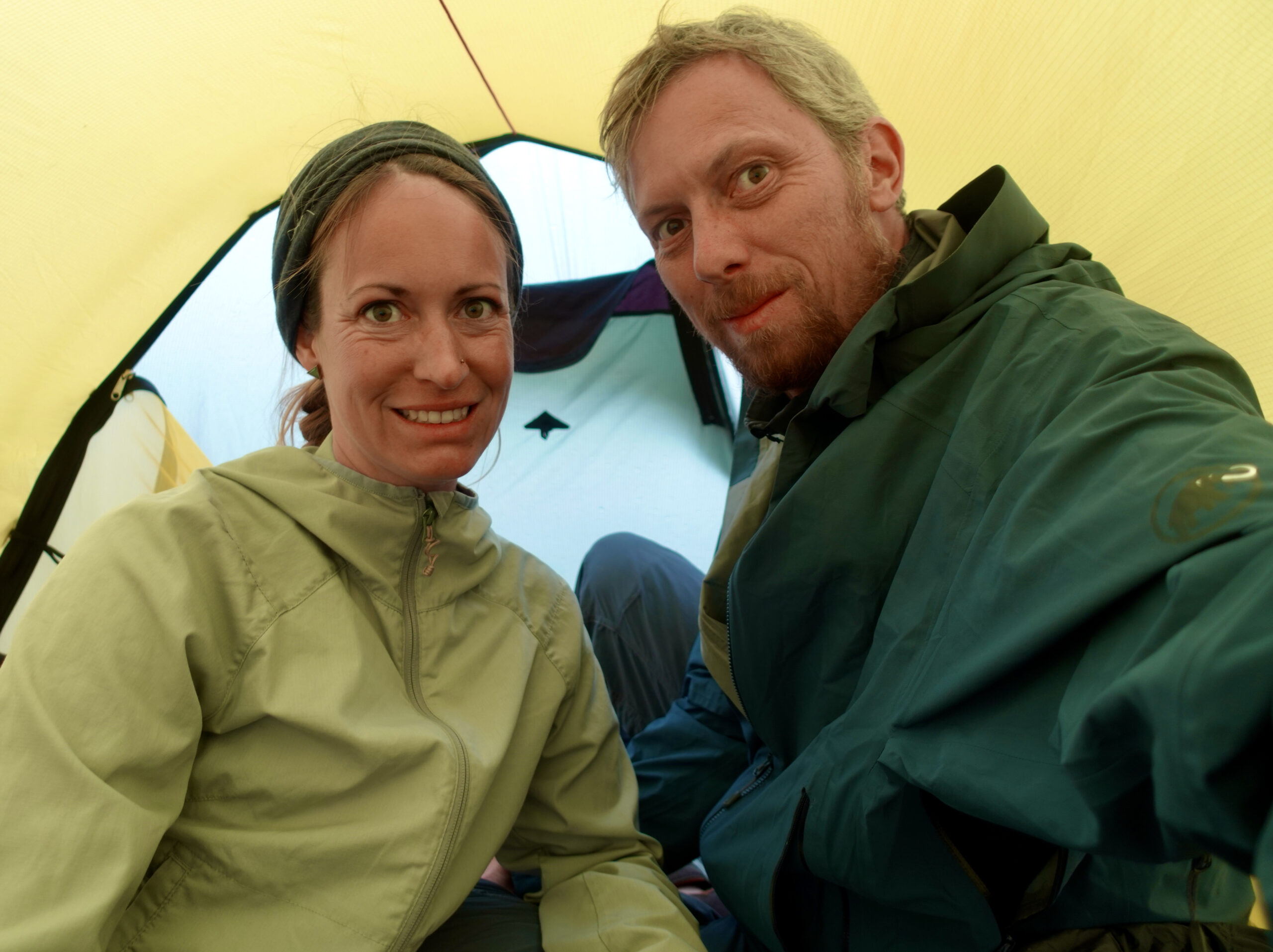
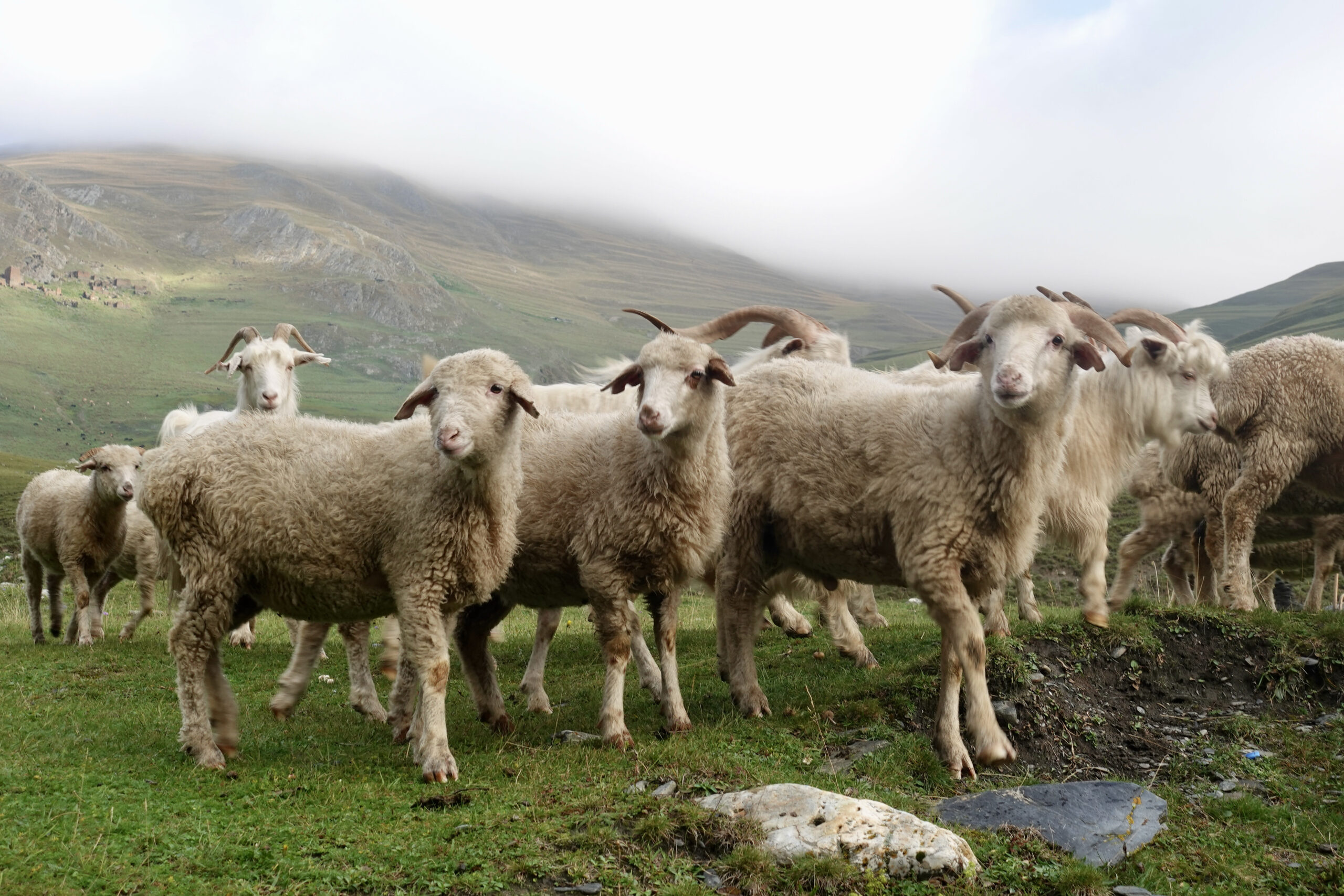
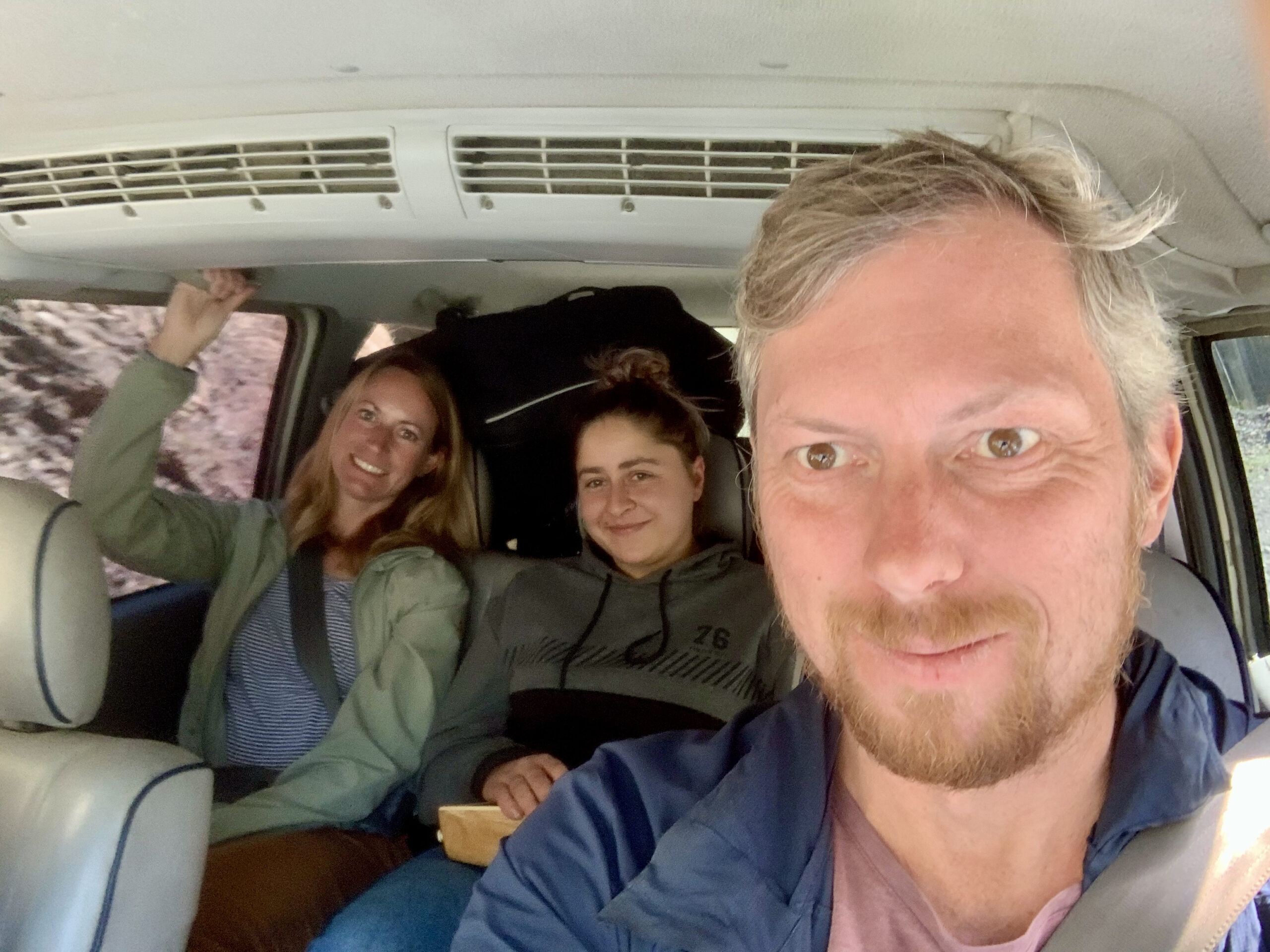
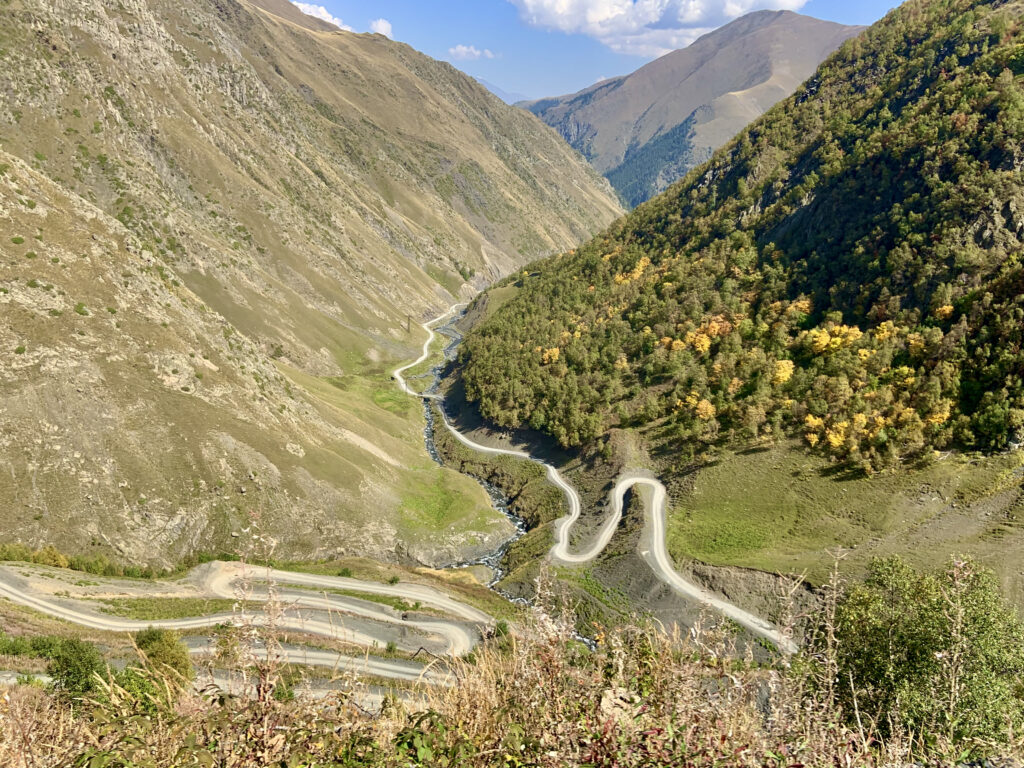
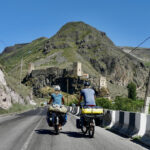
Leave a Reply